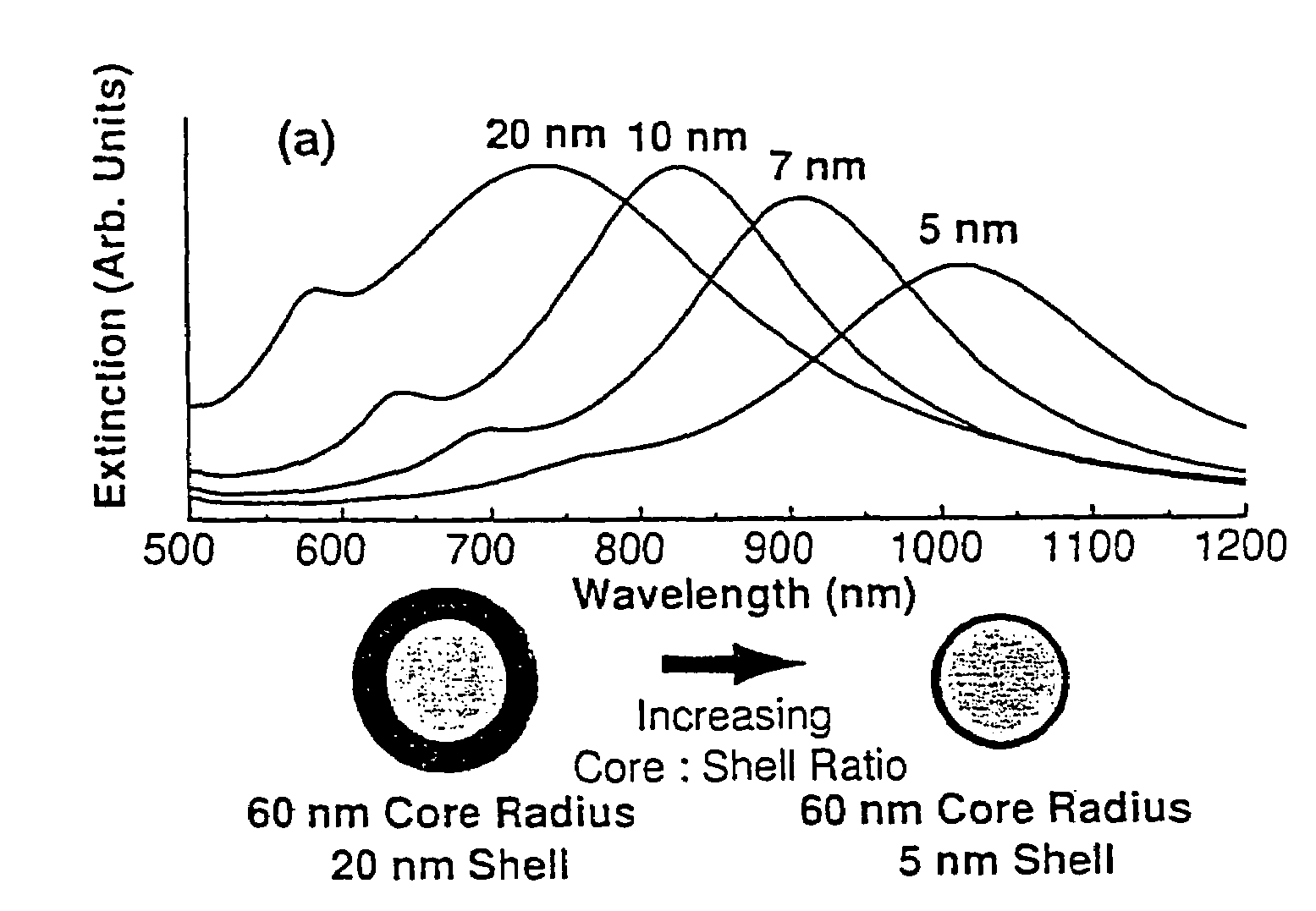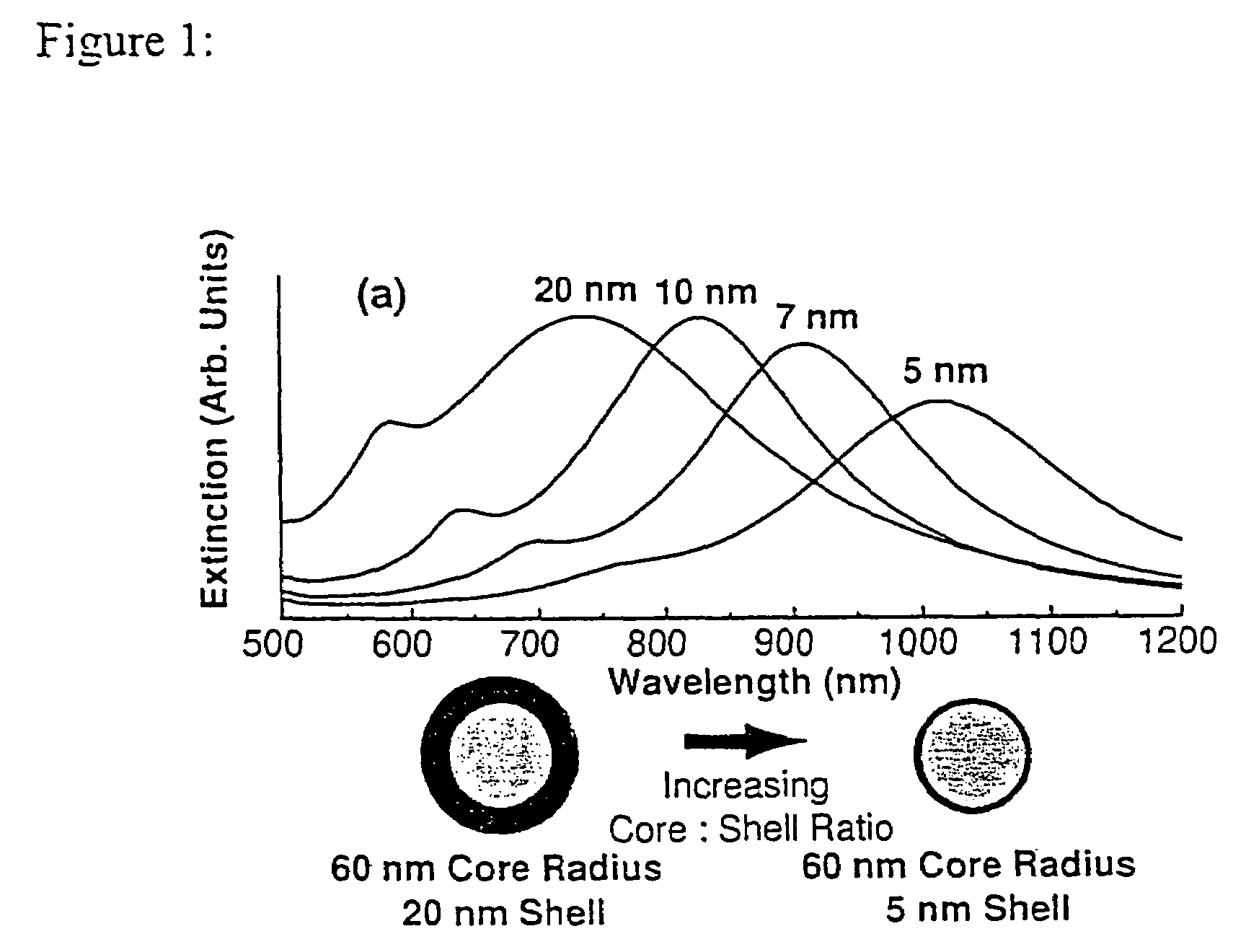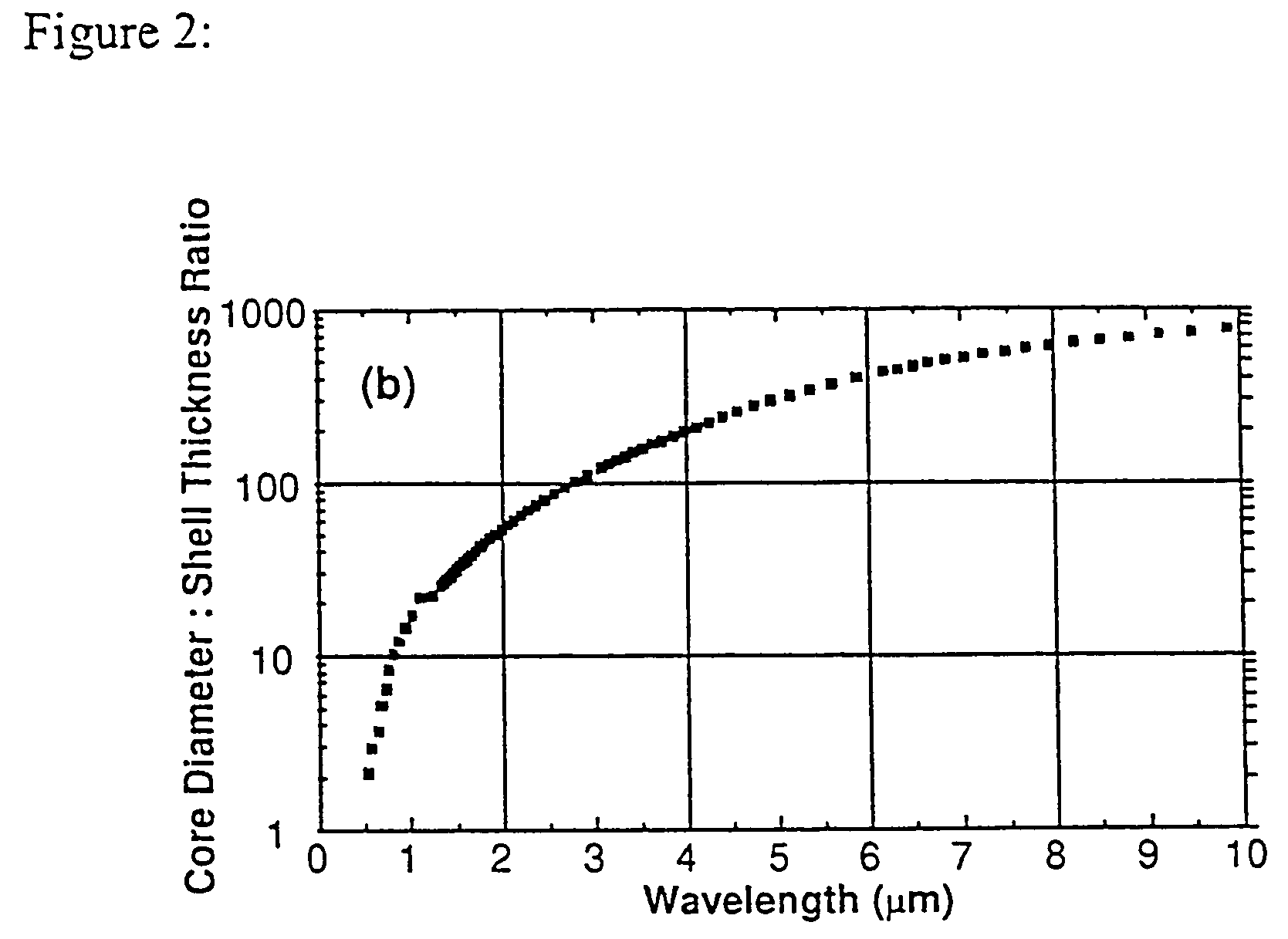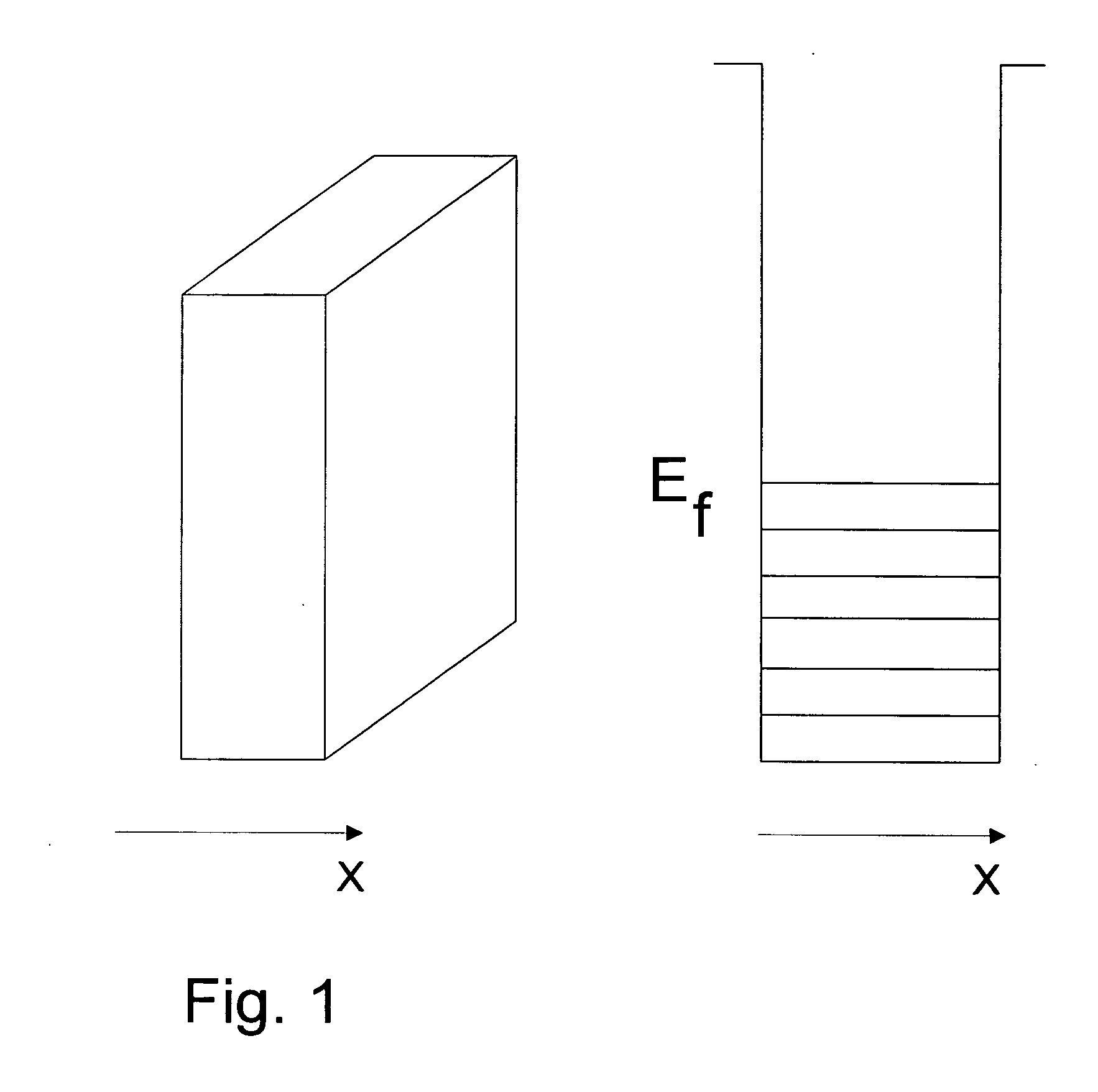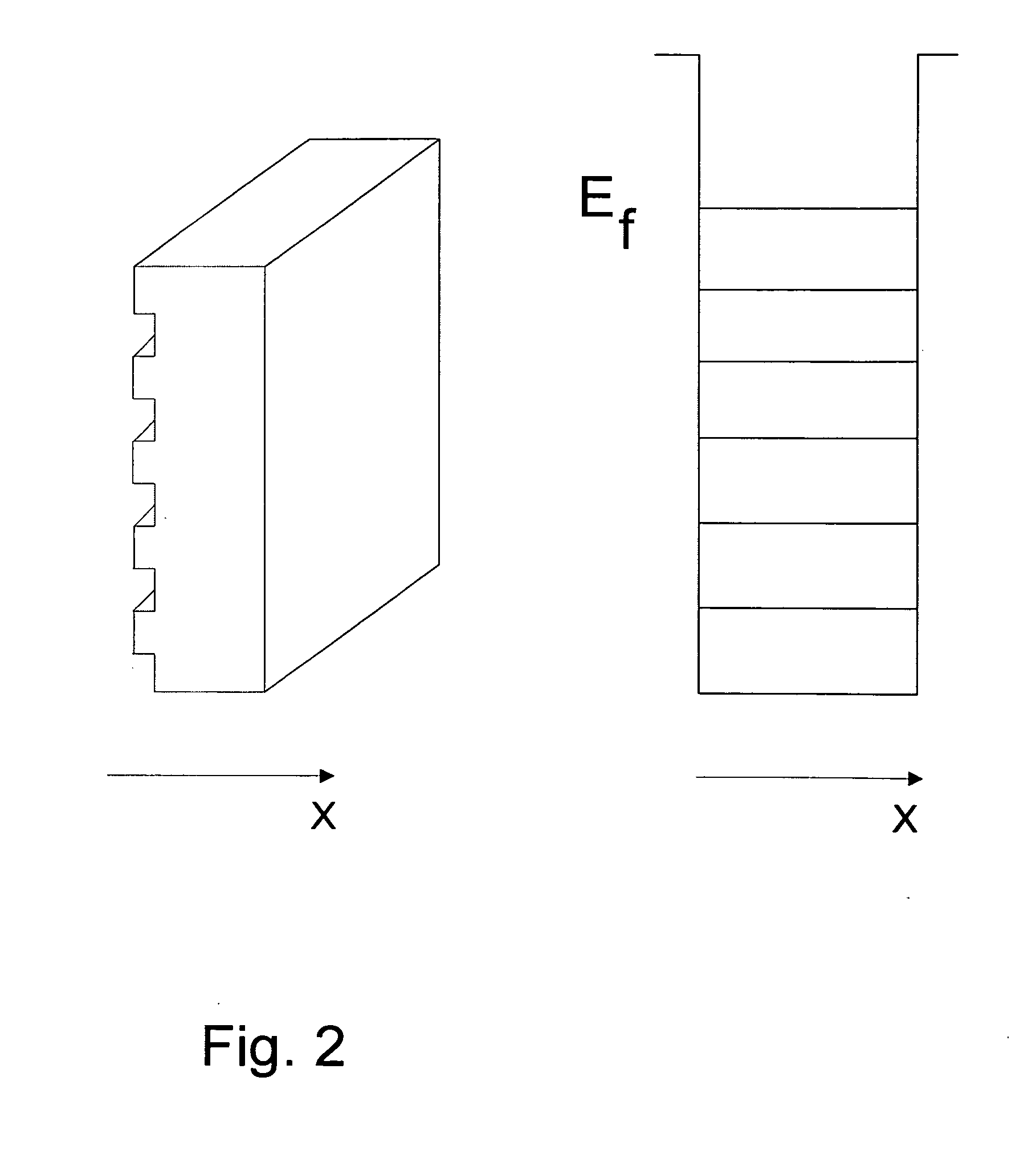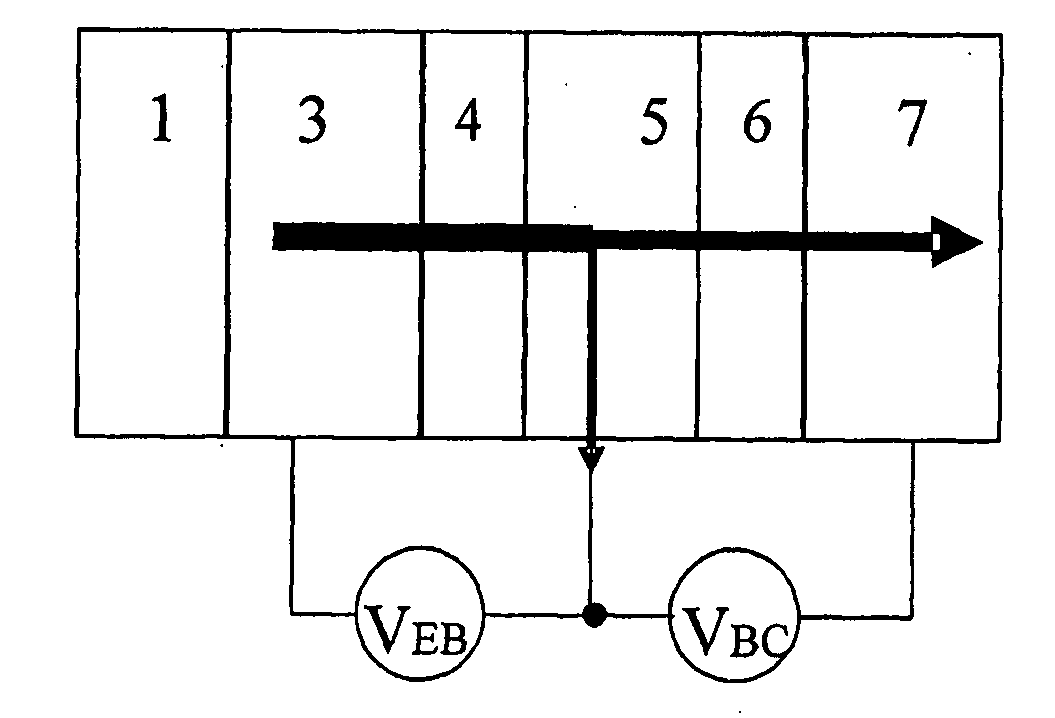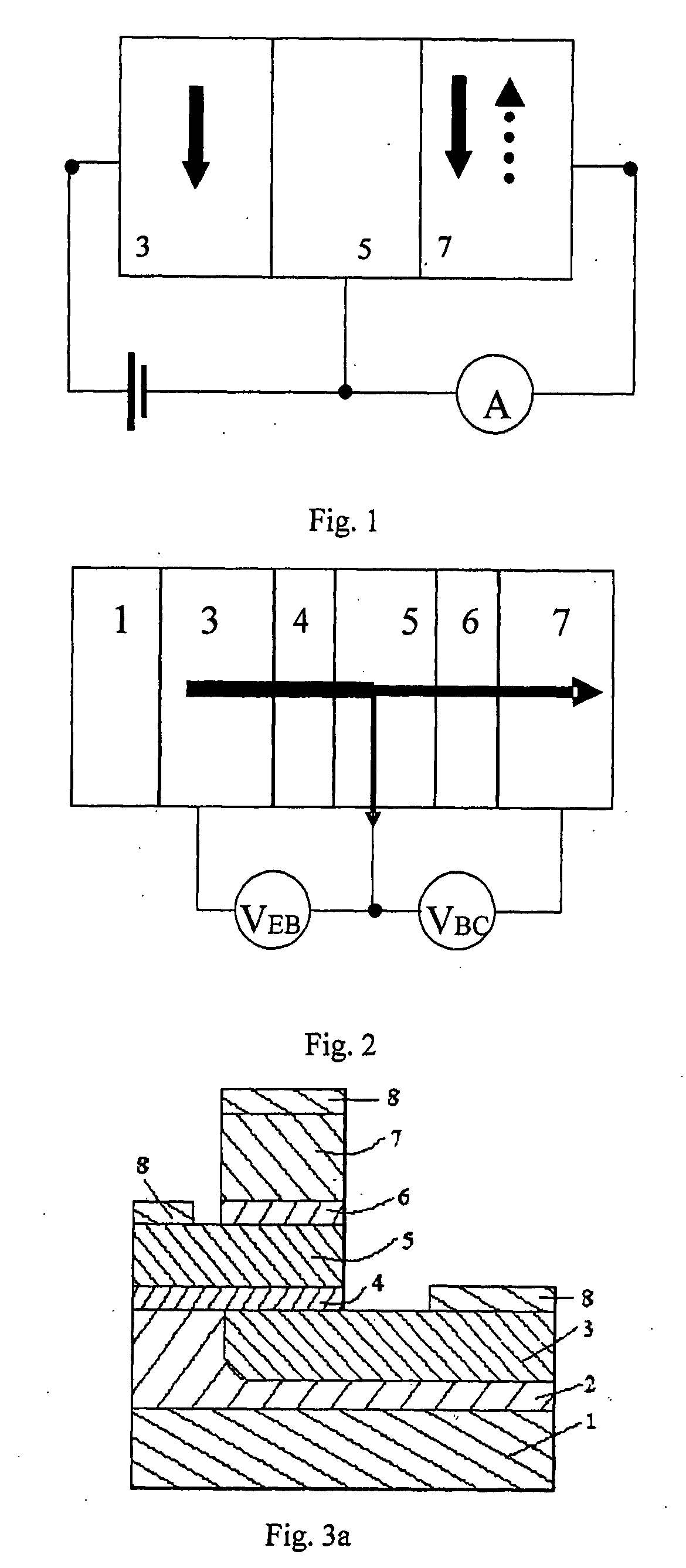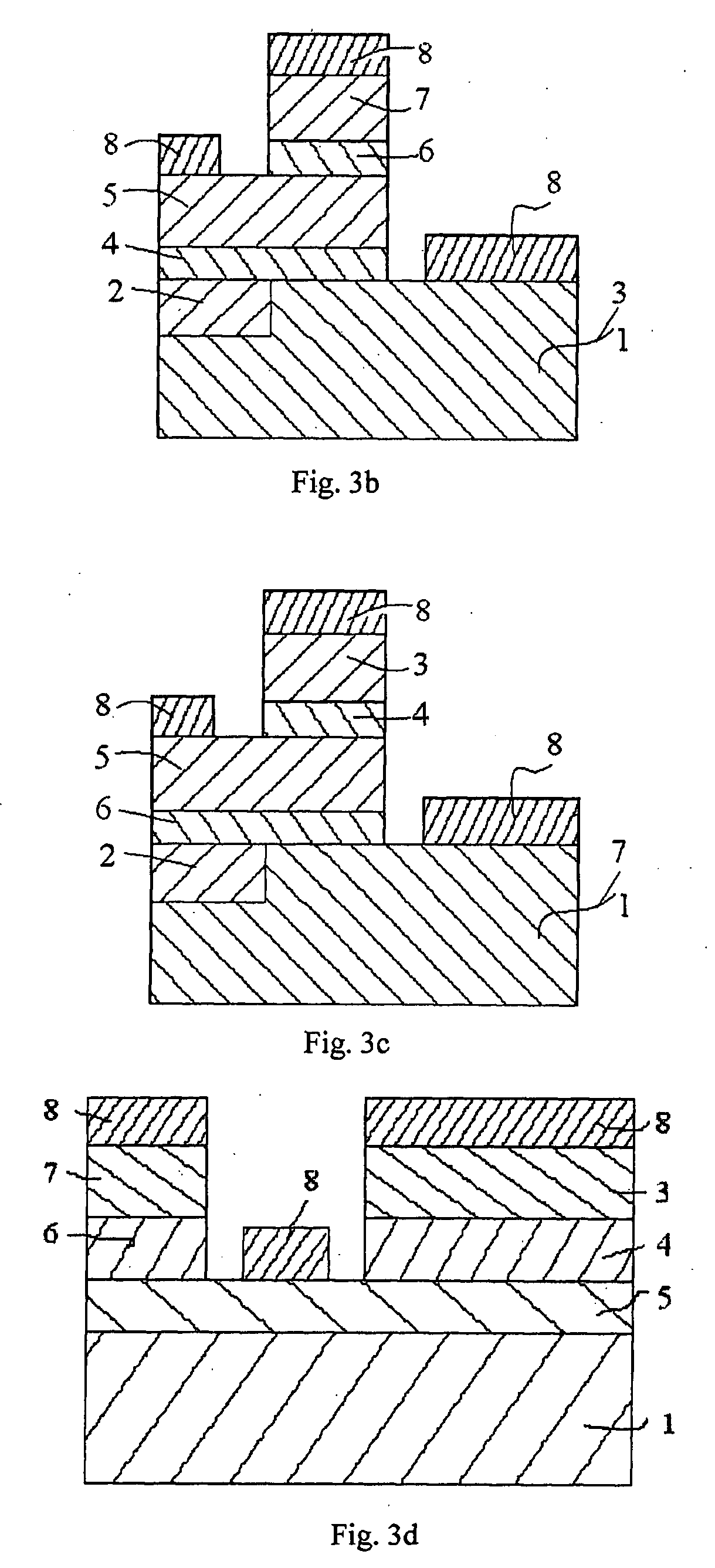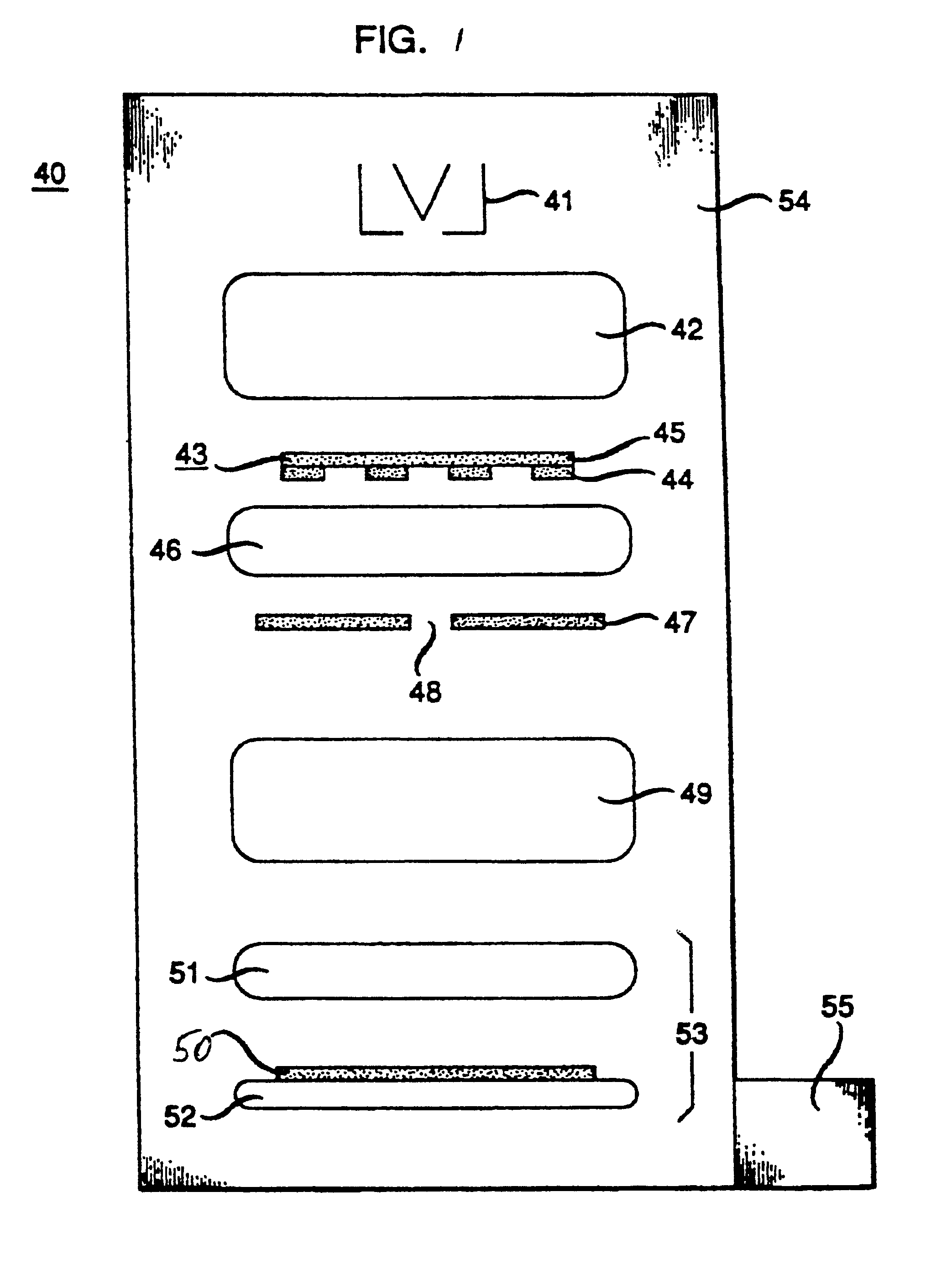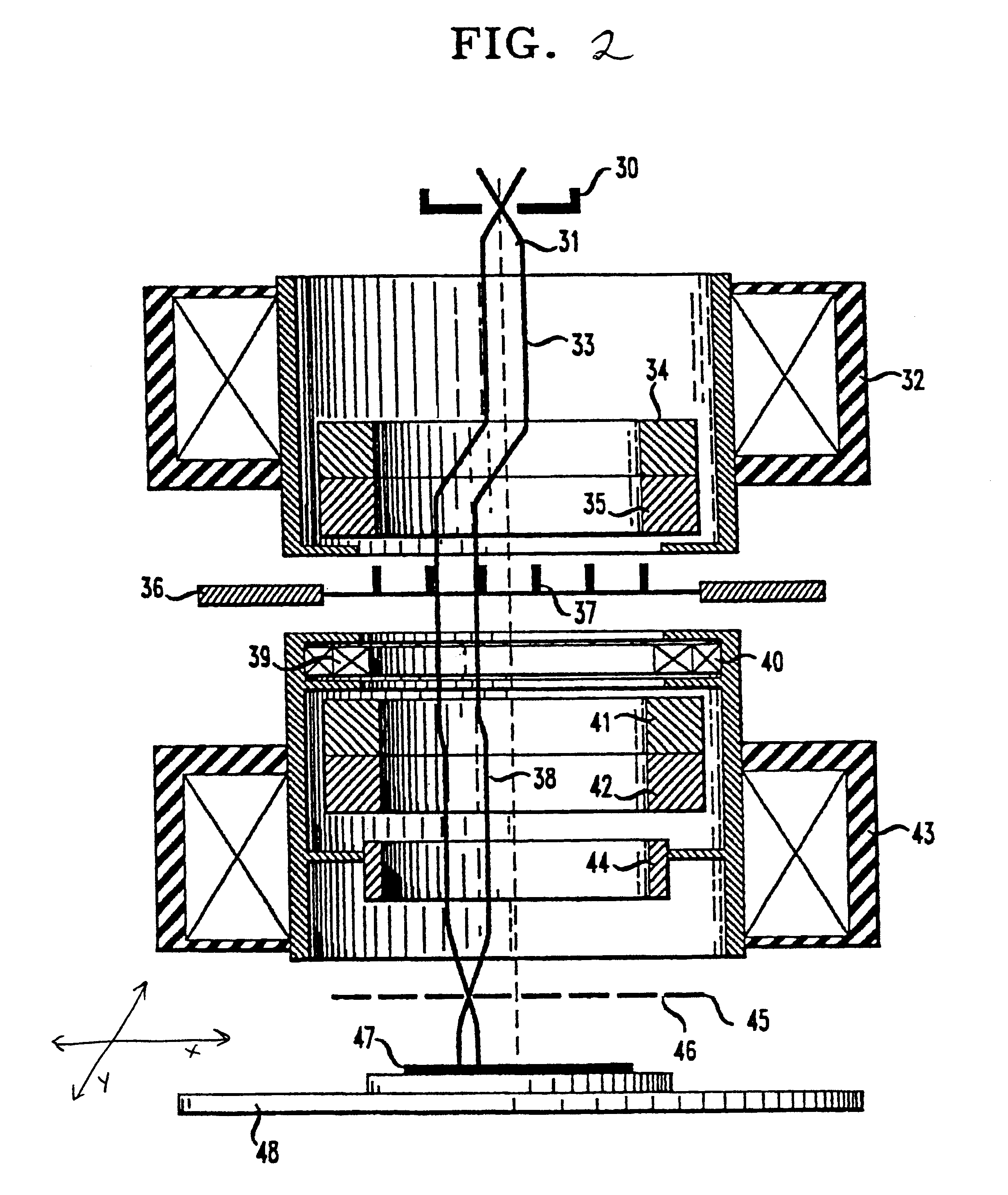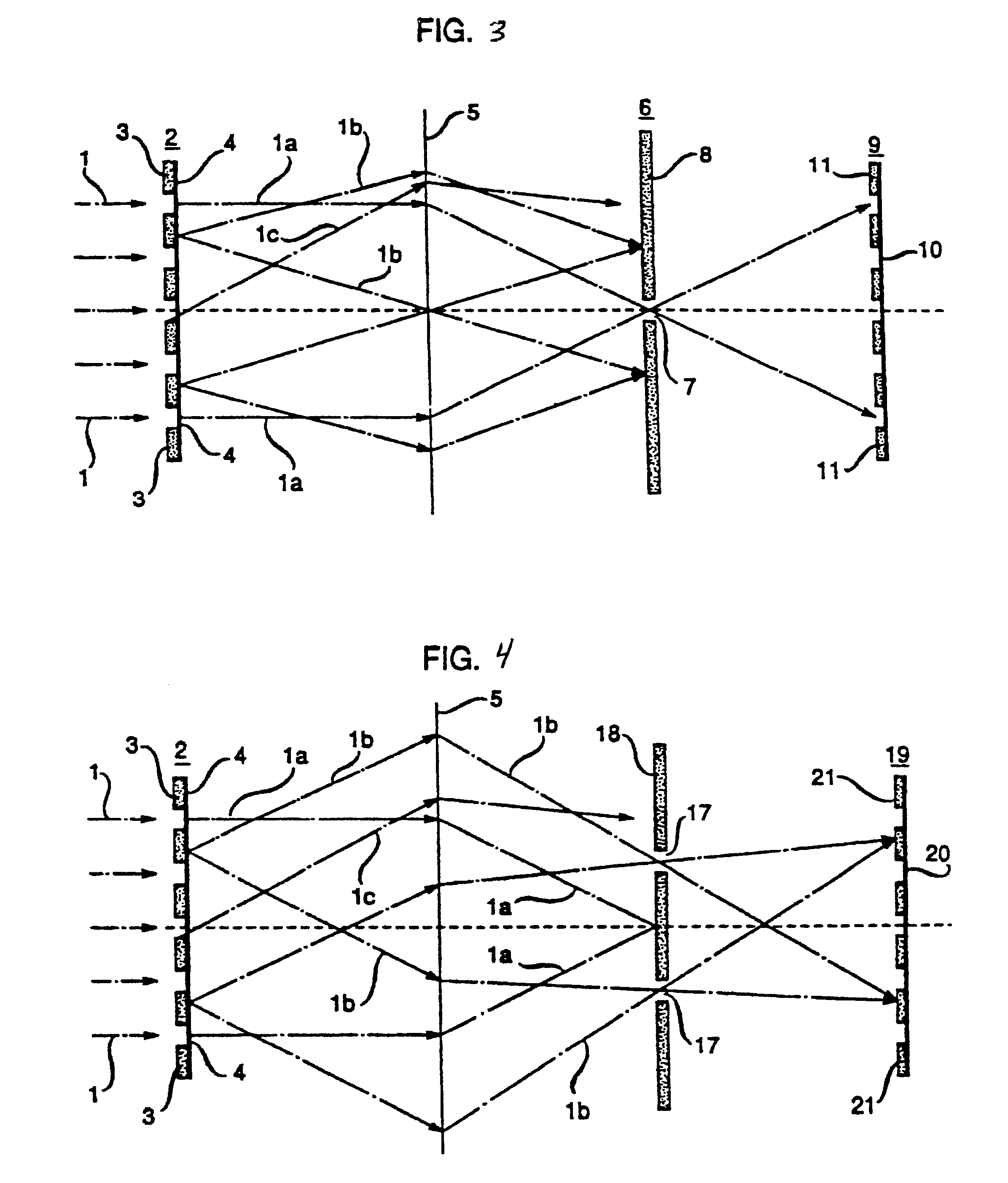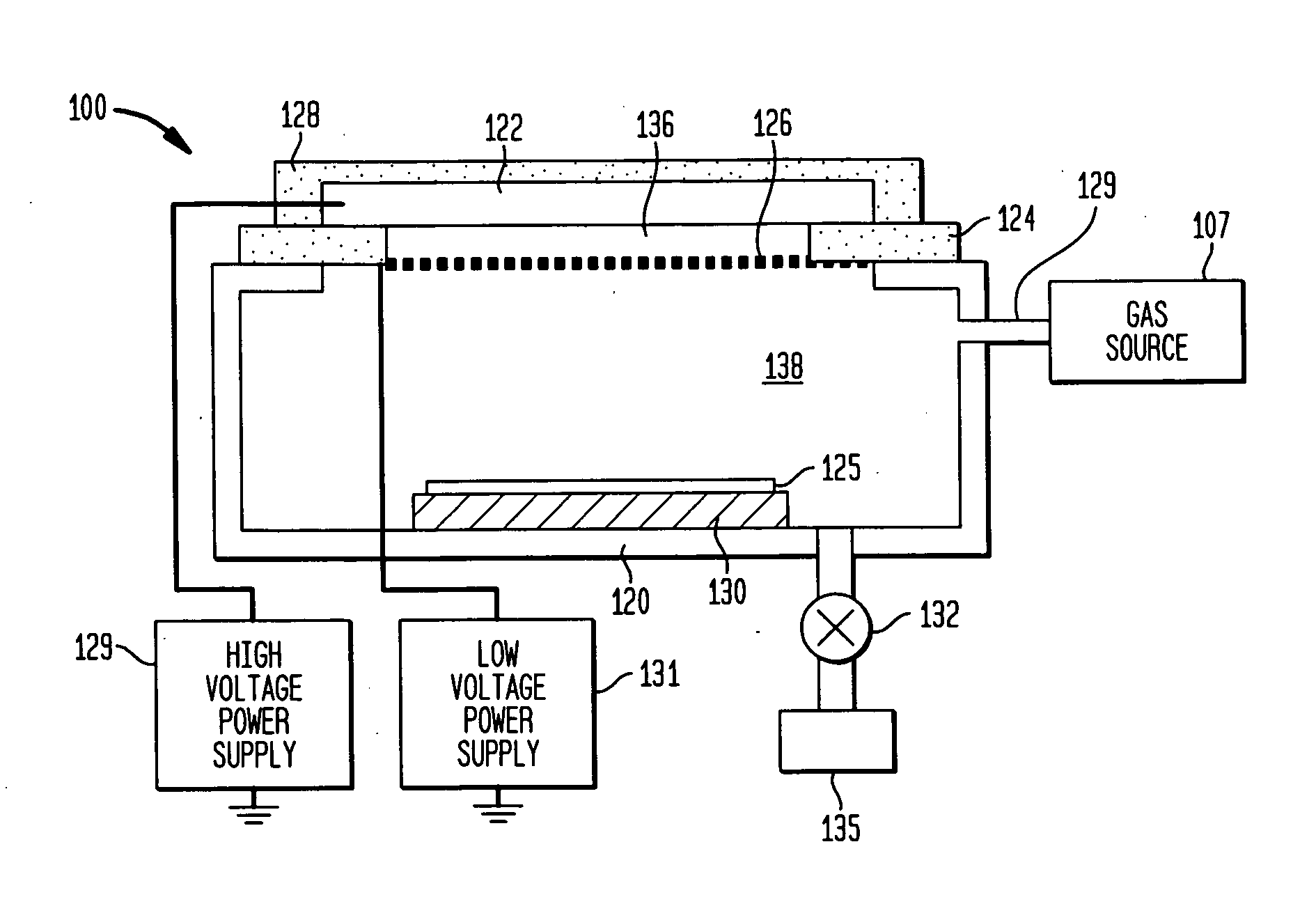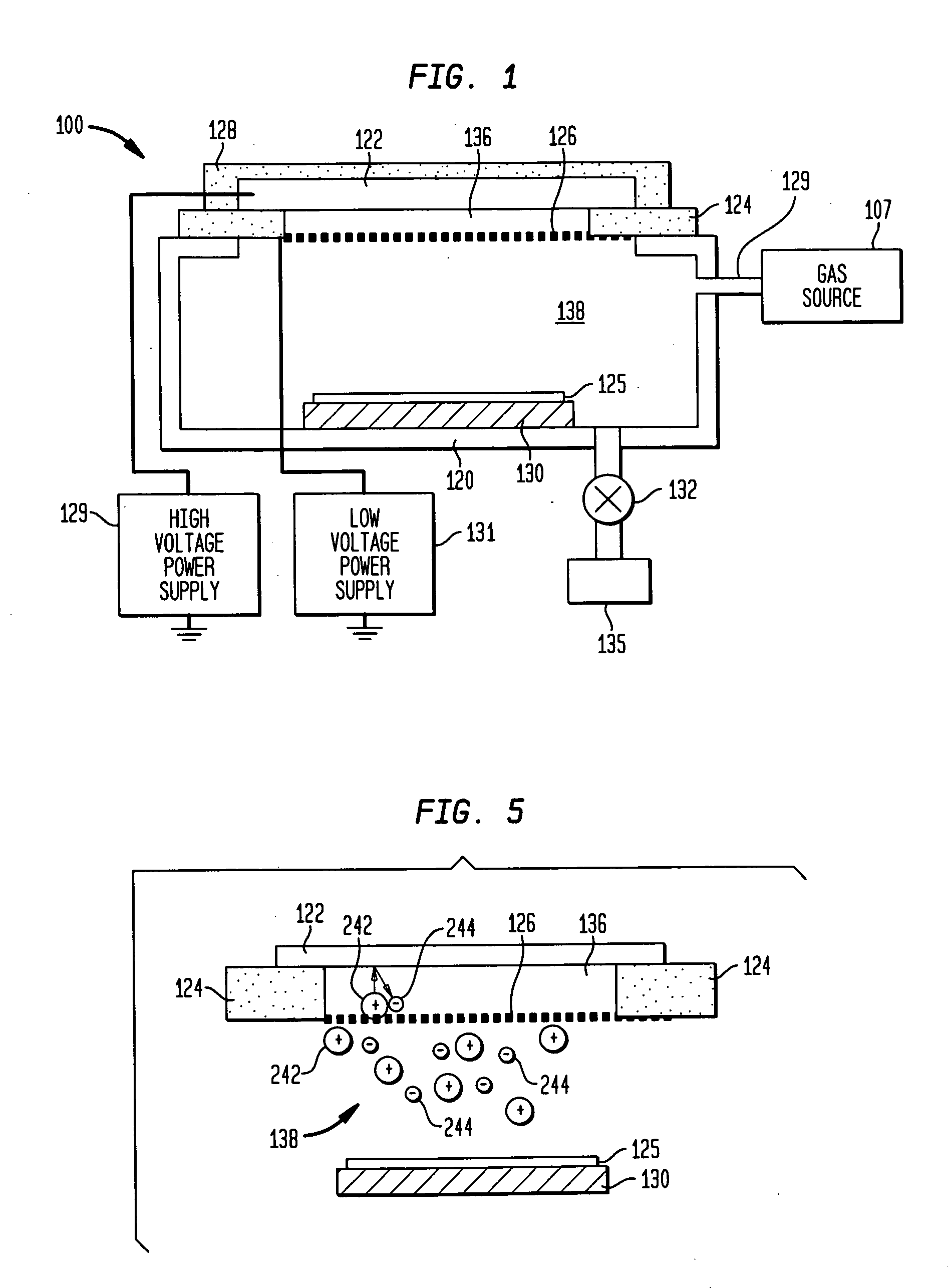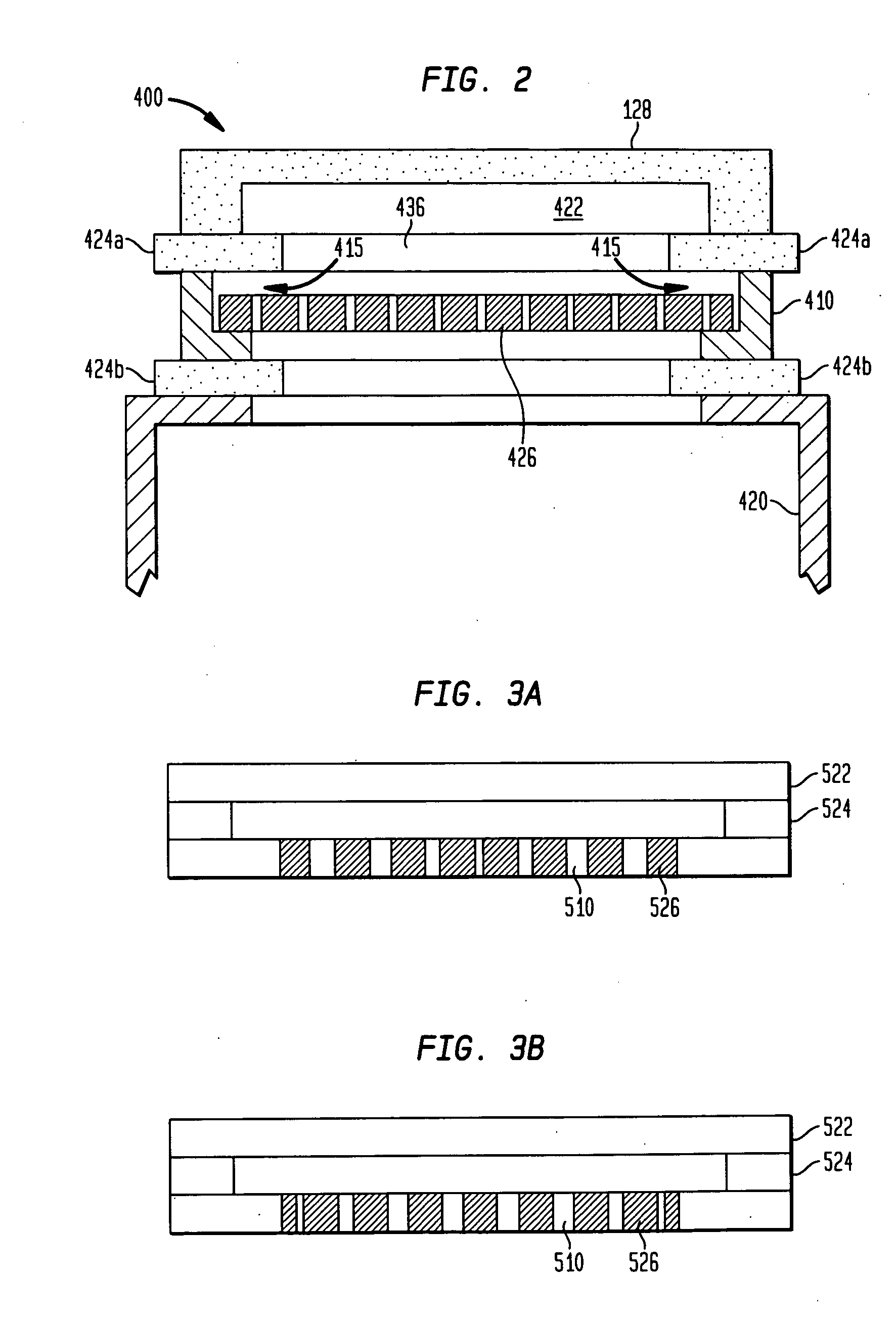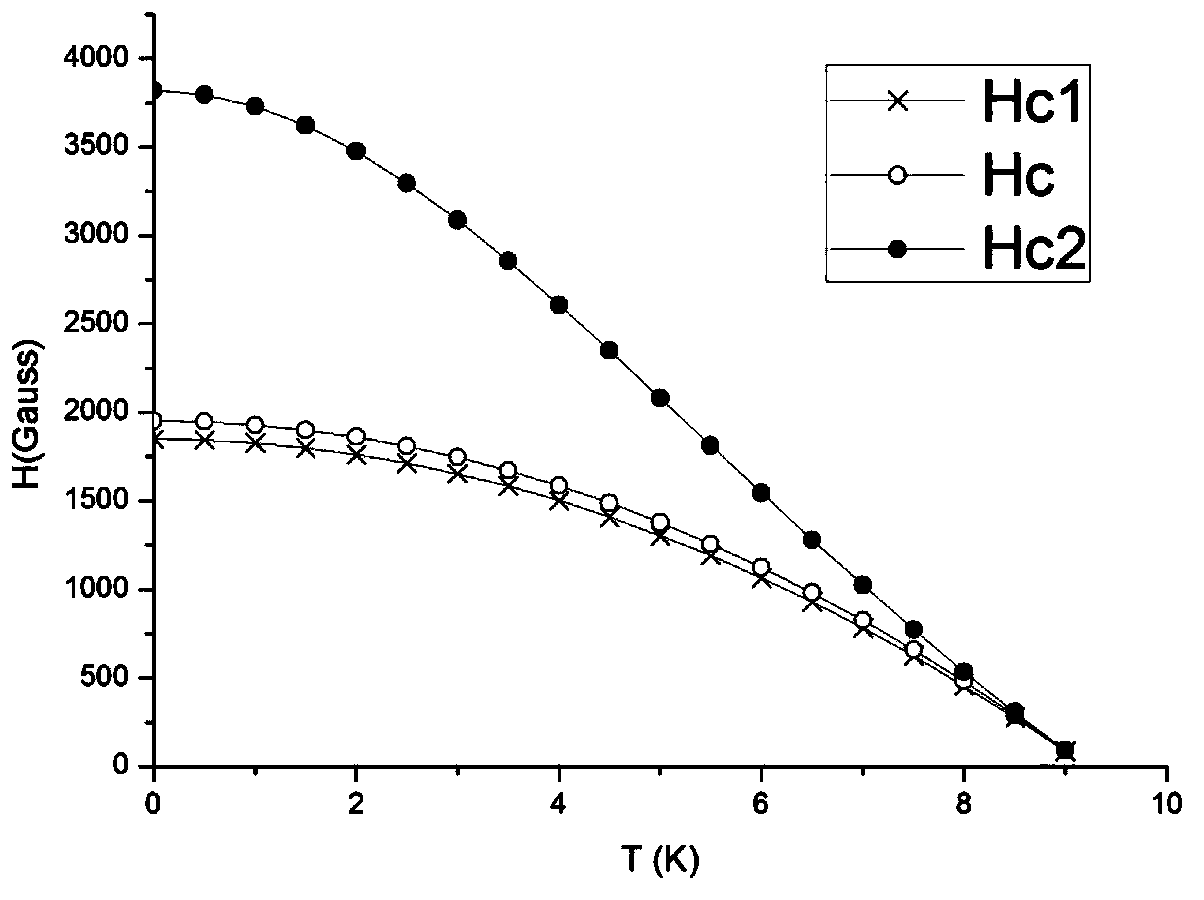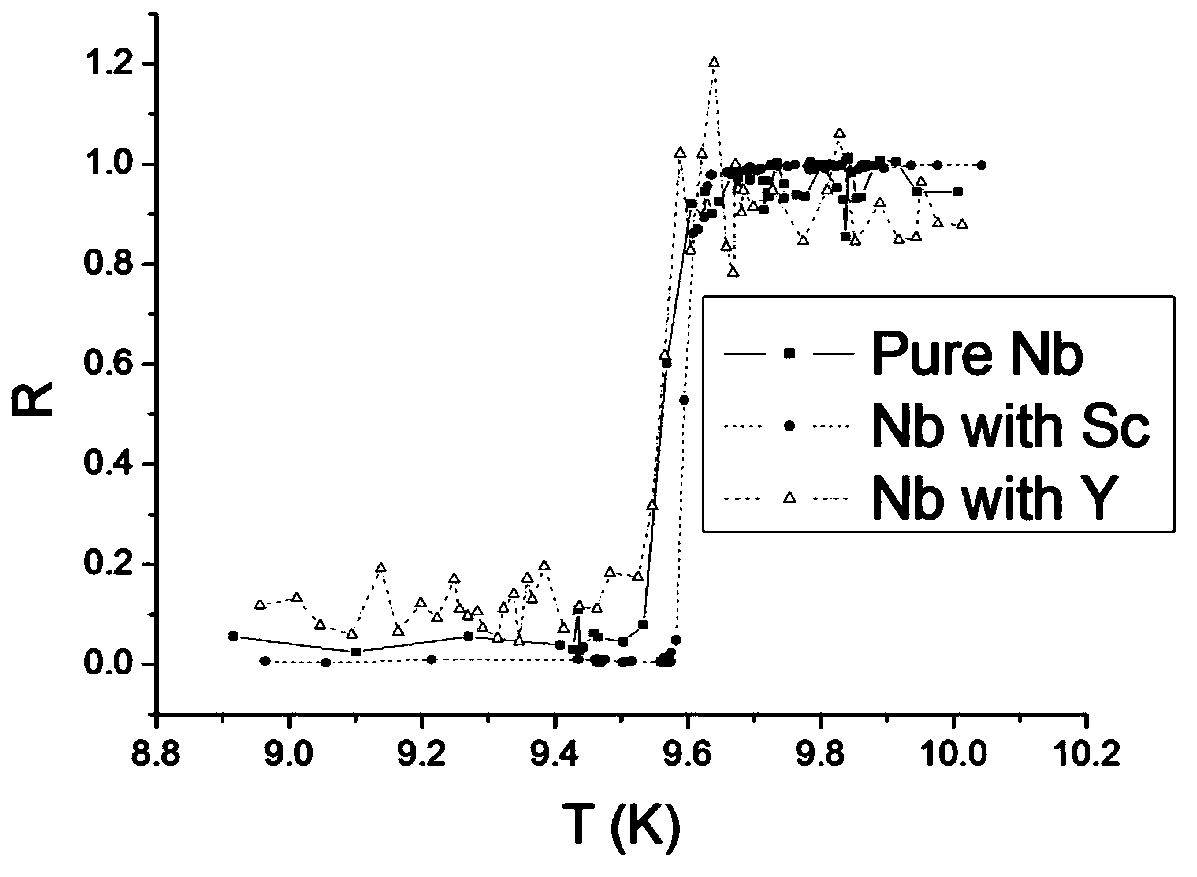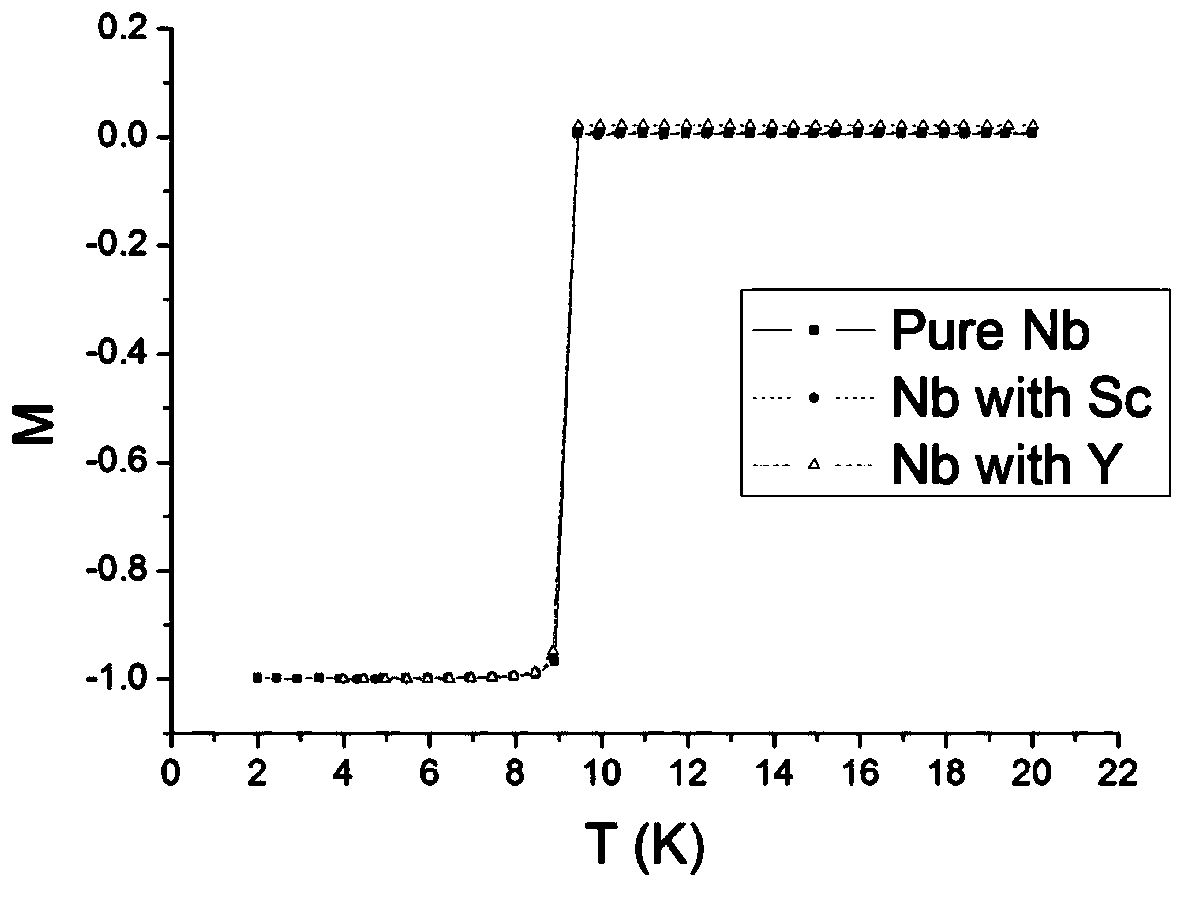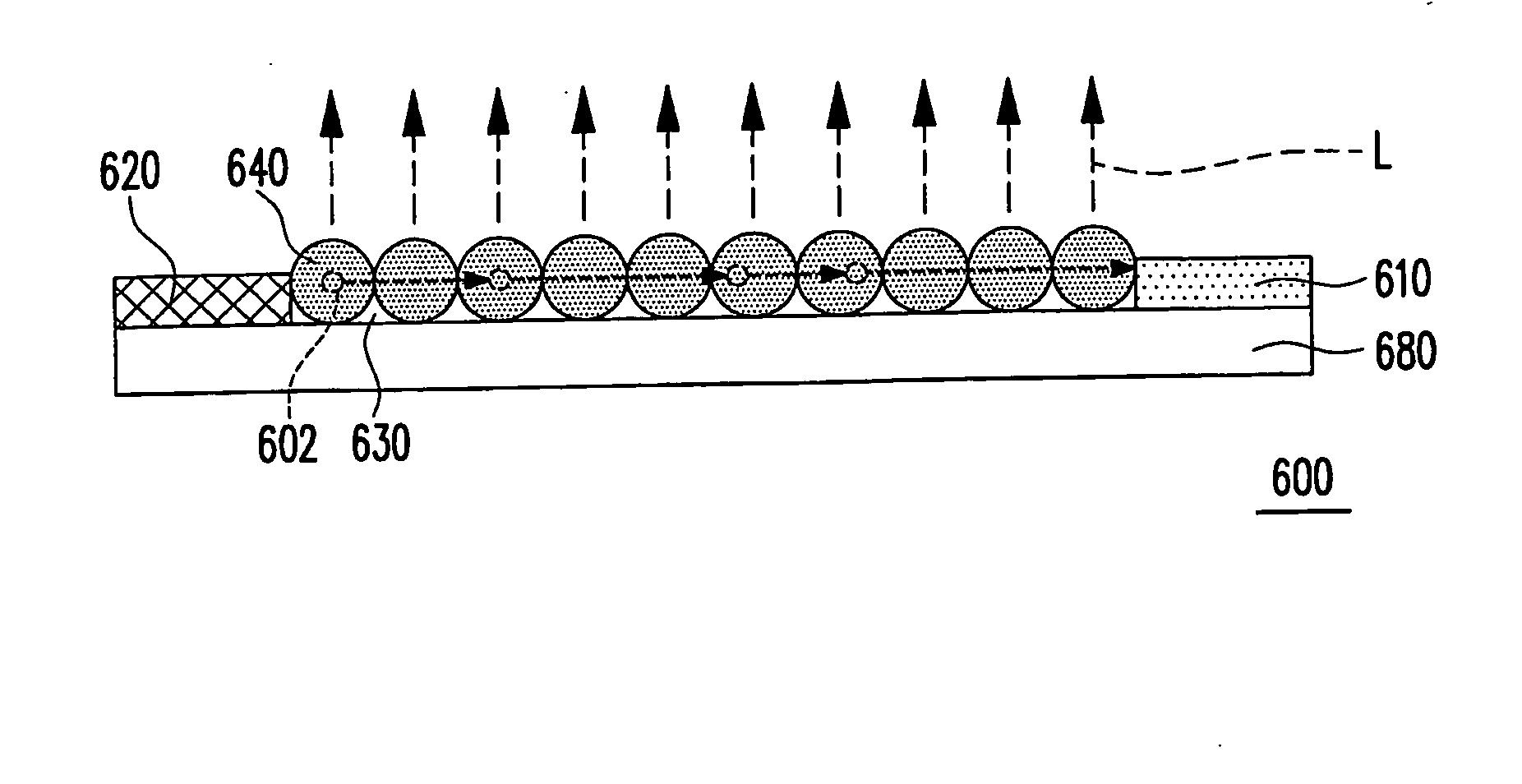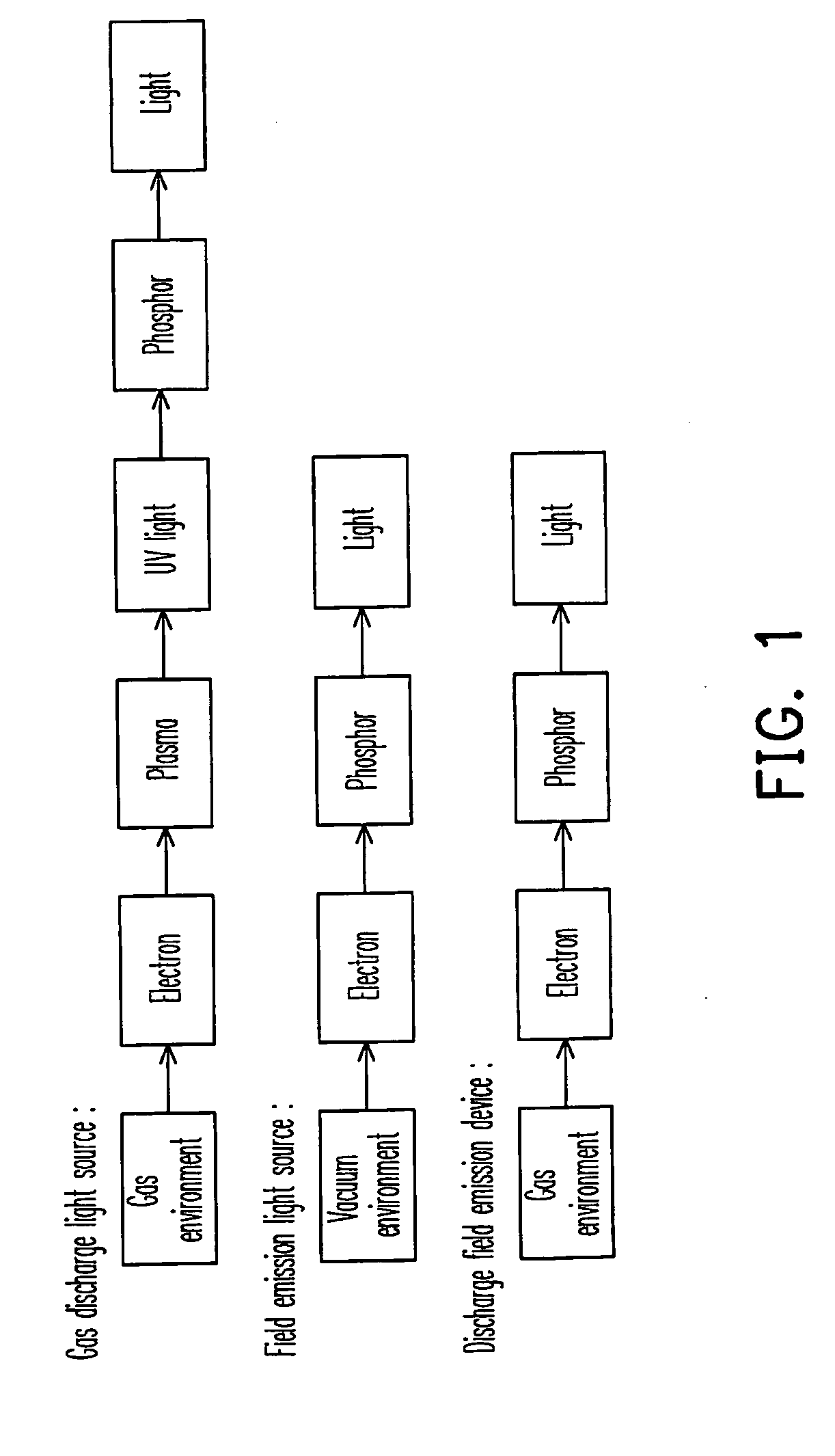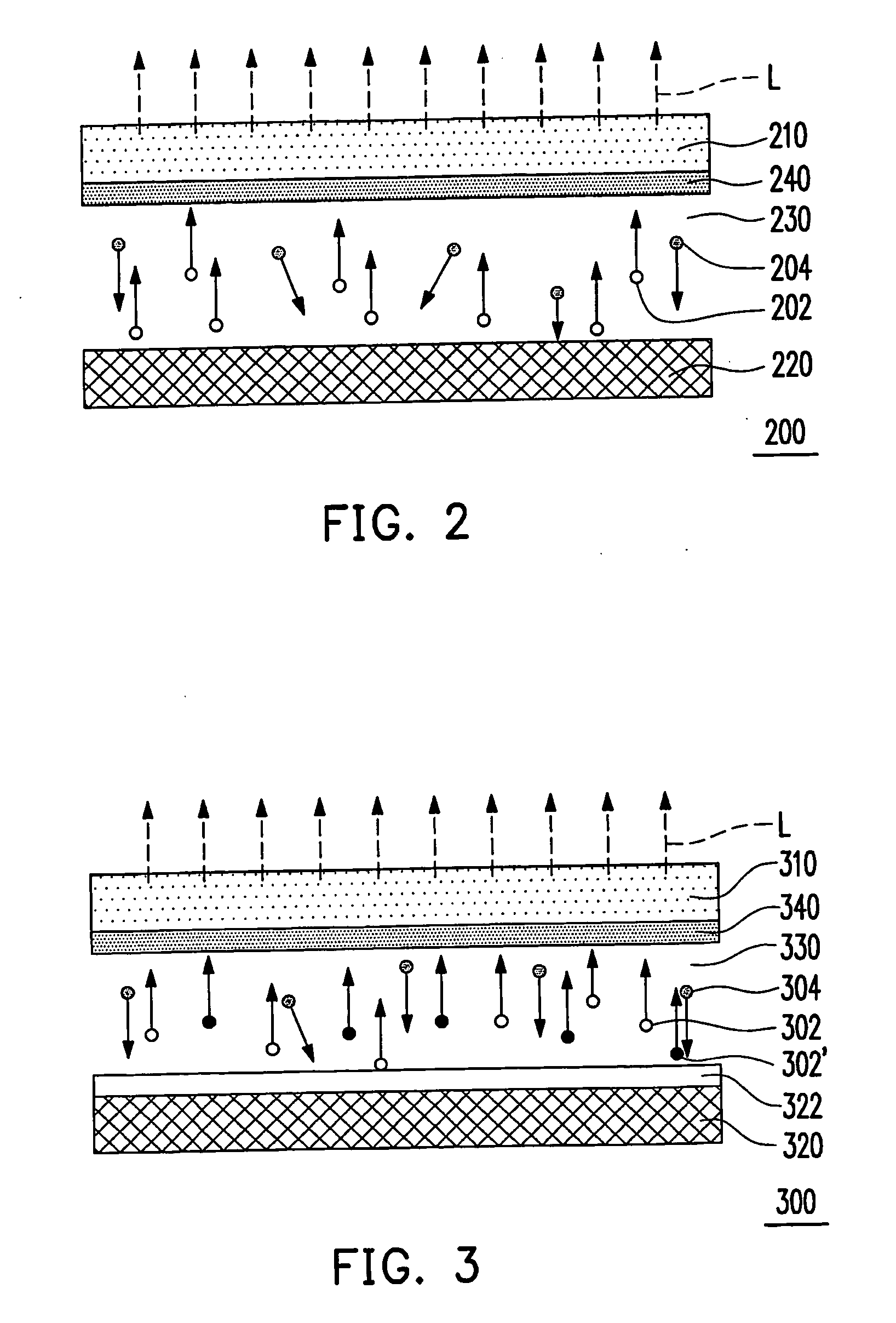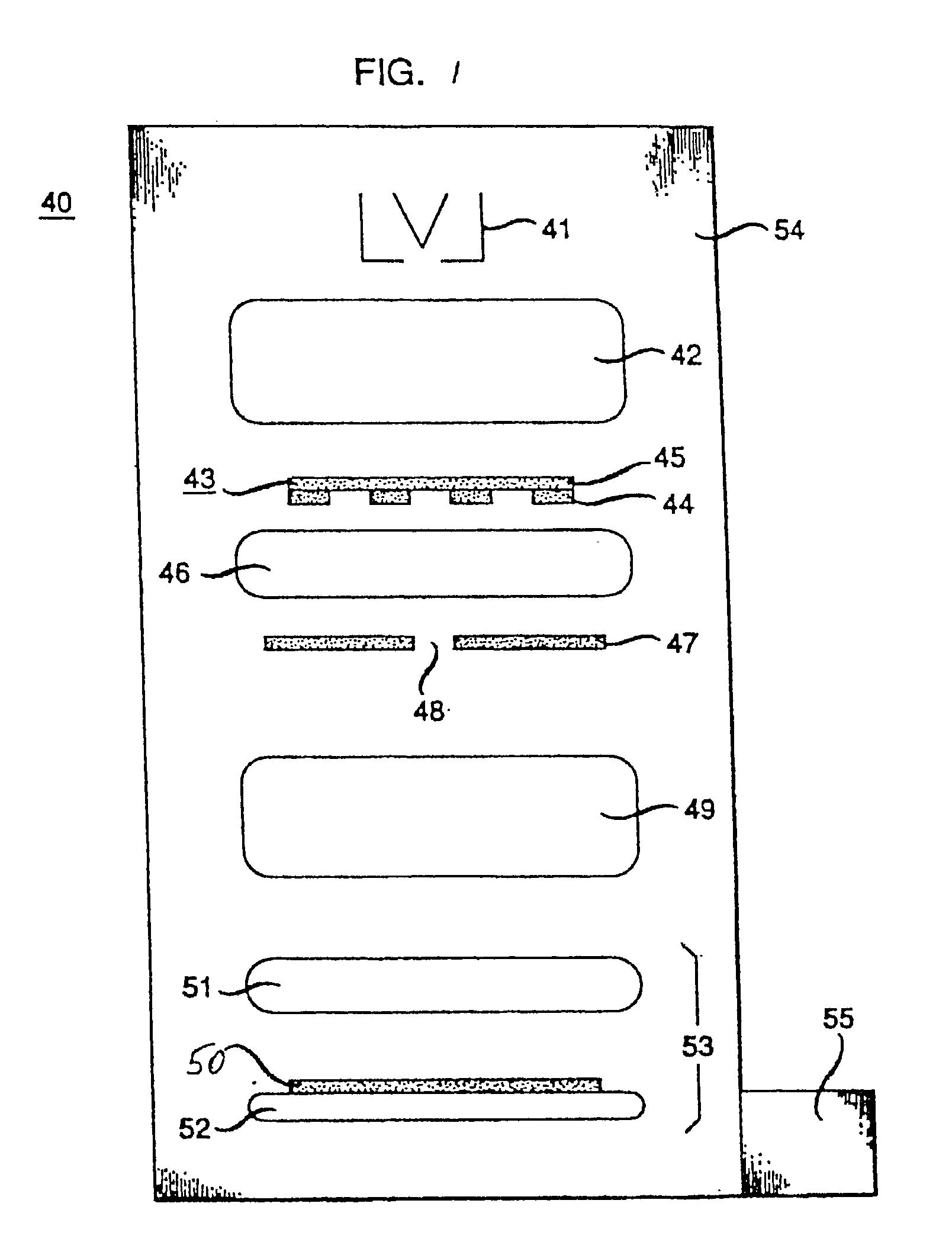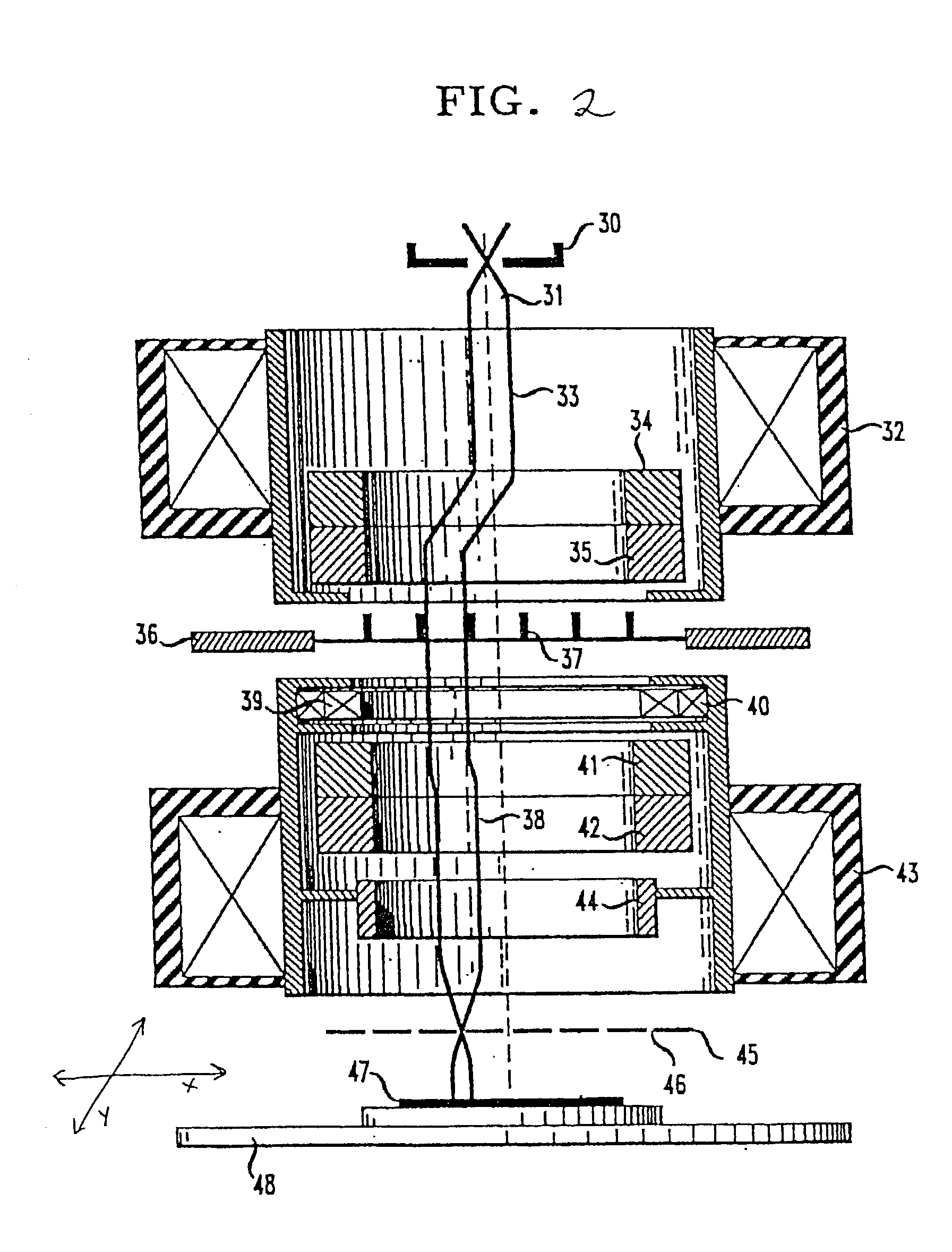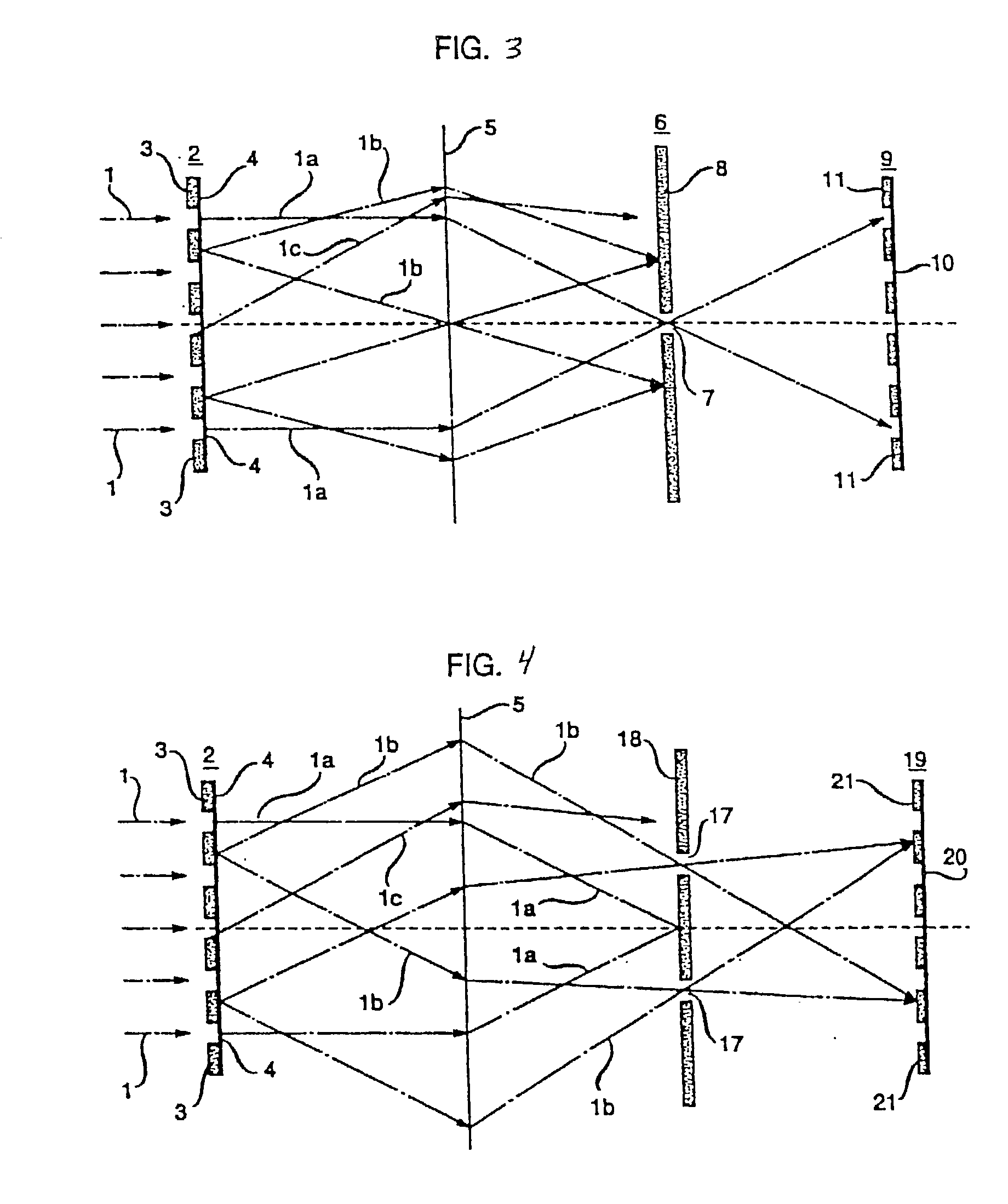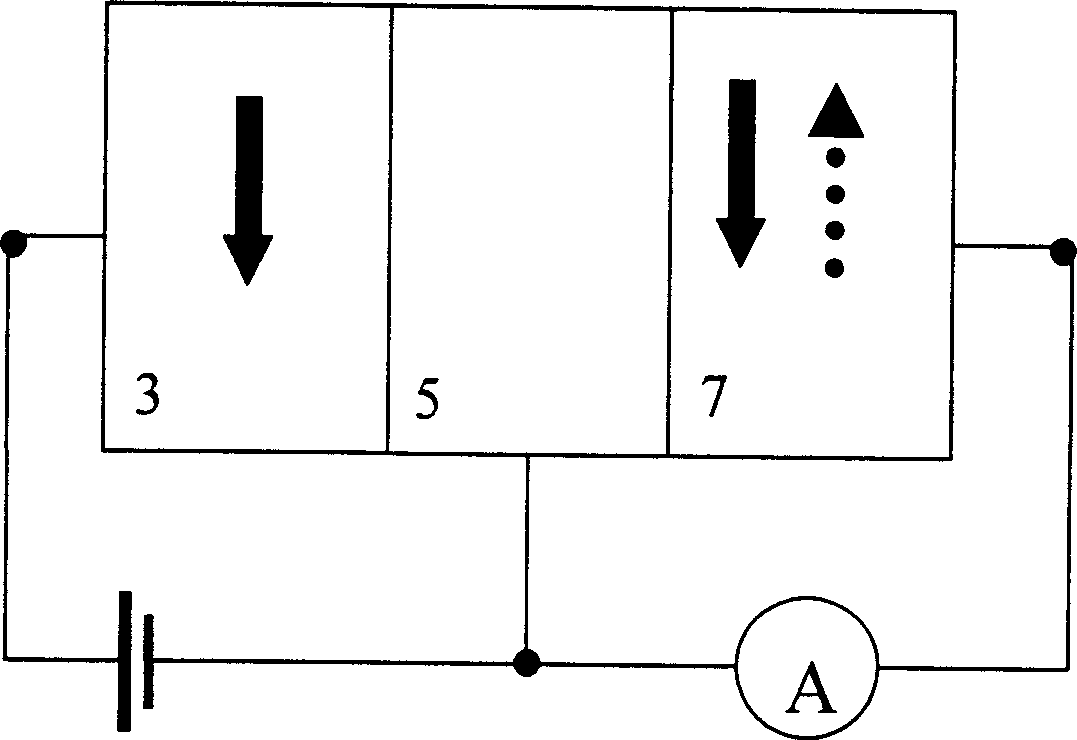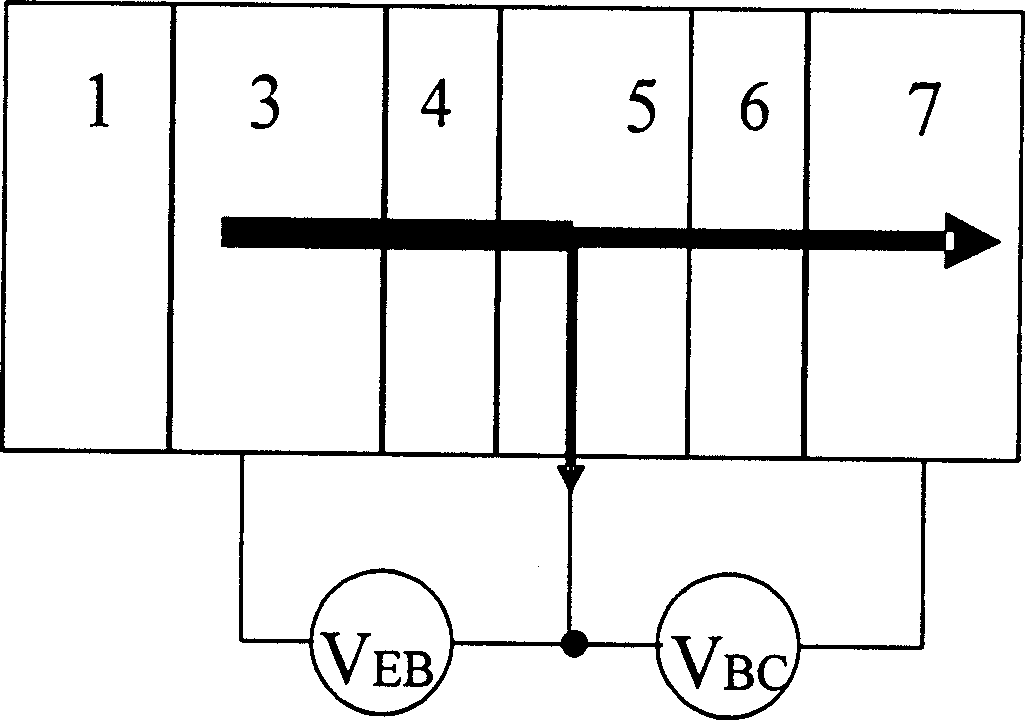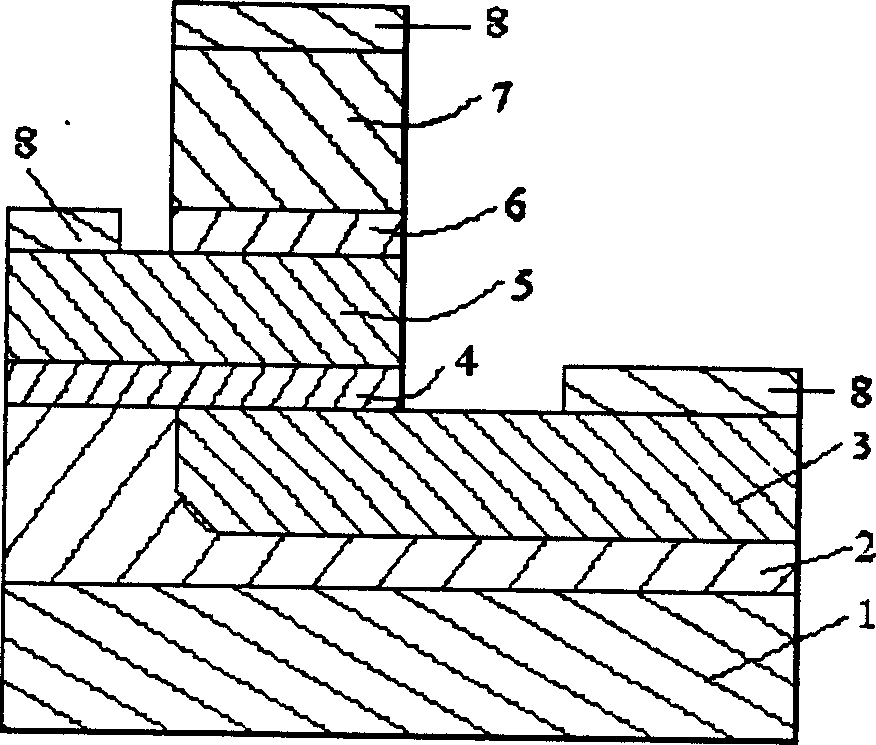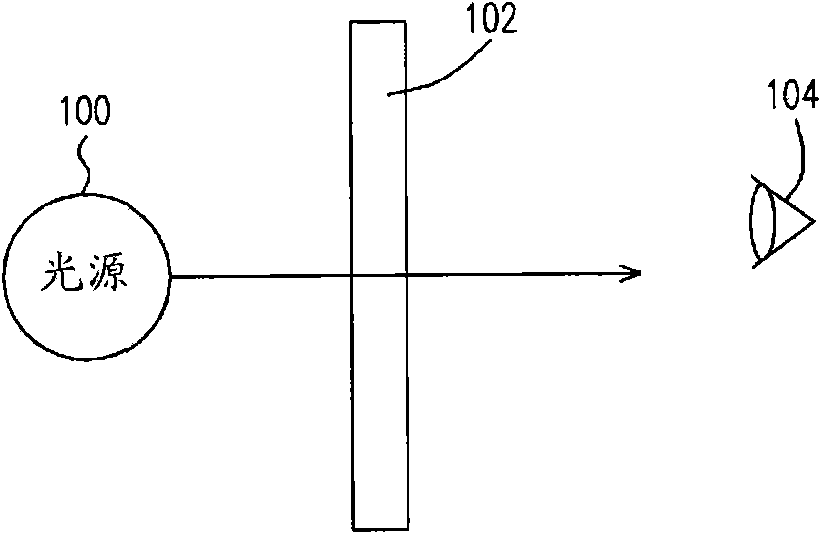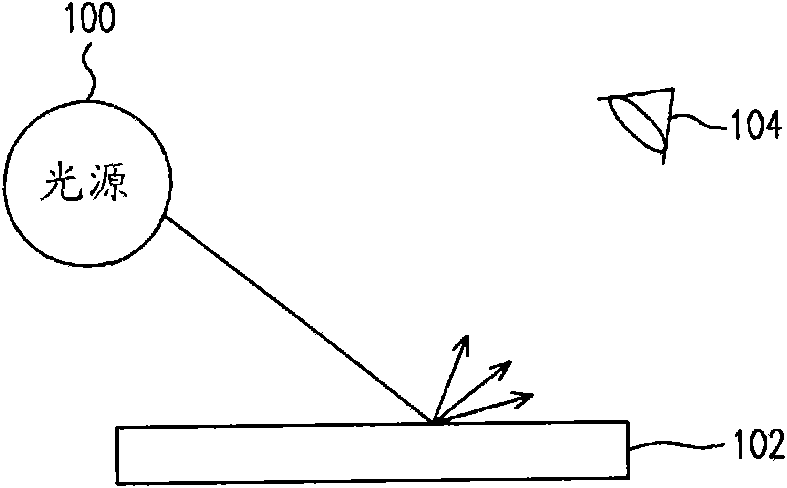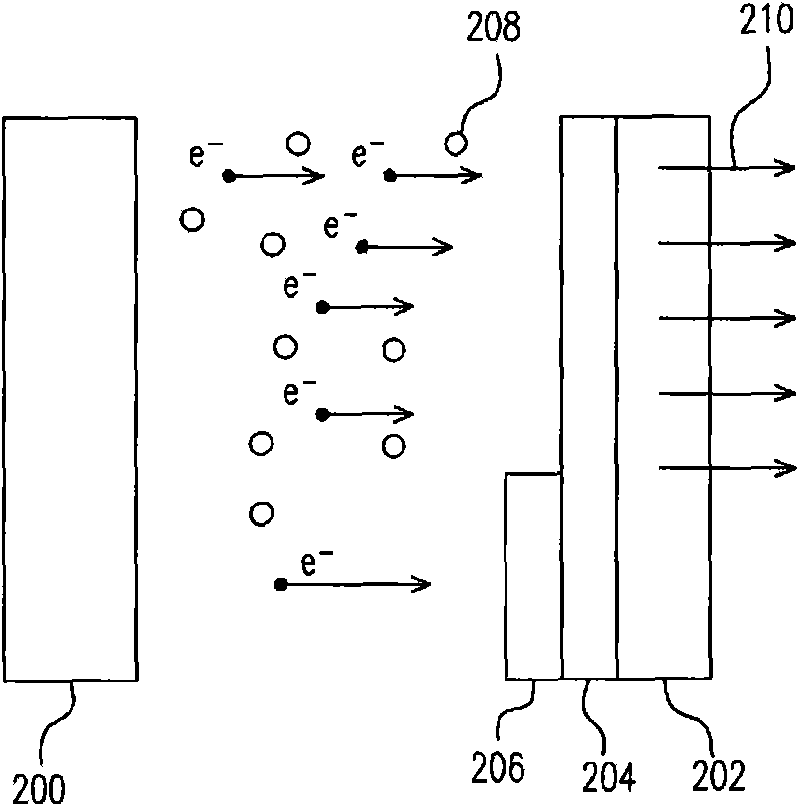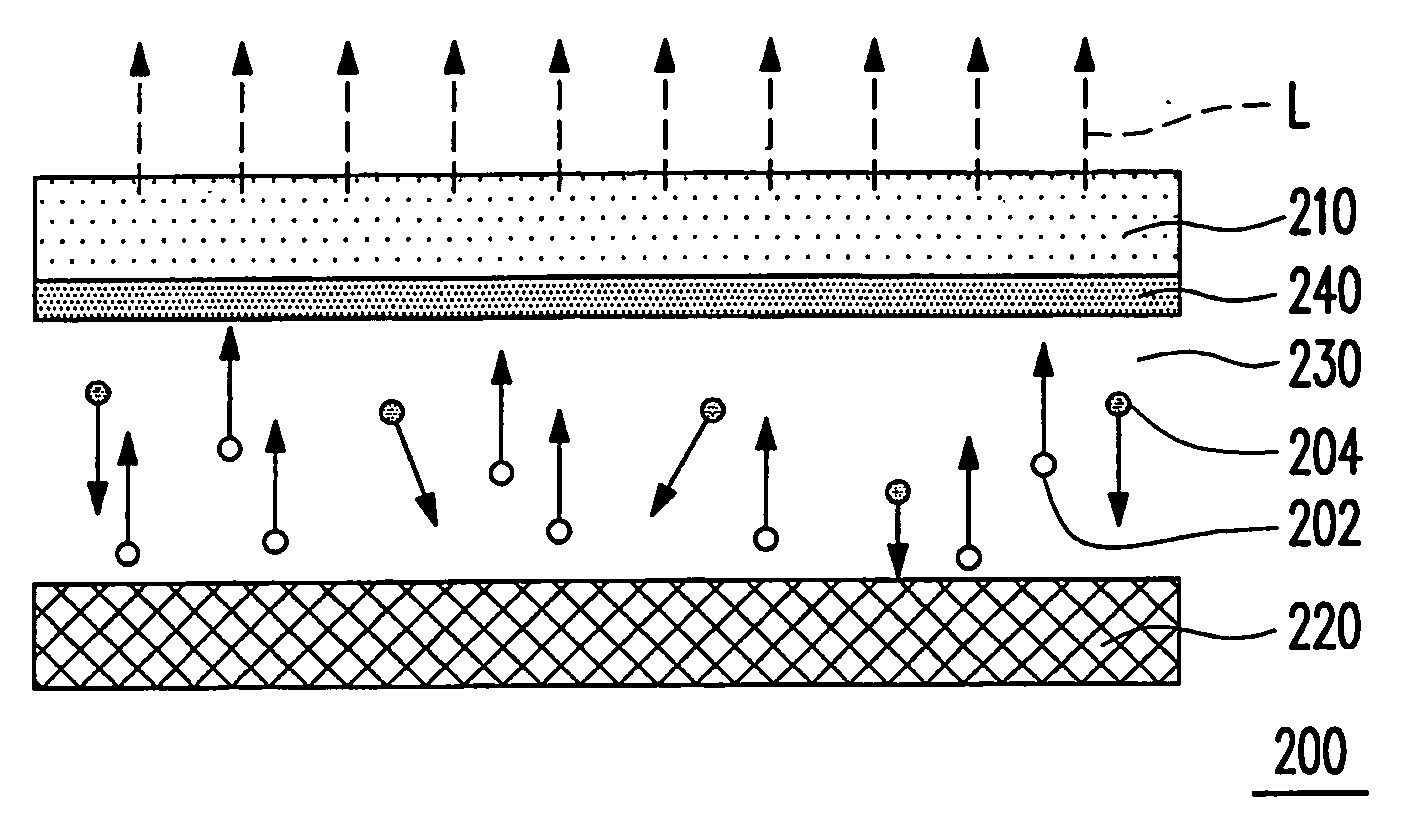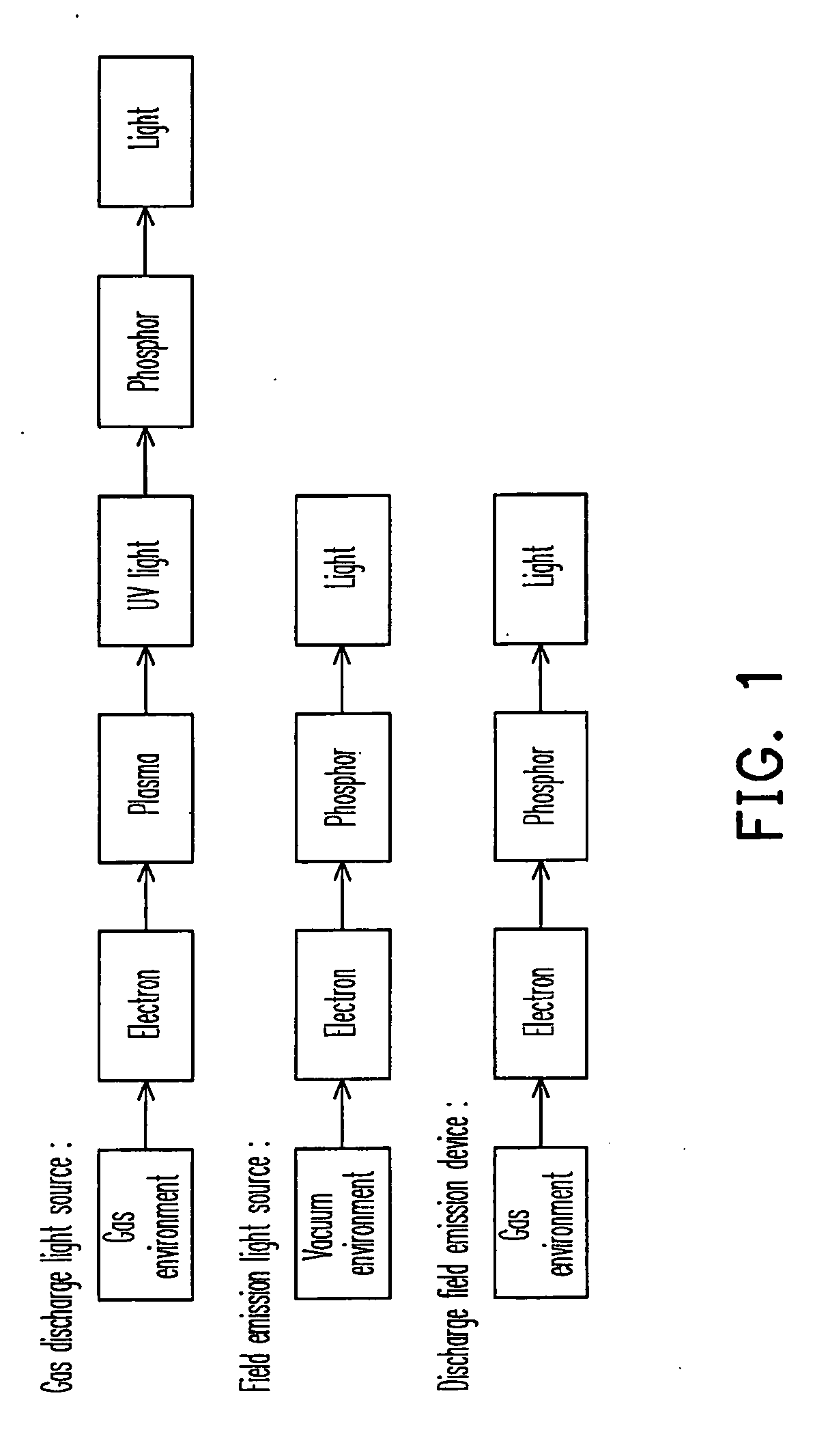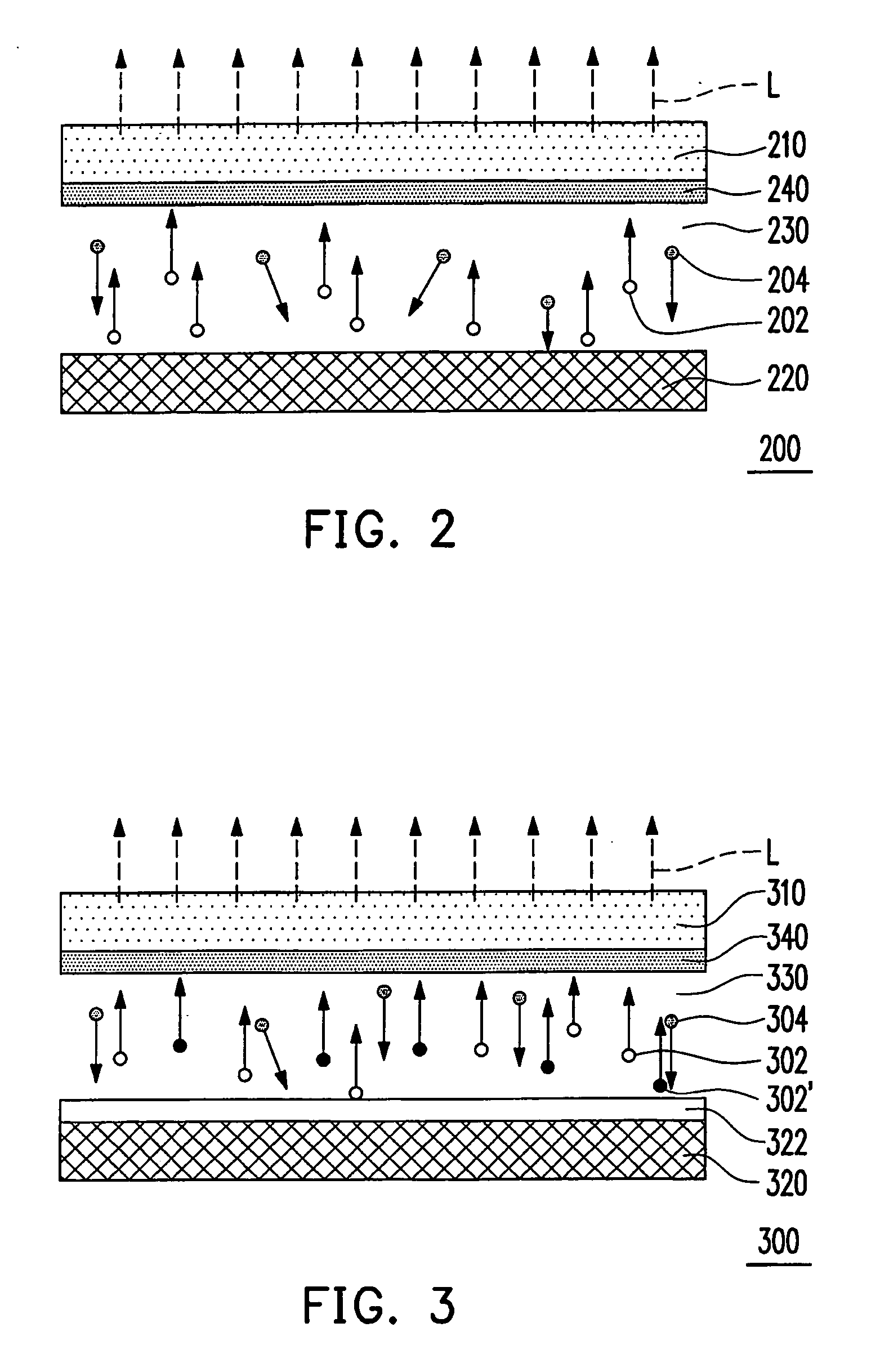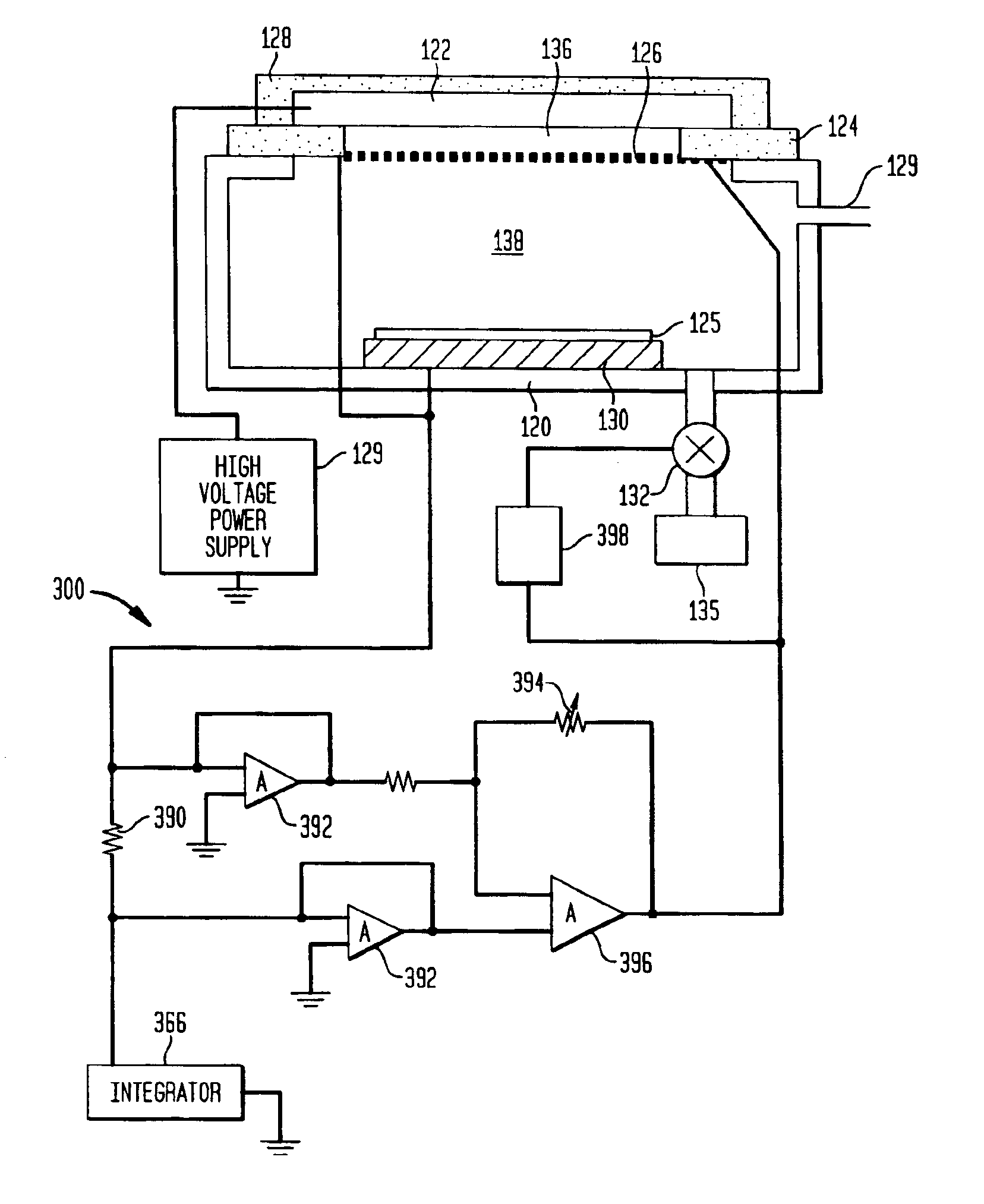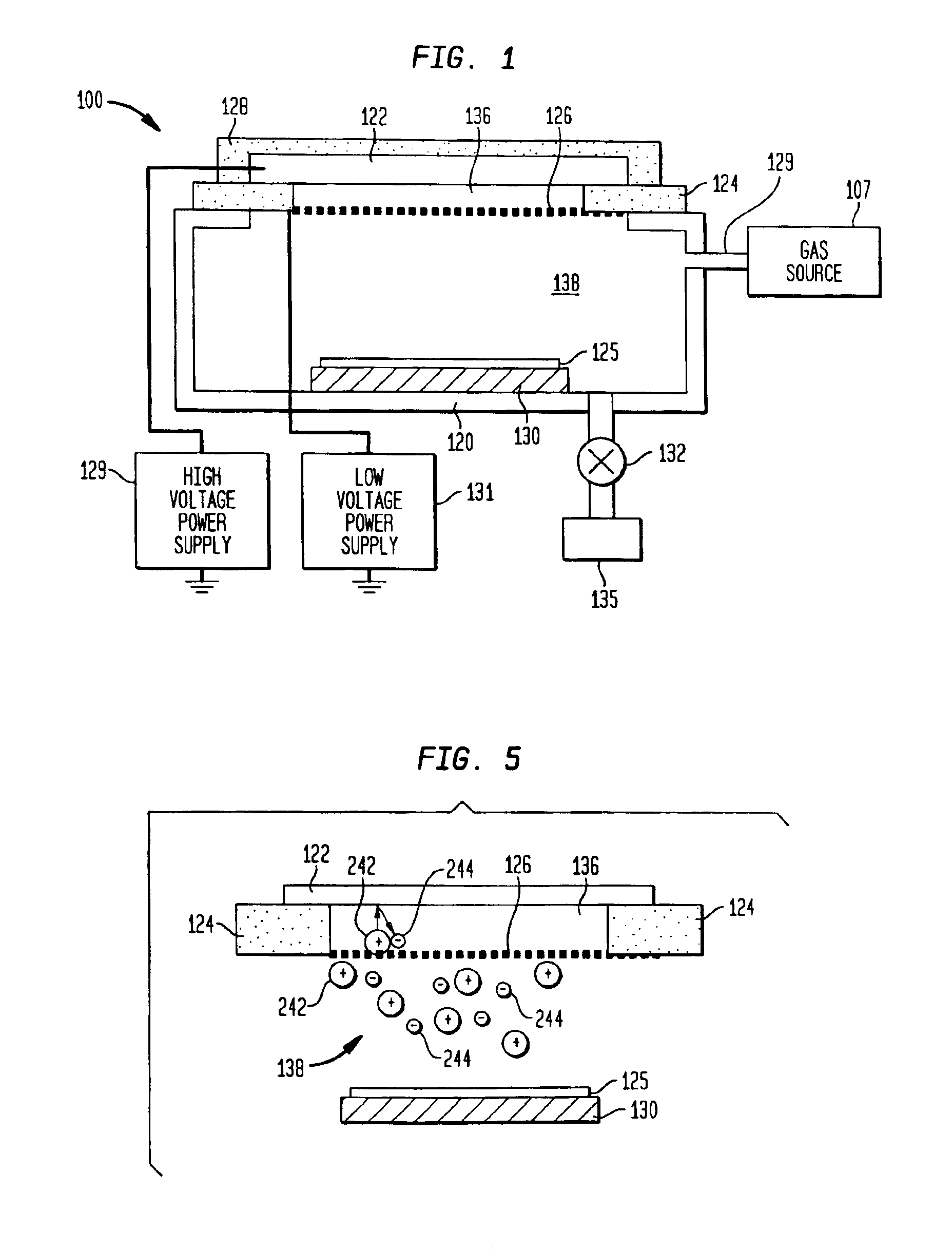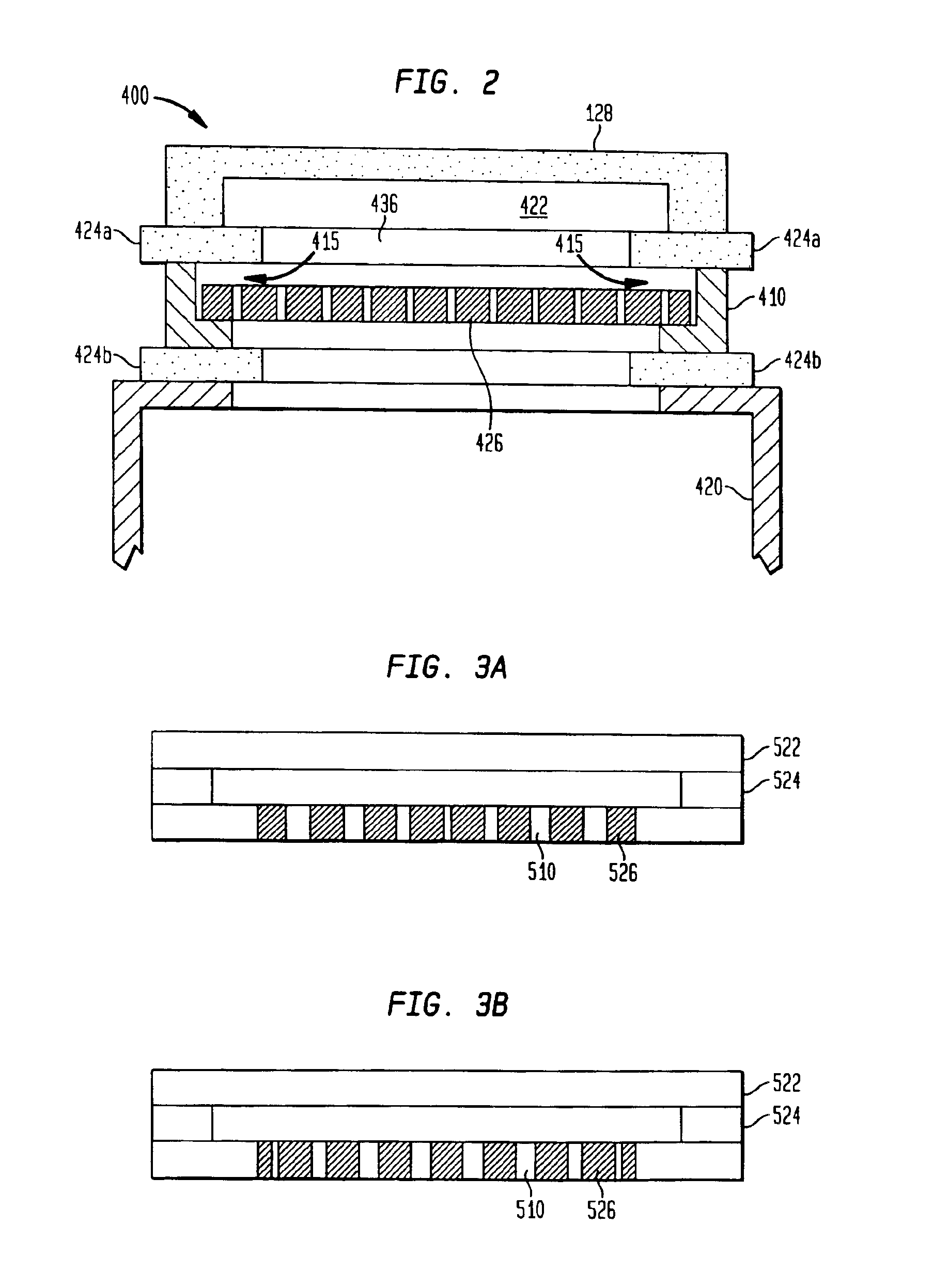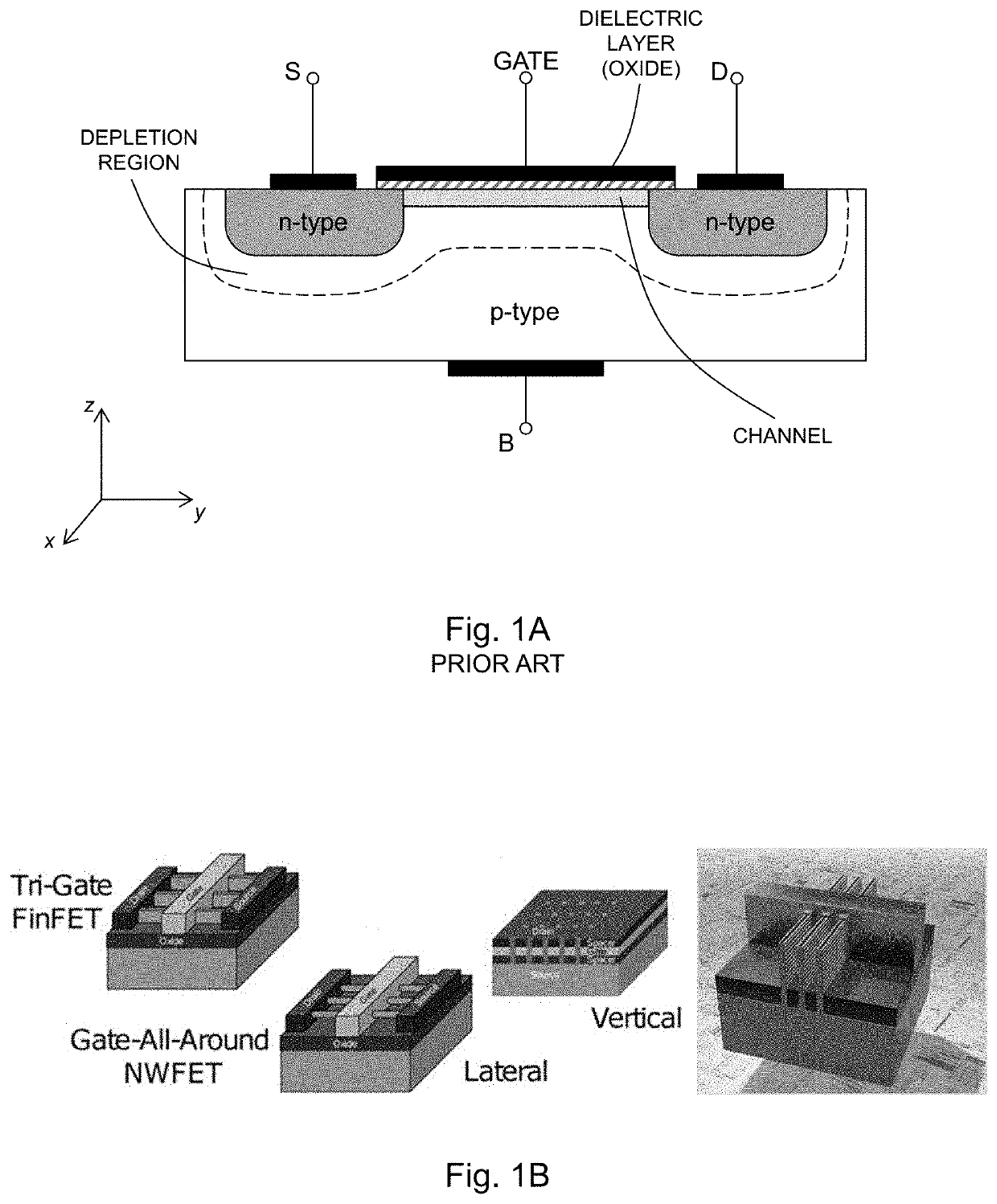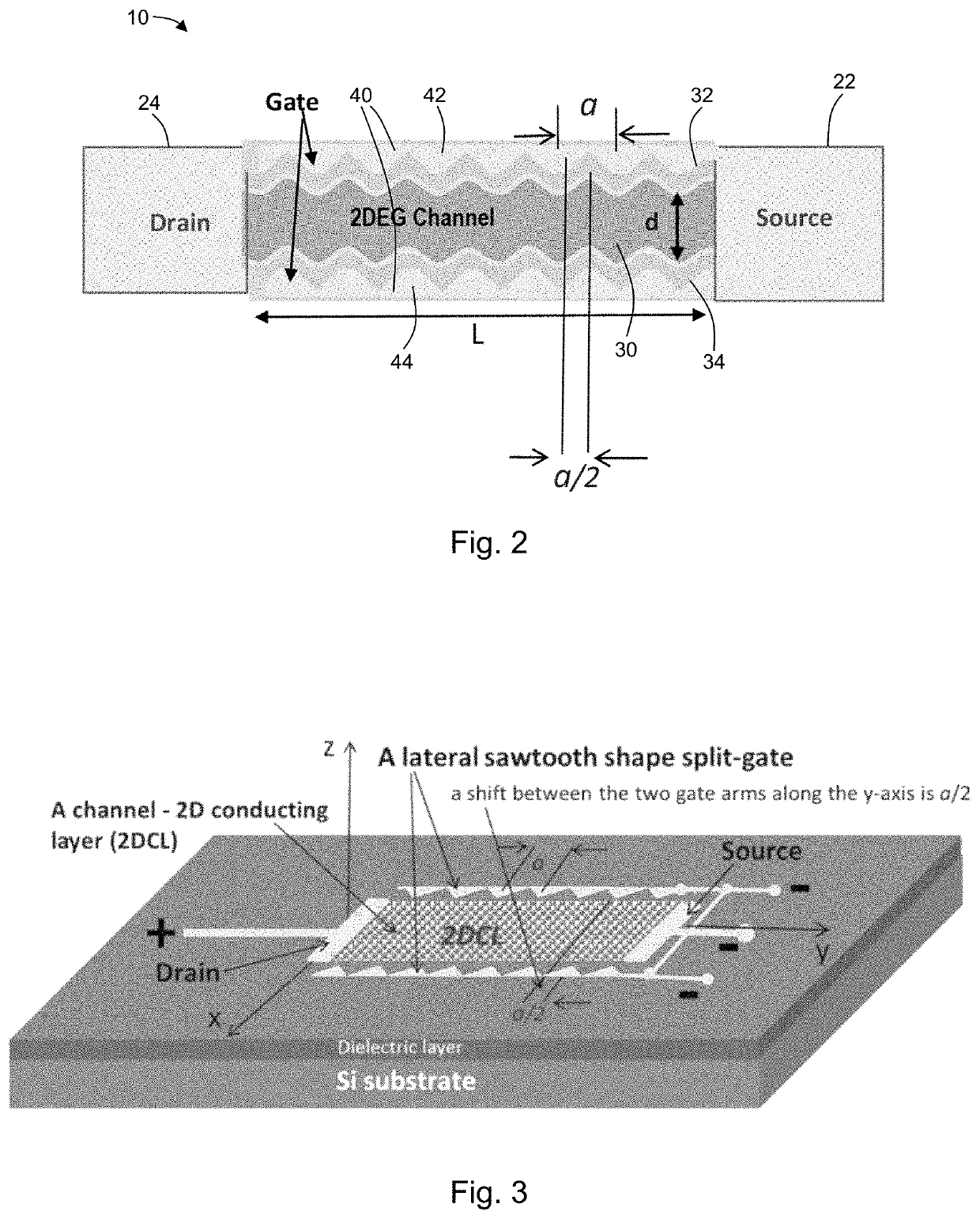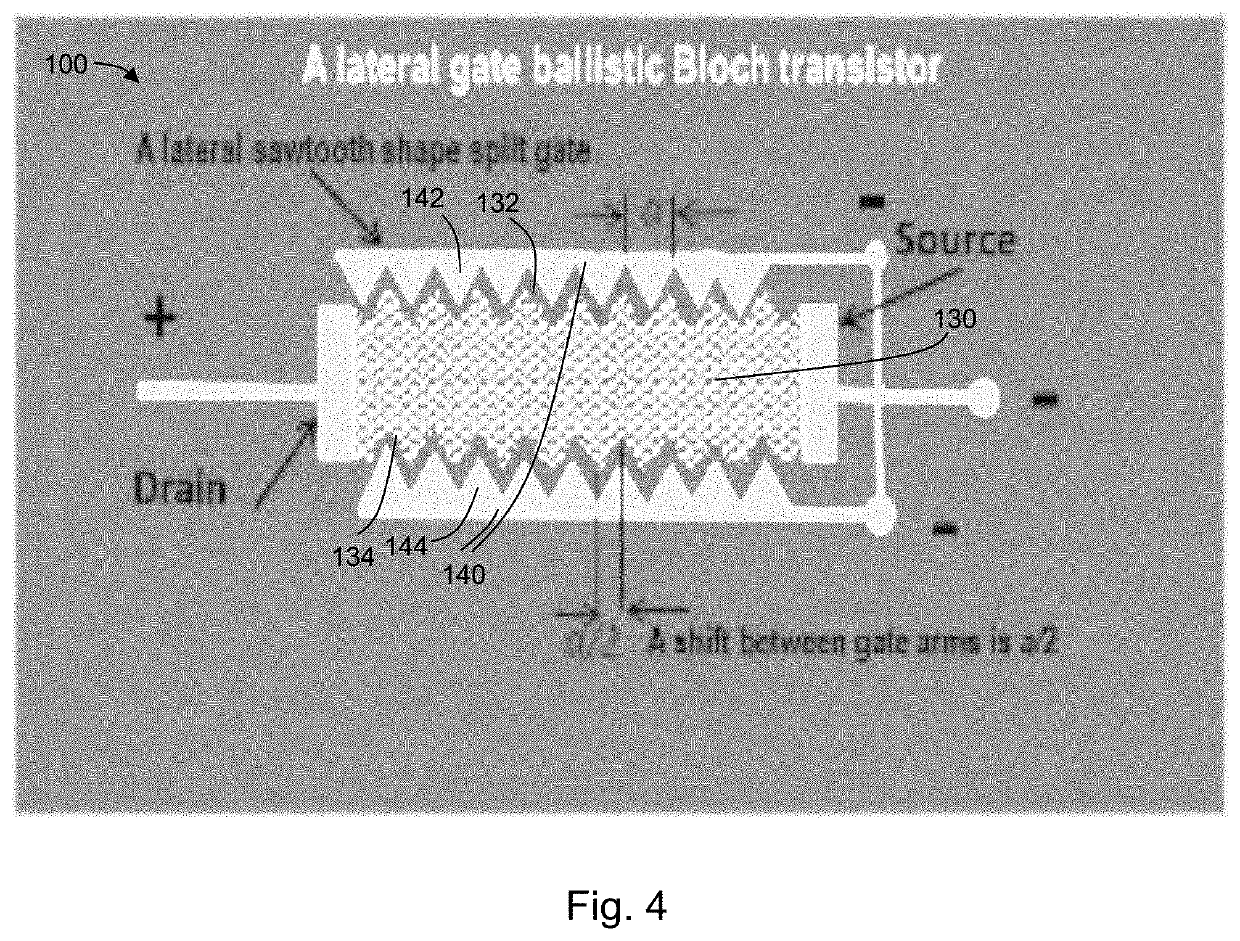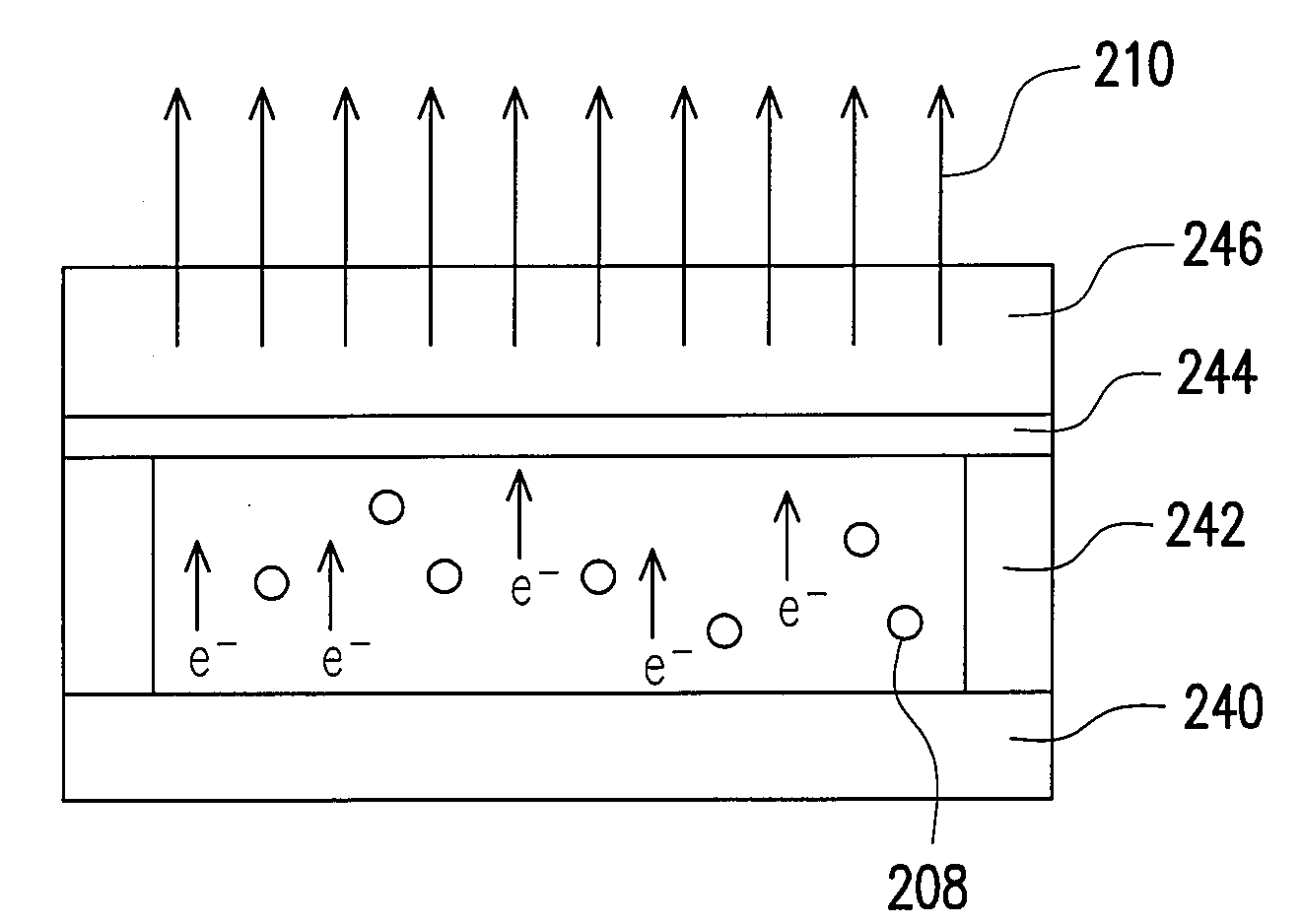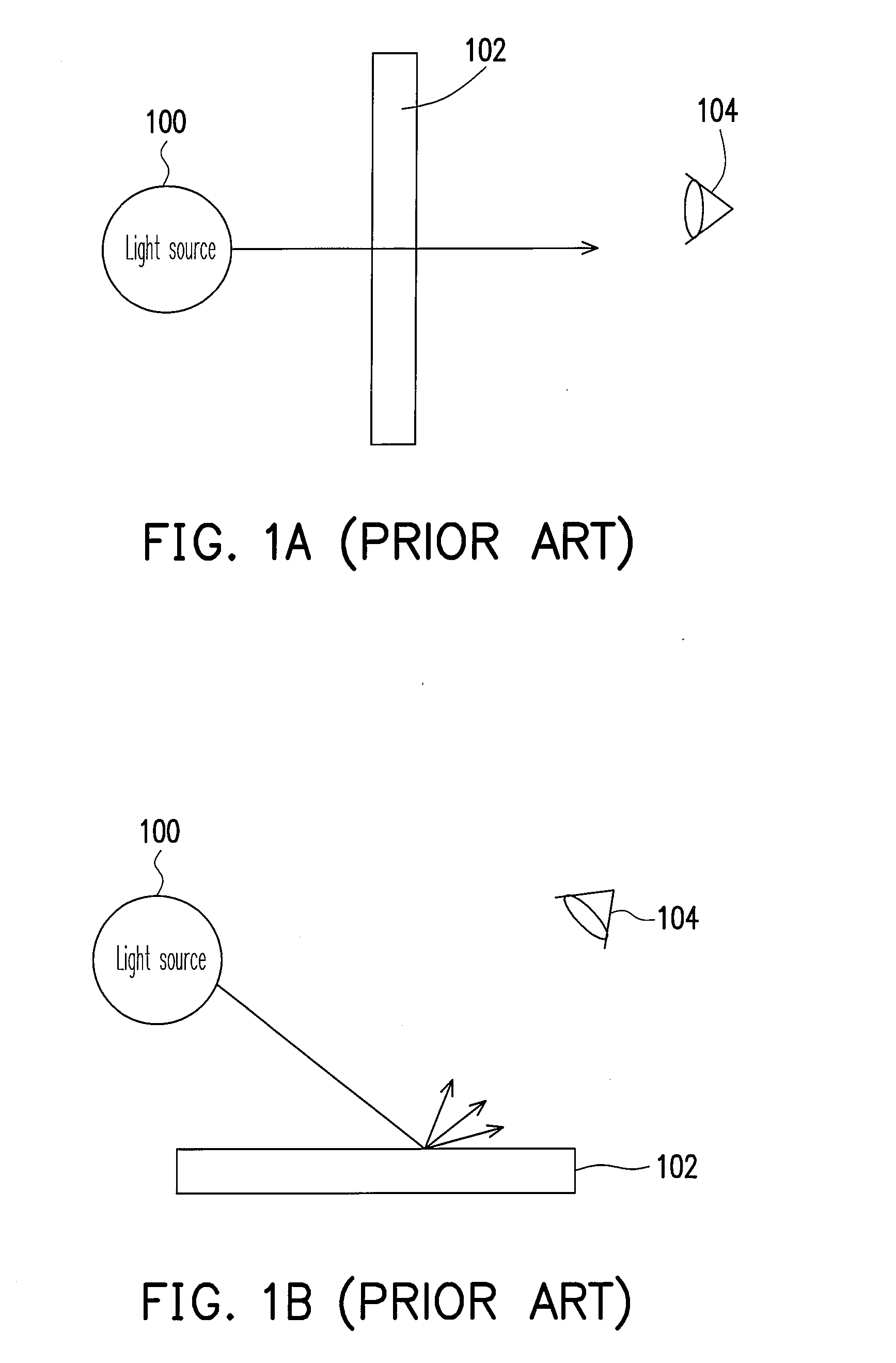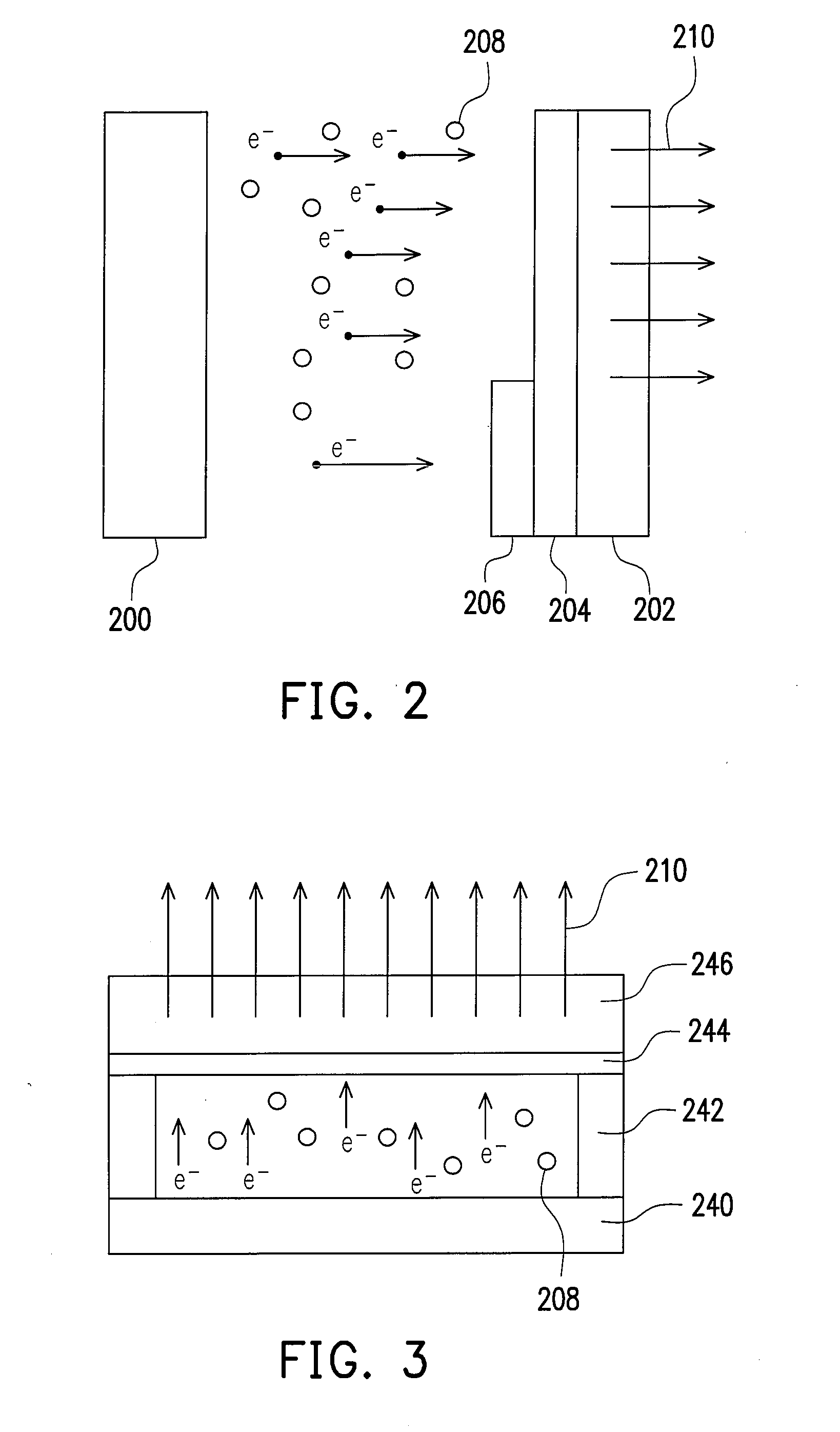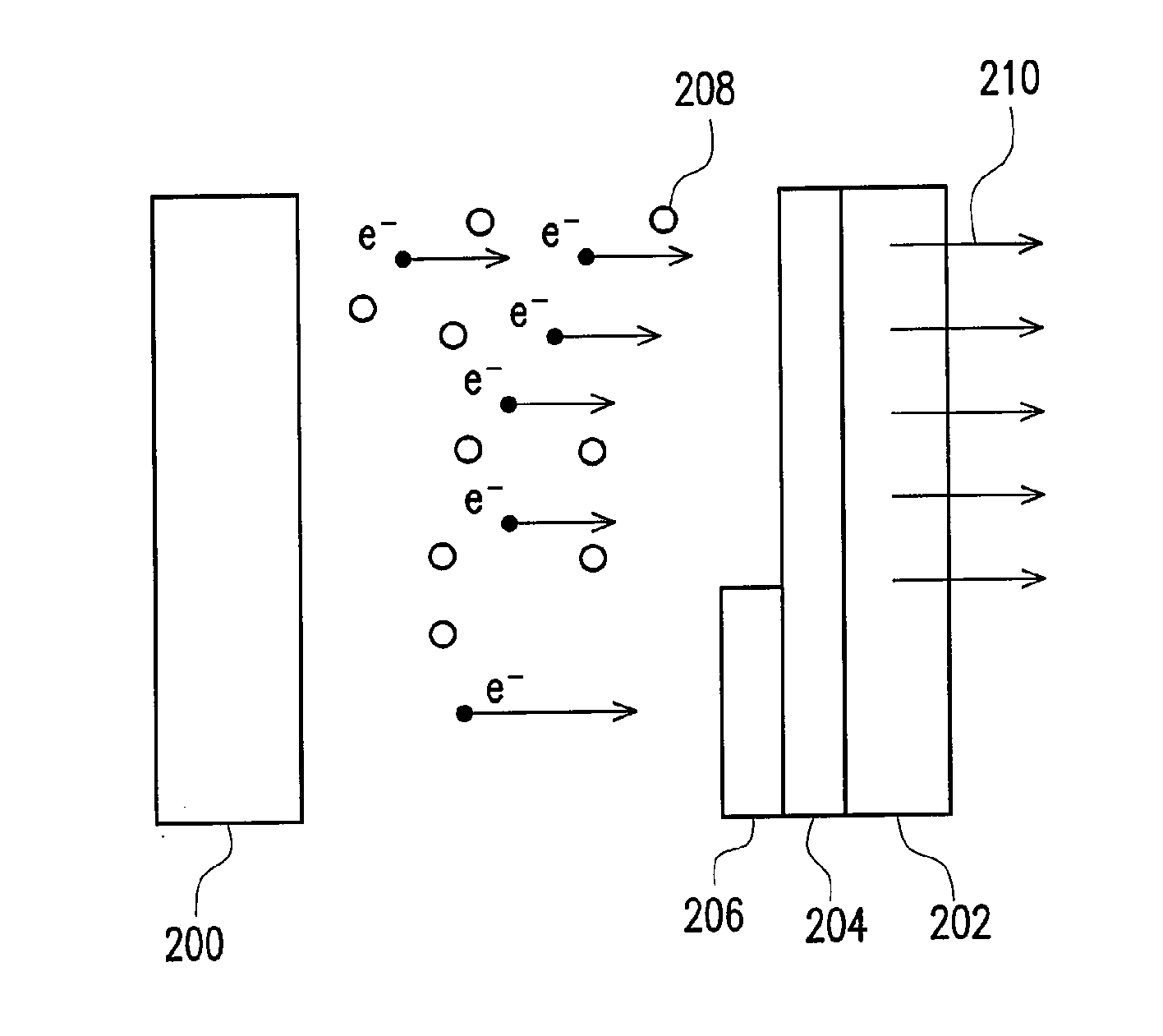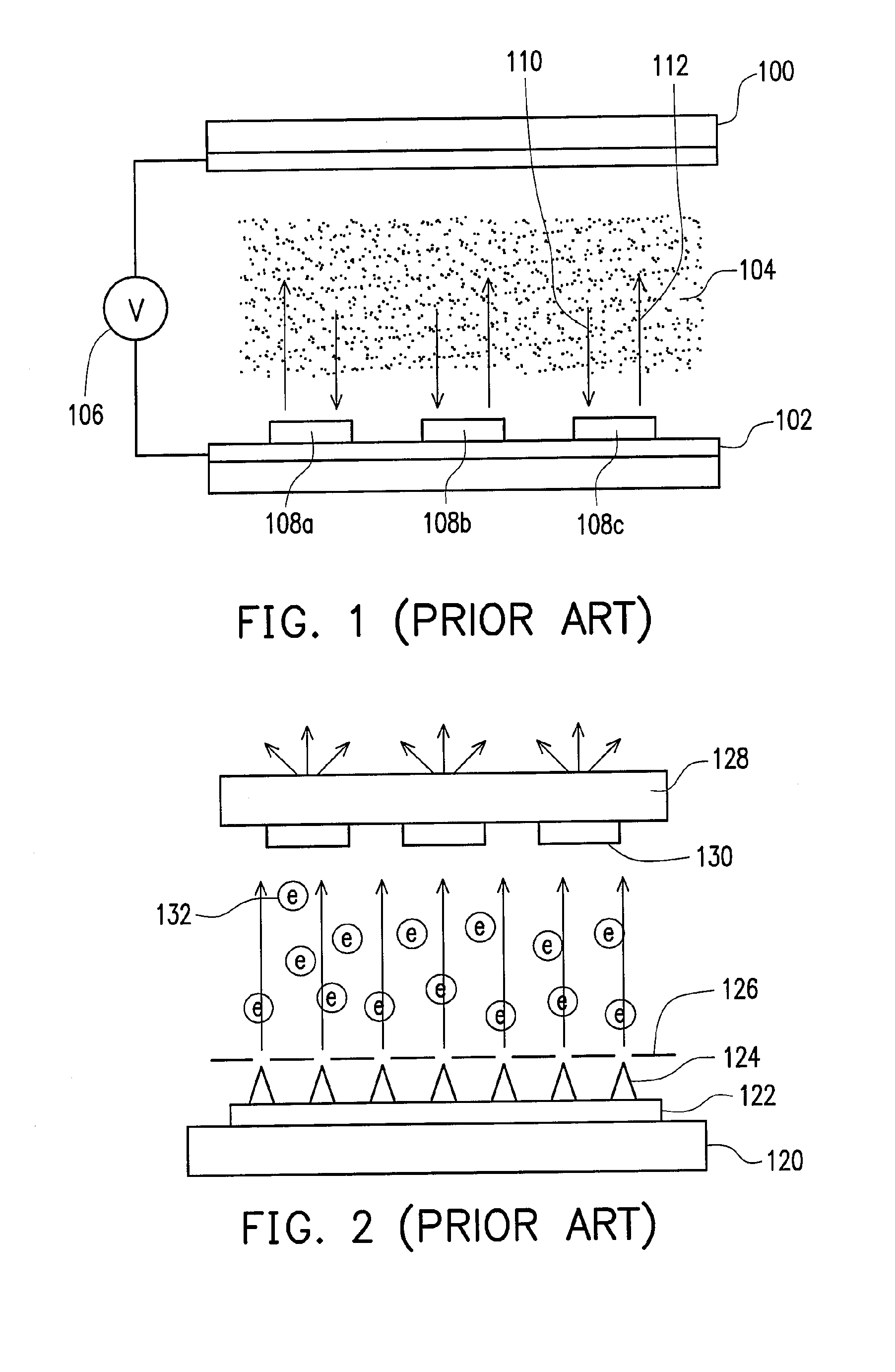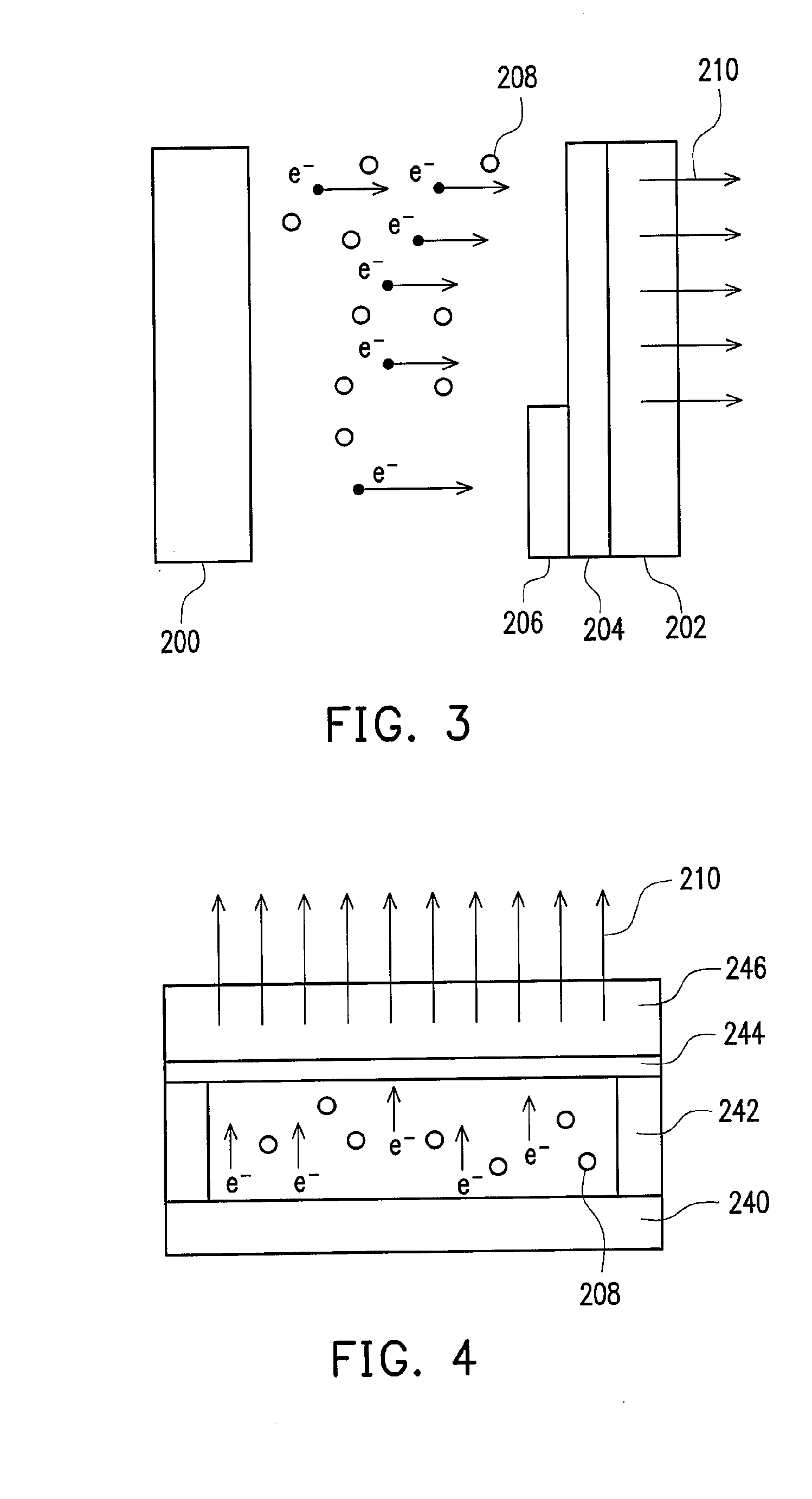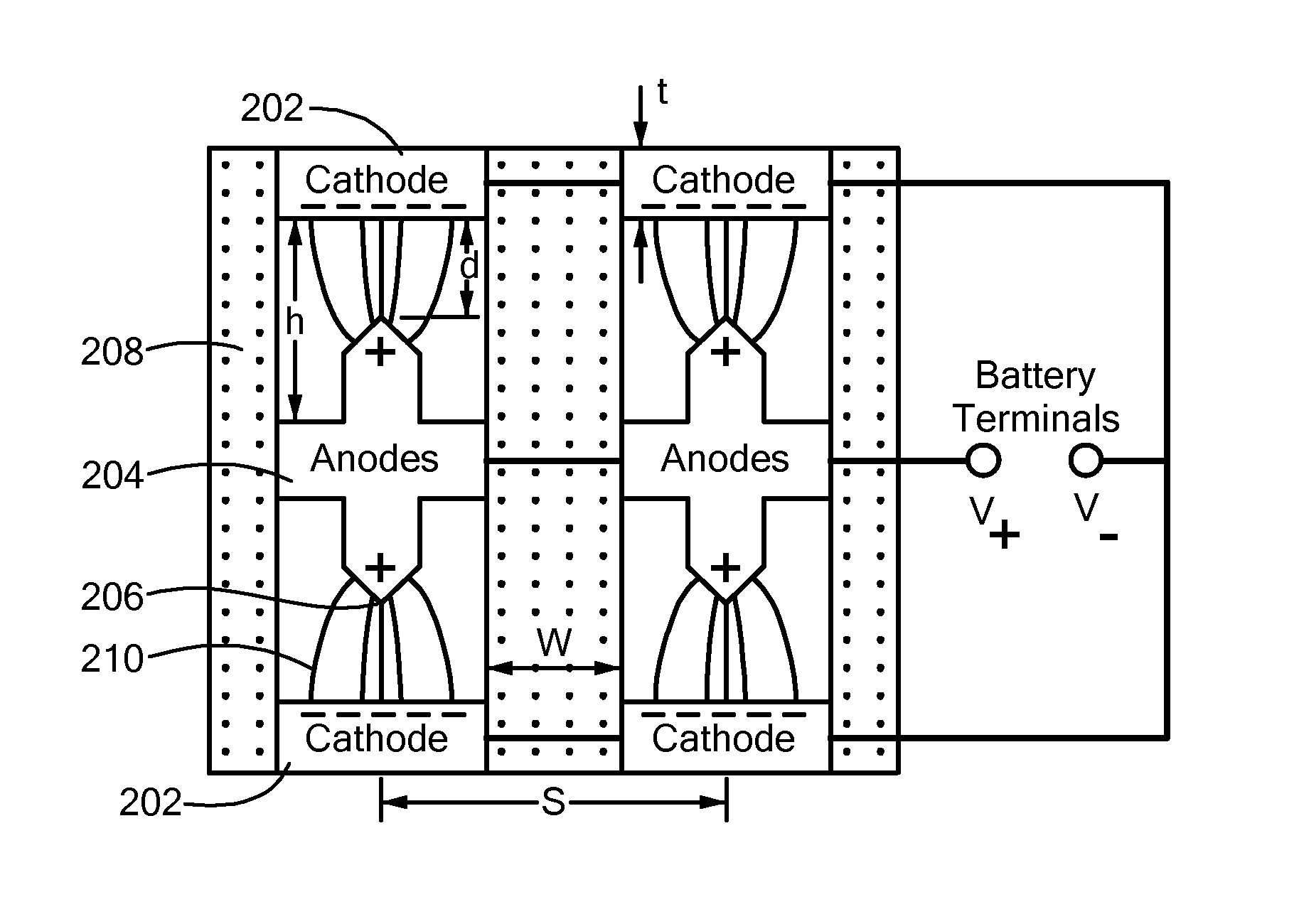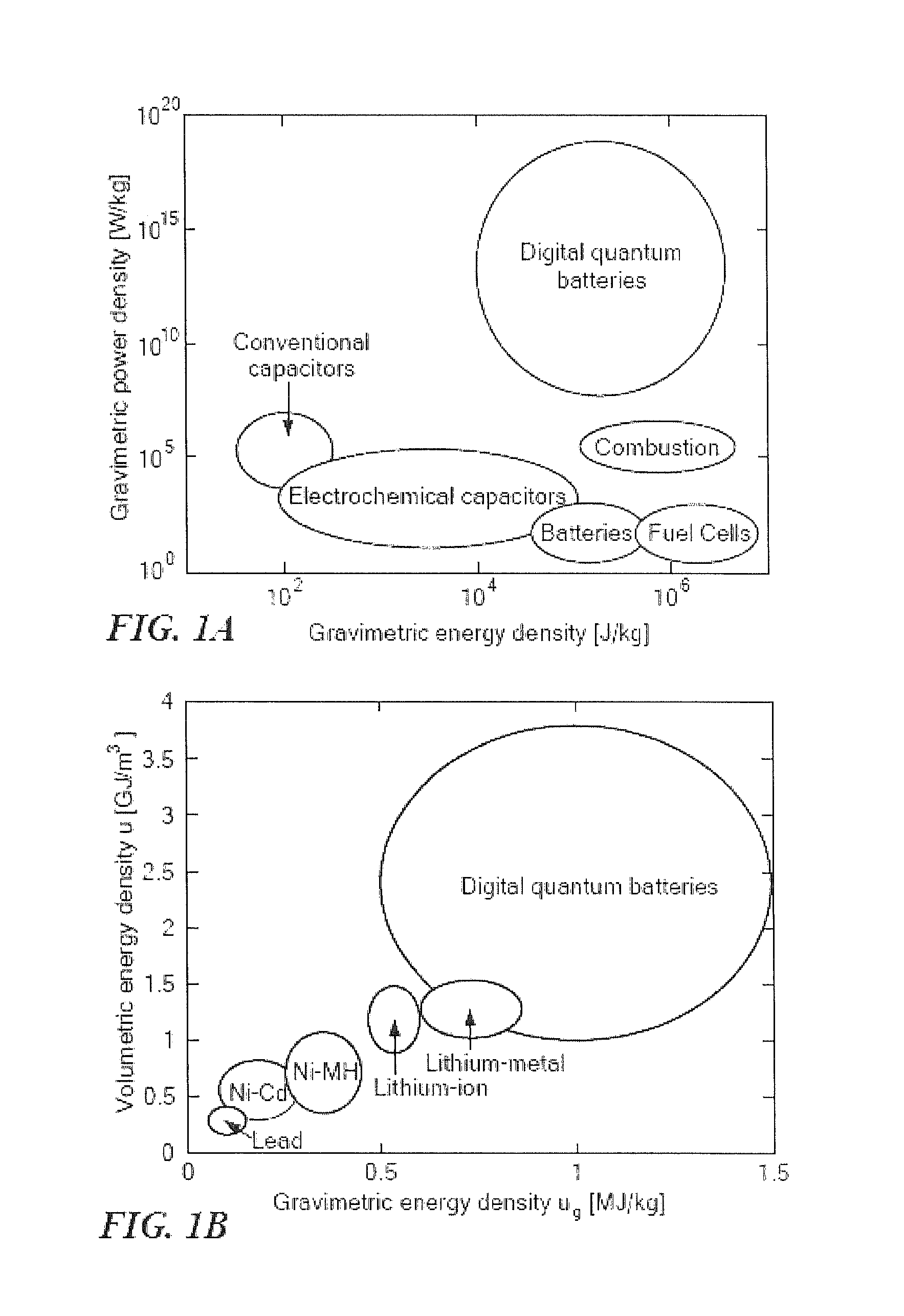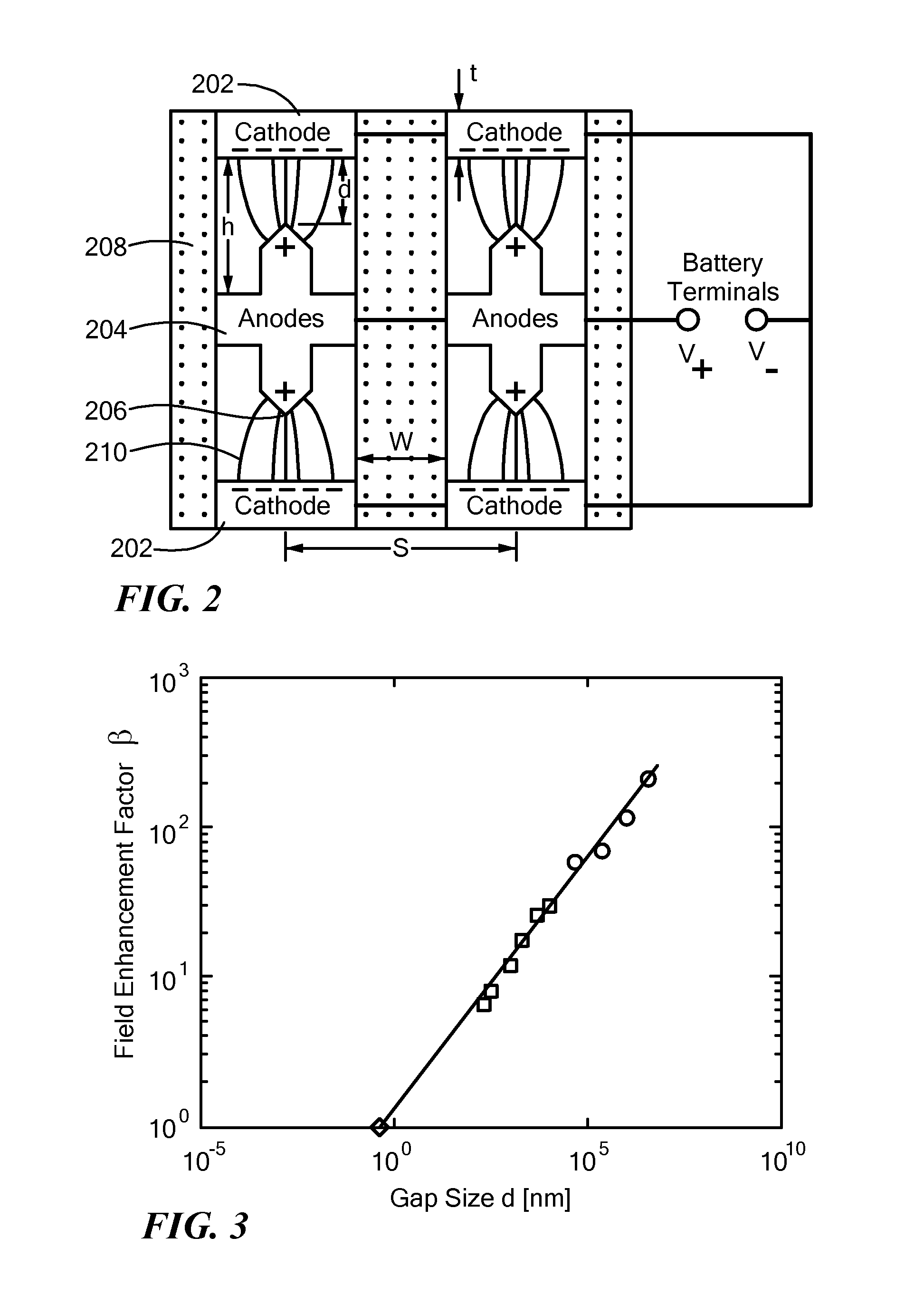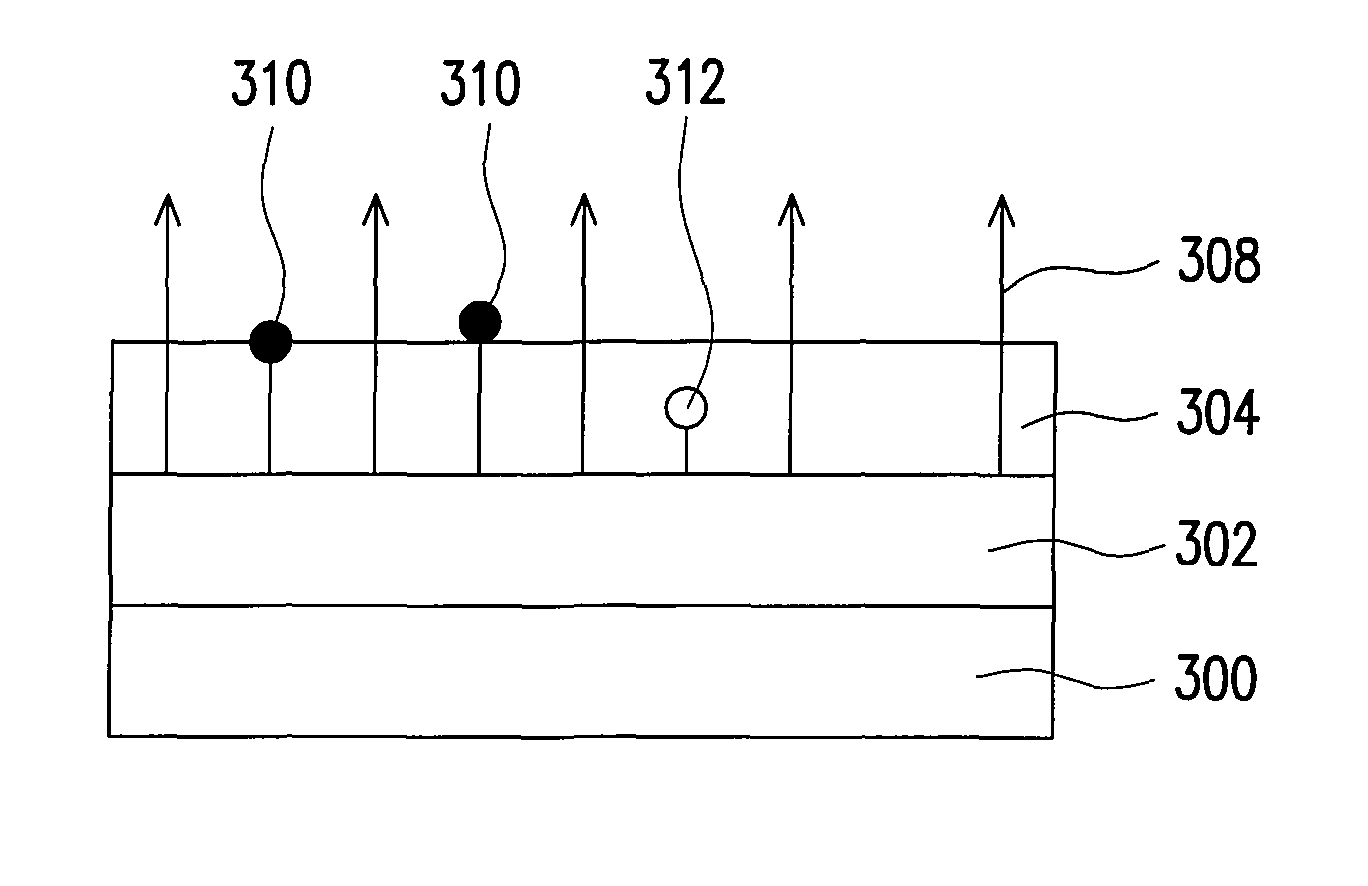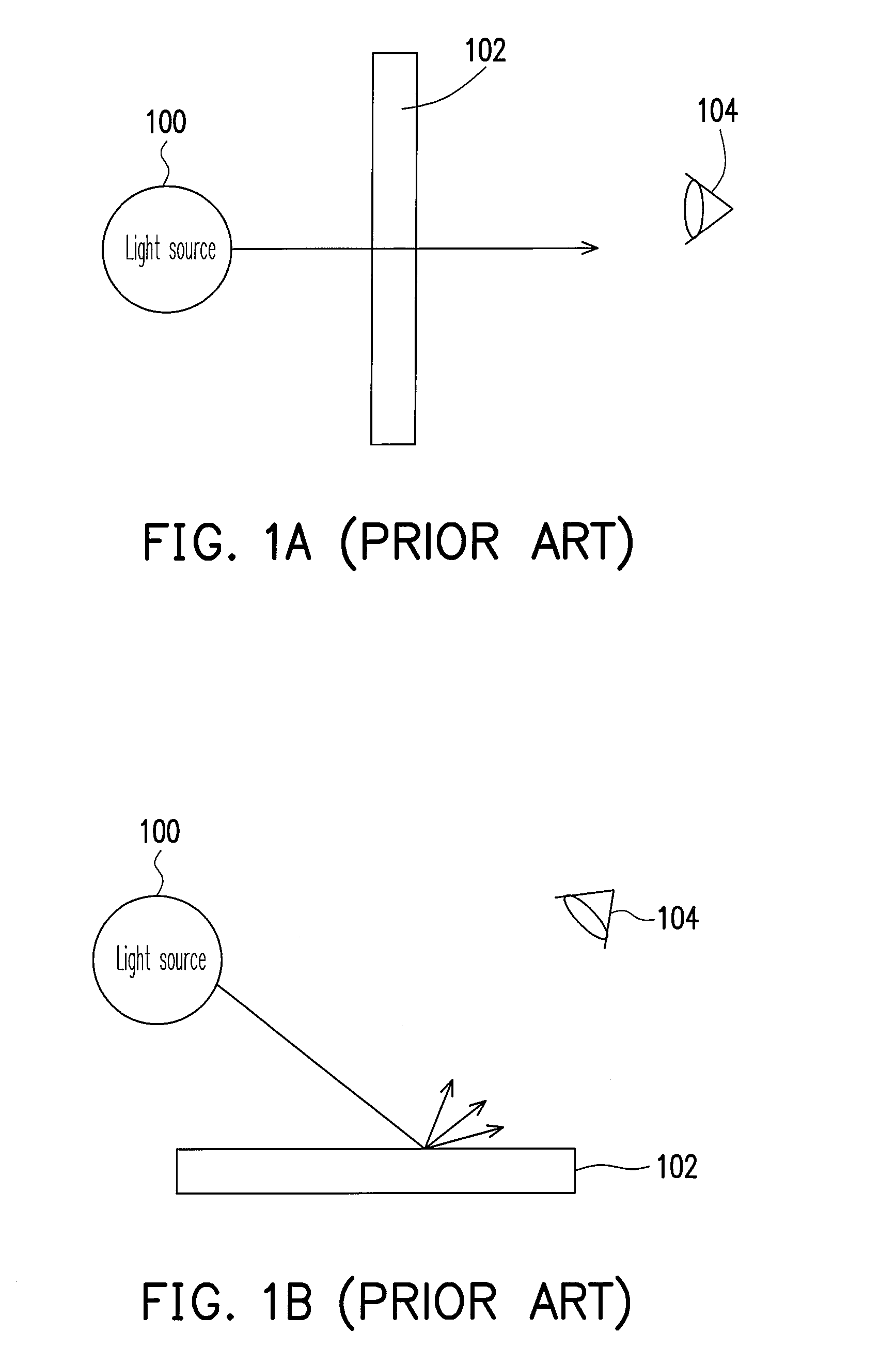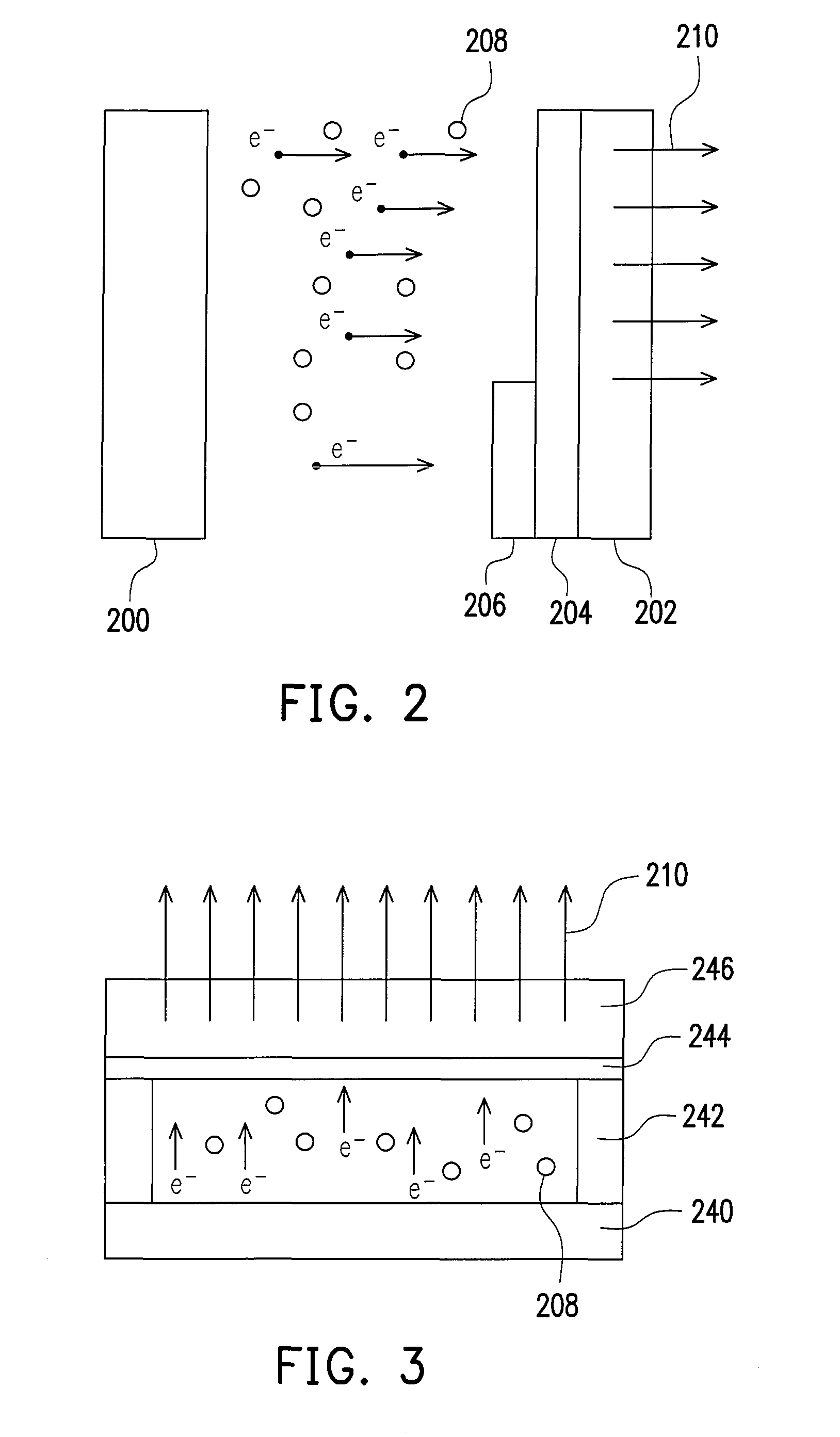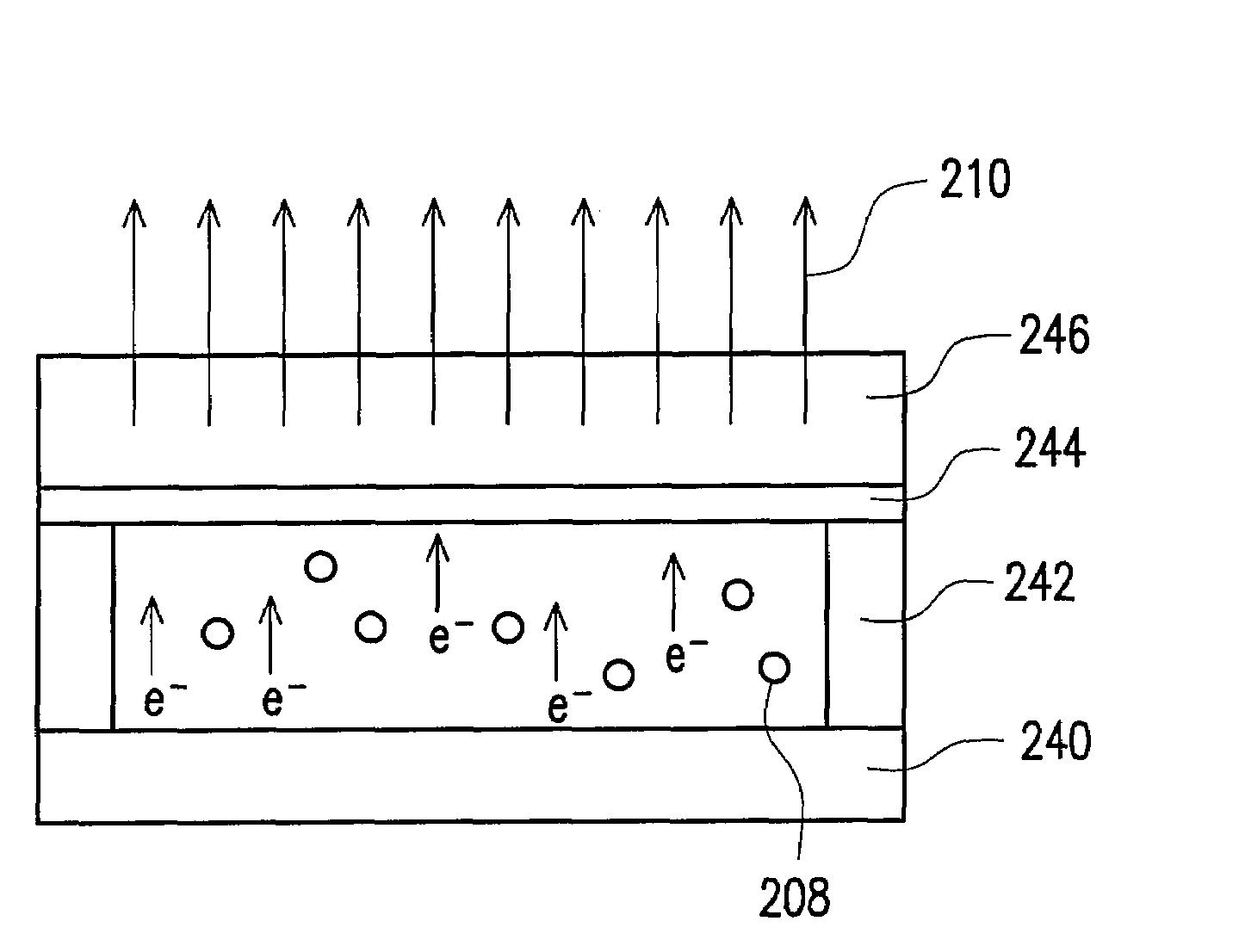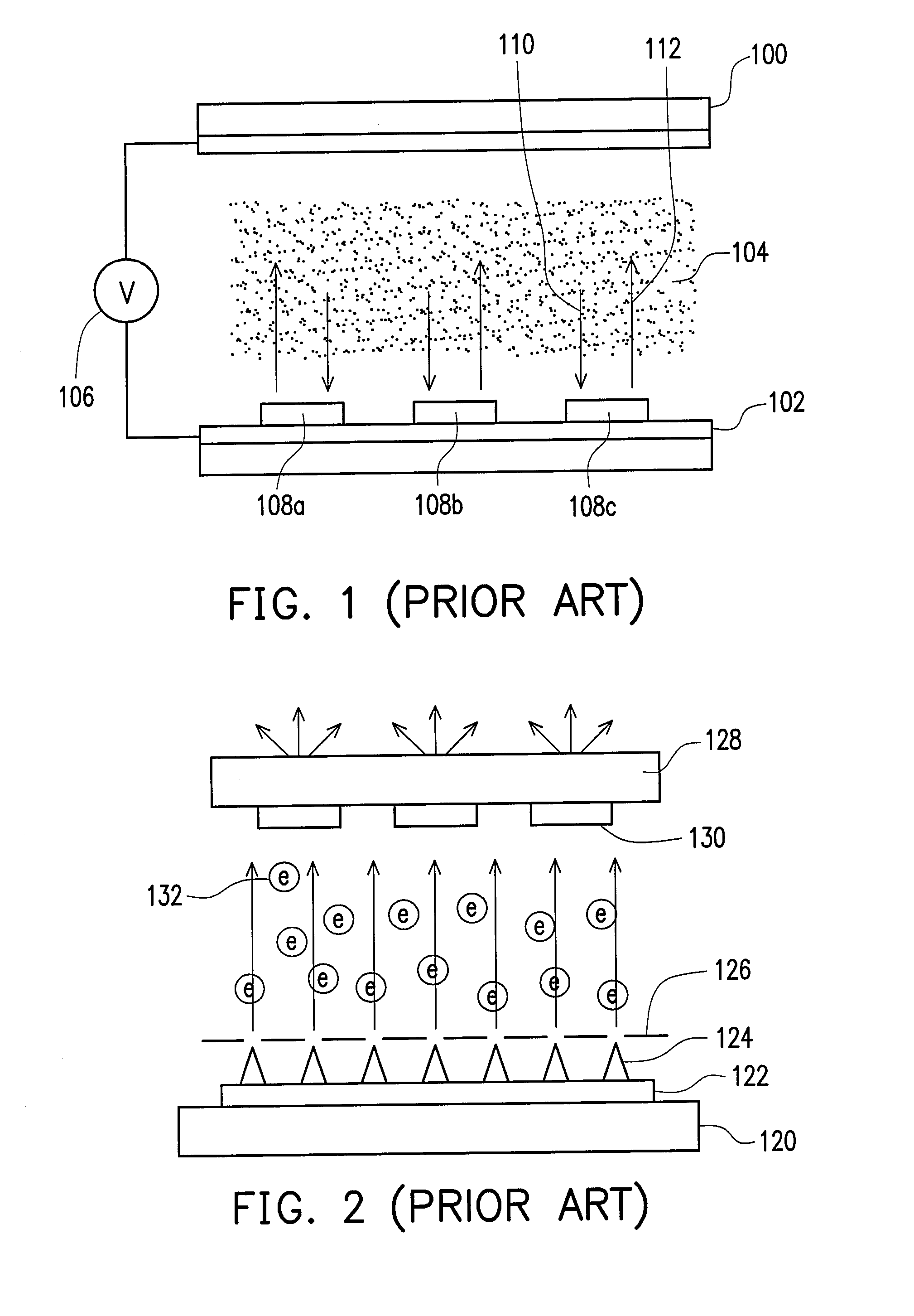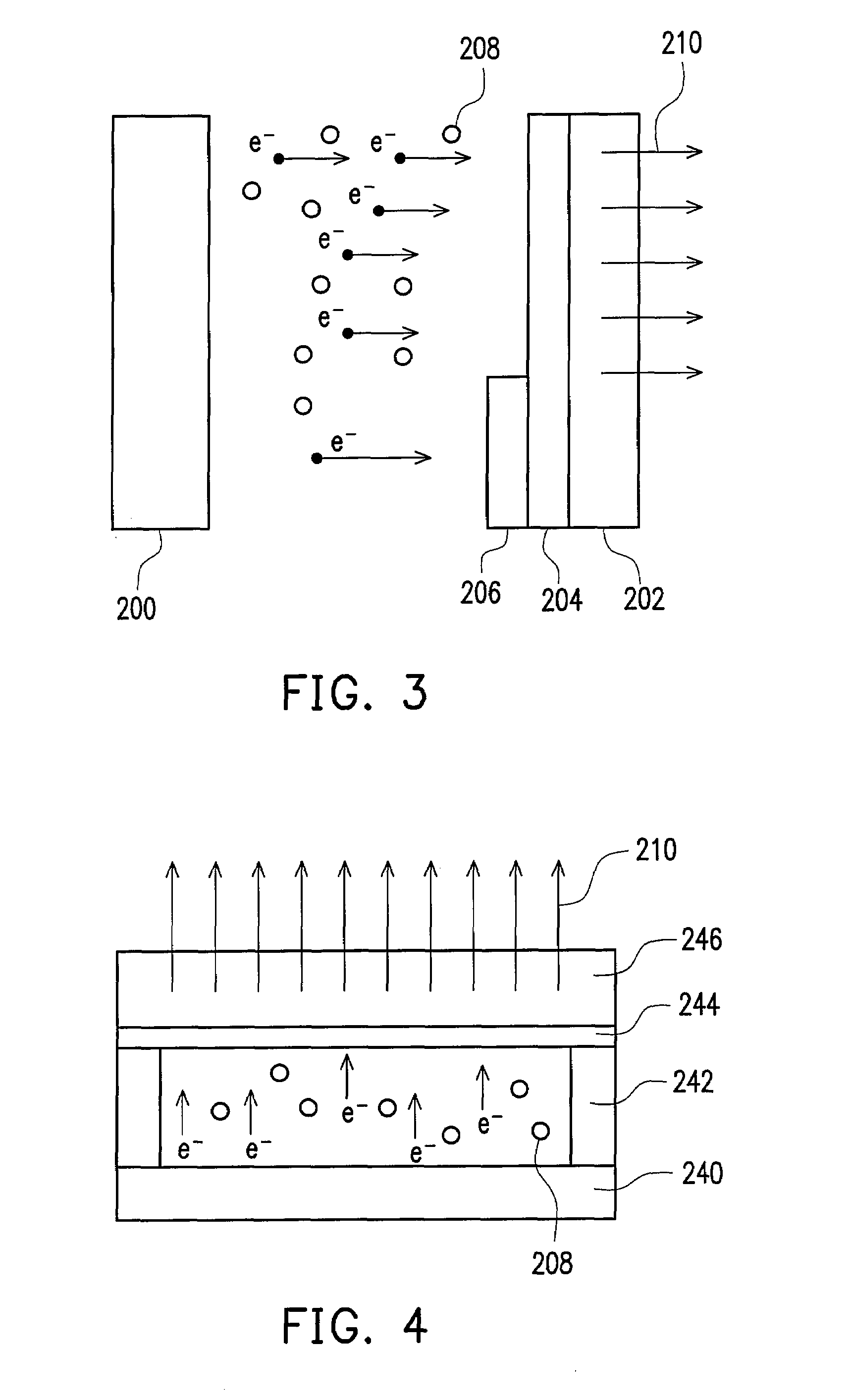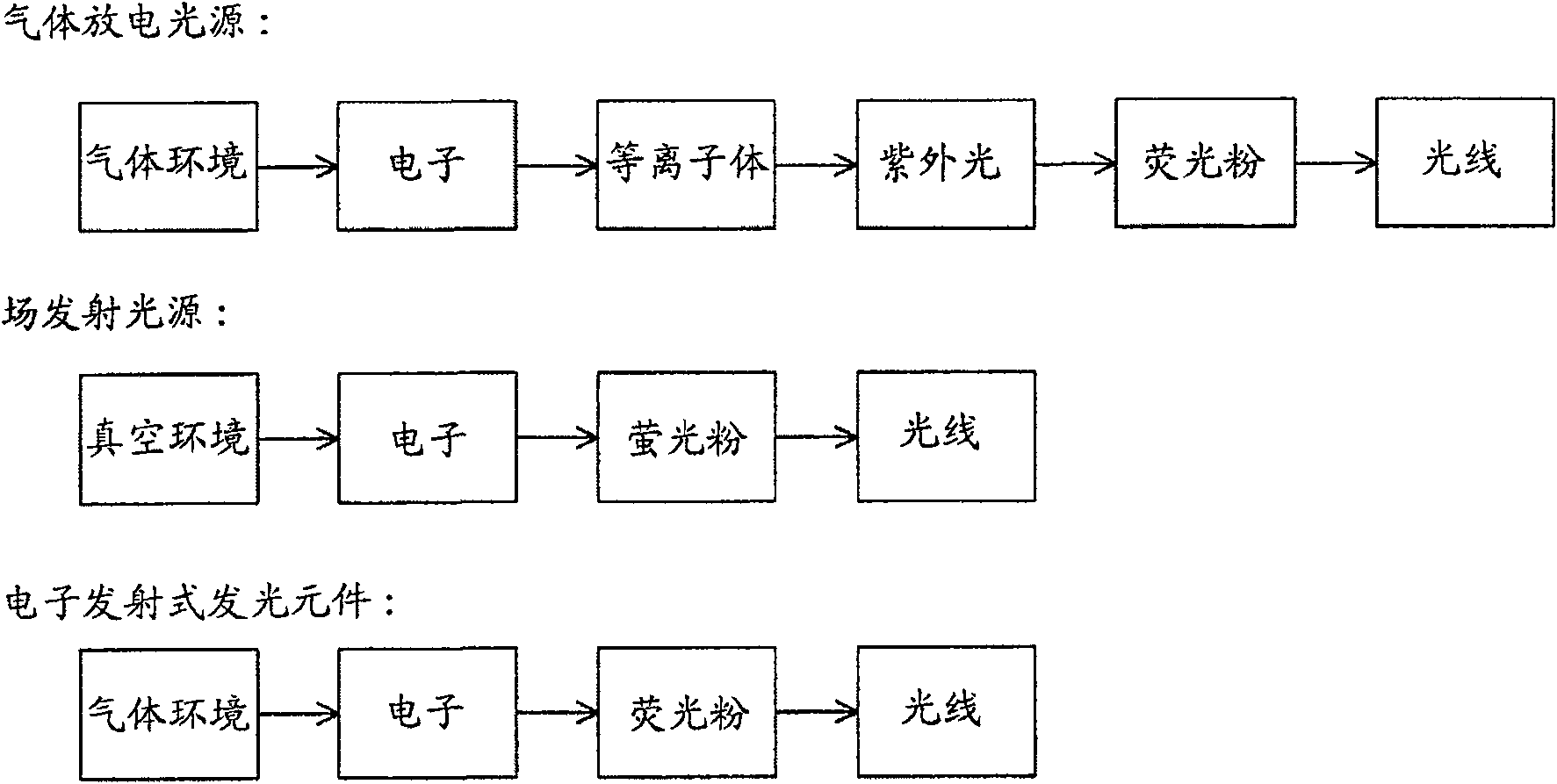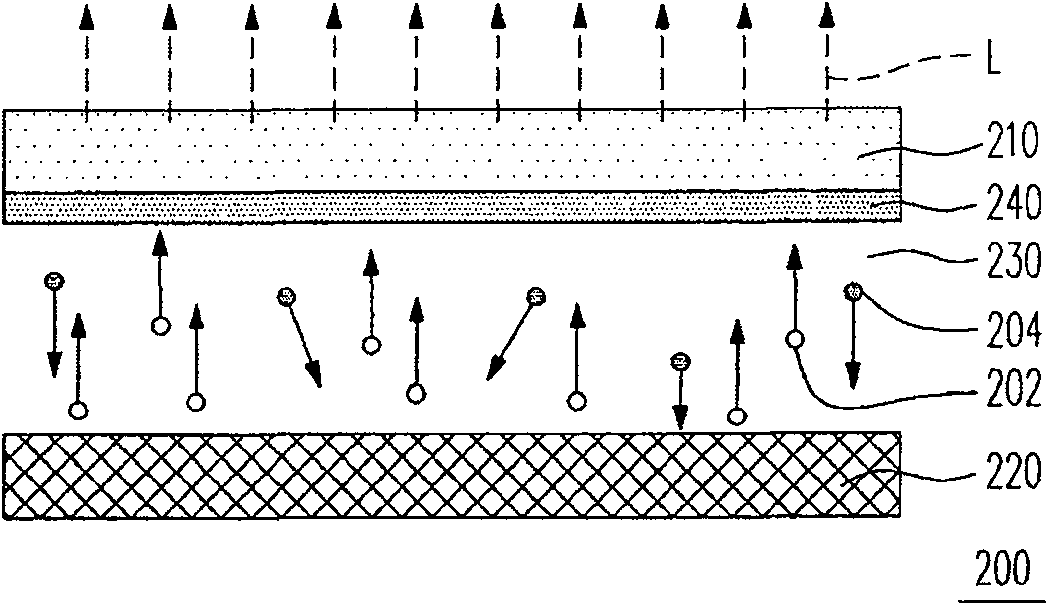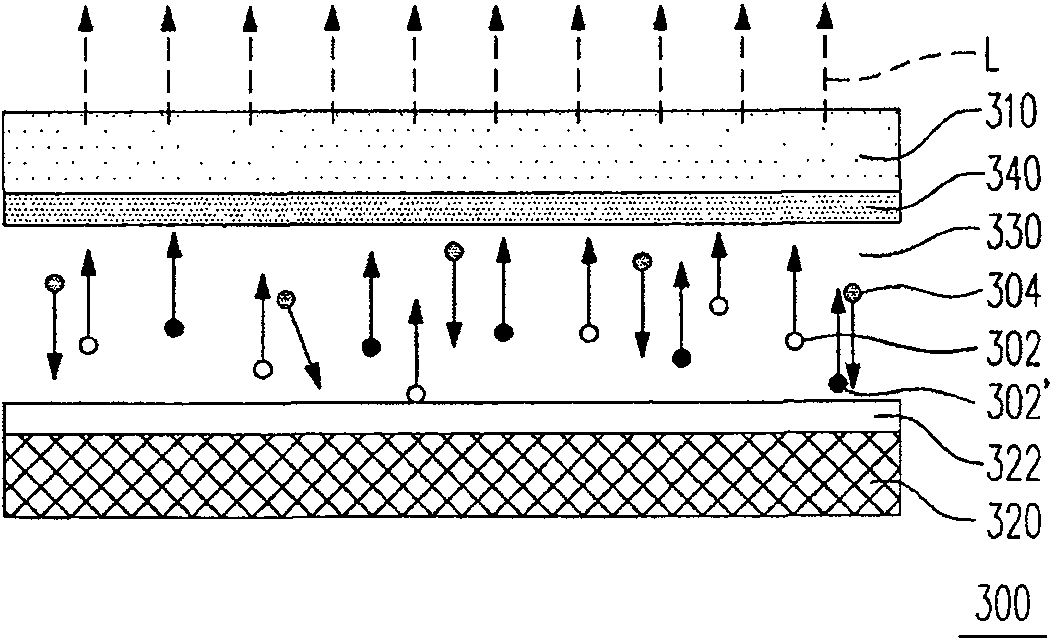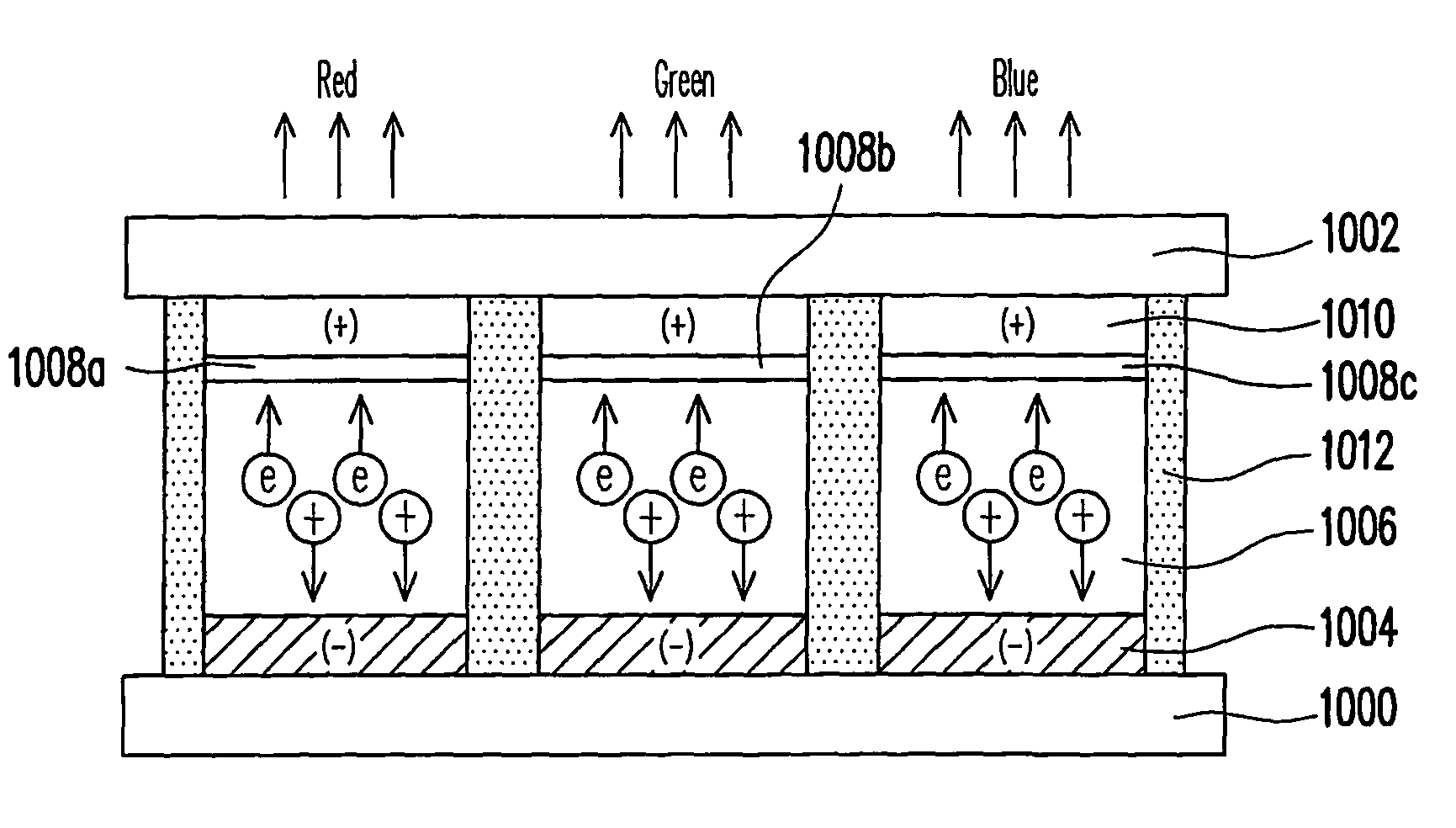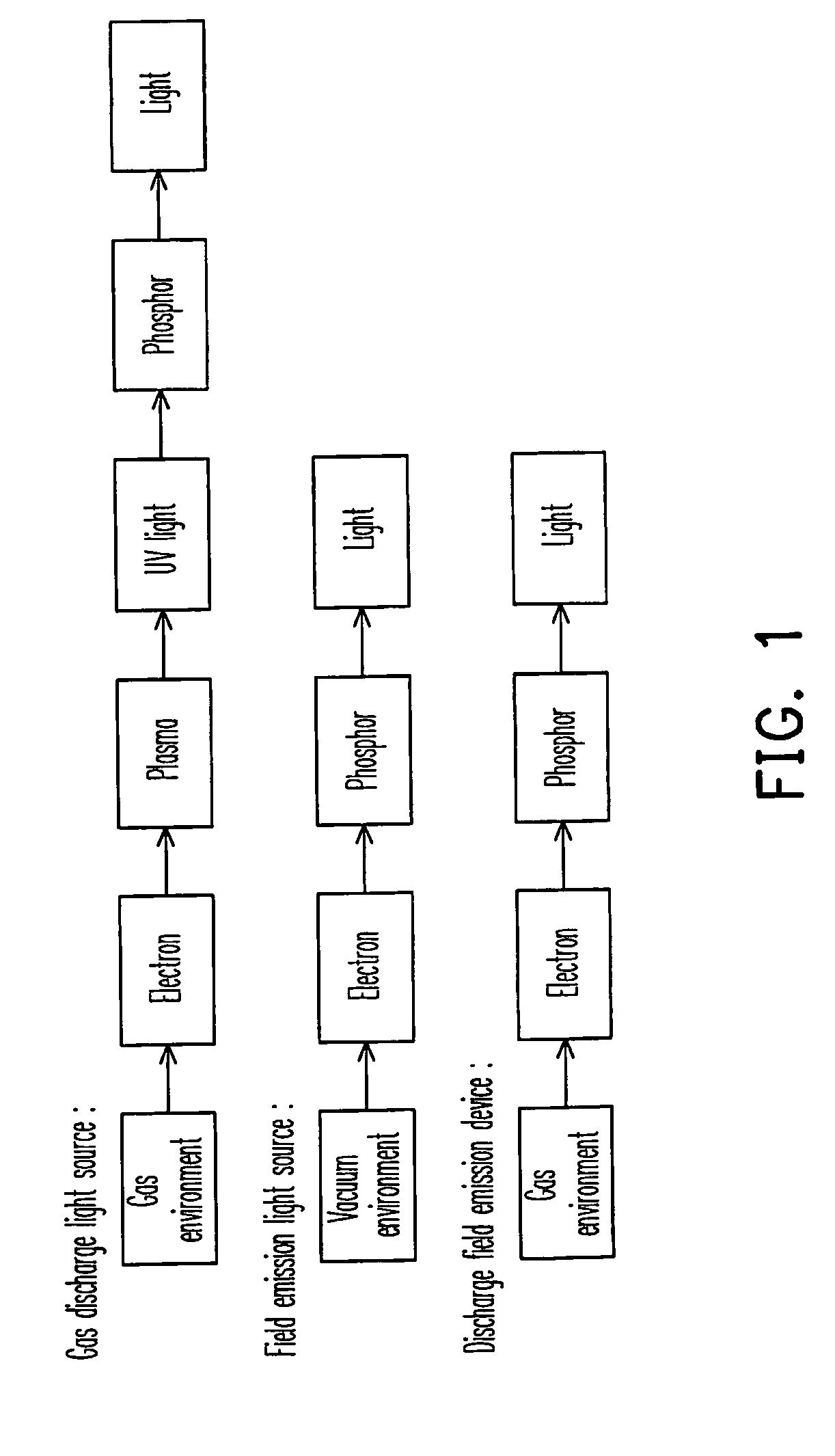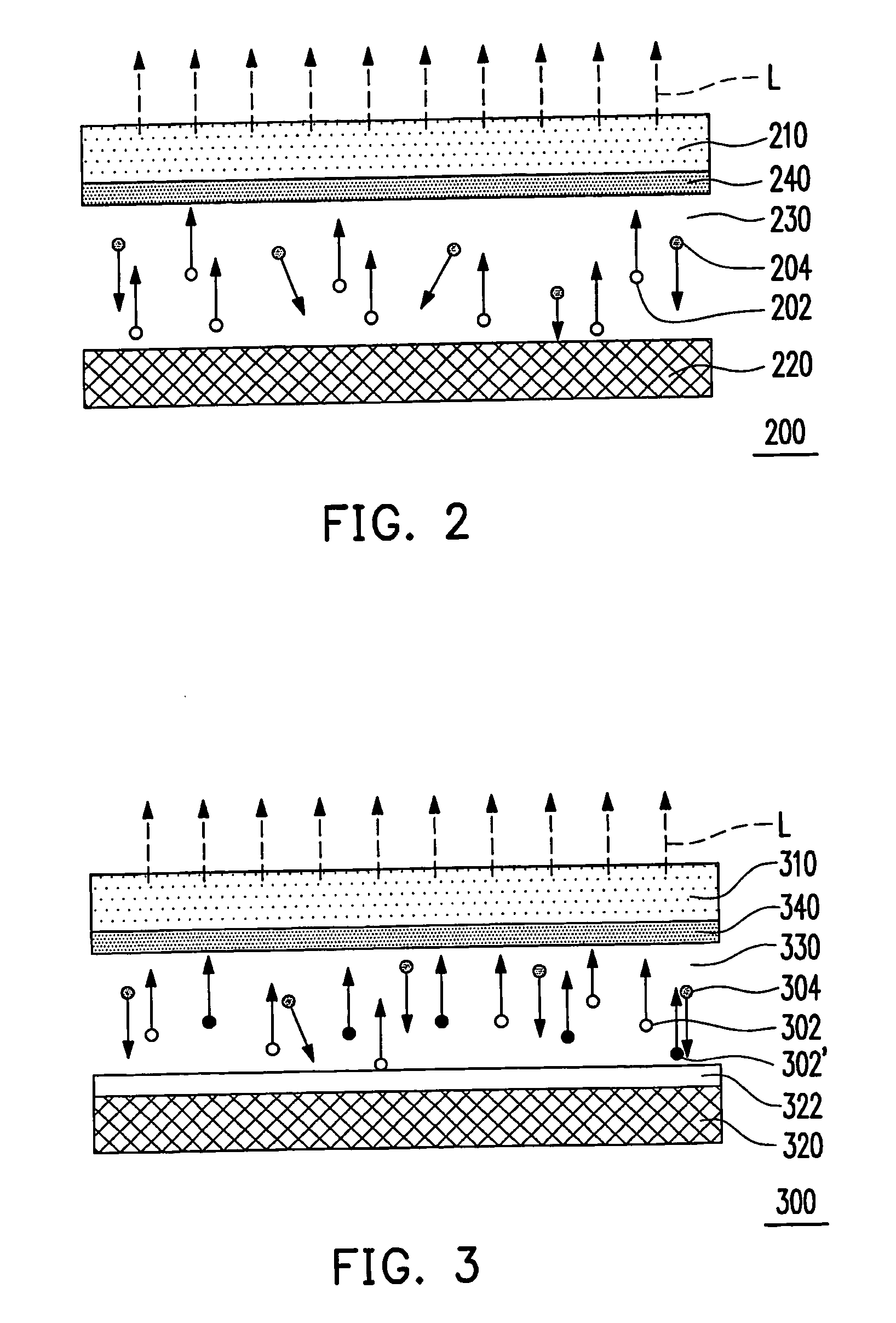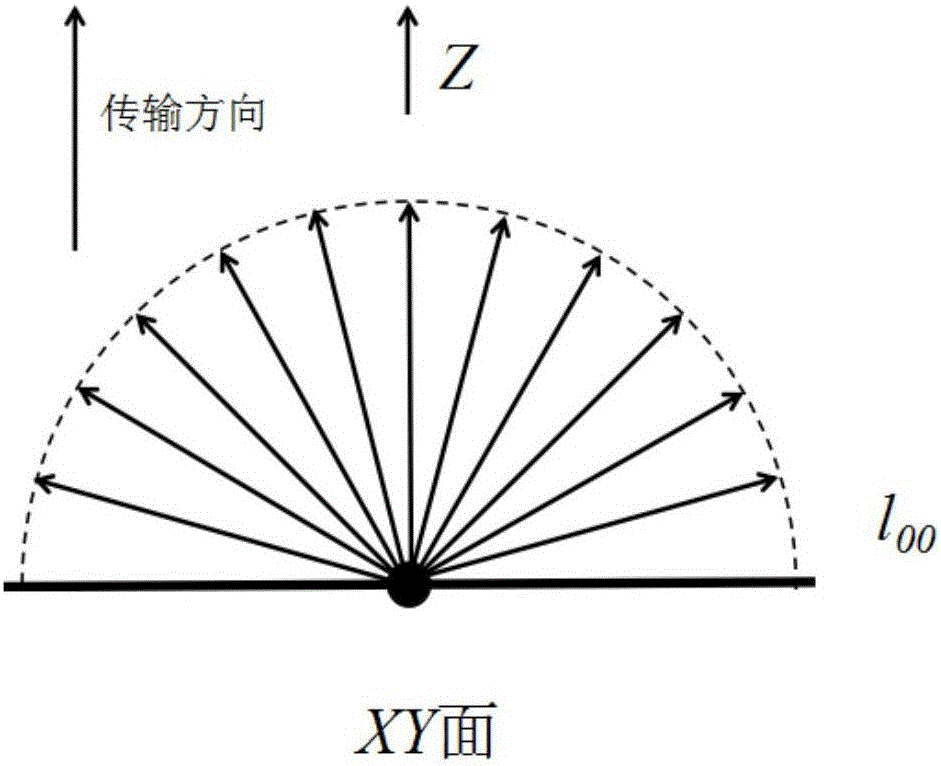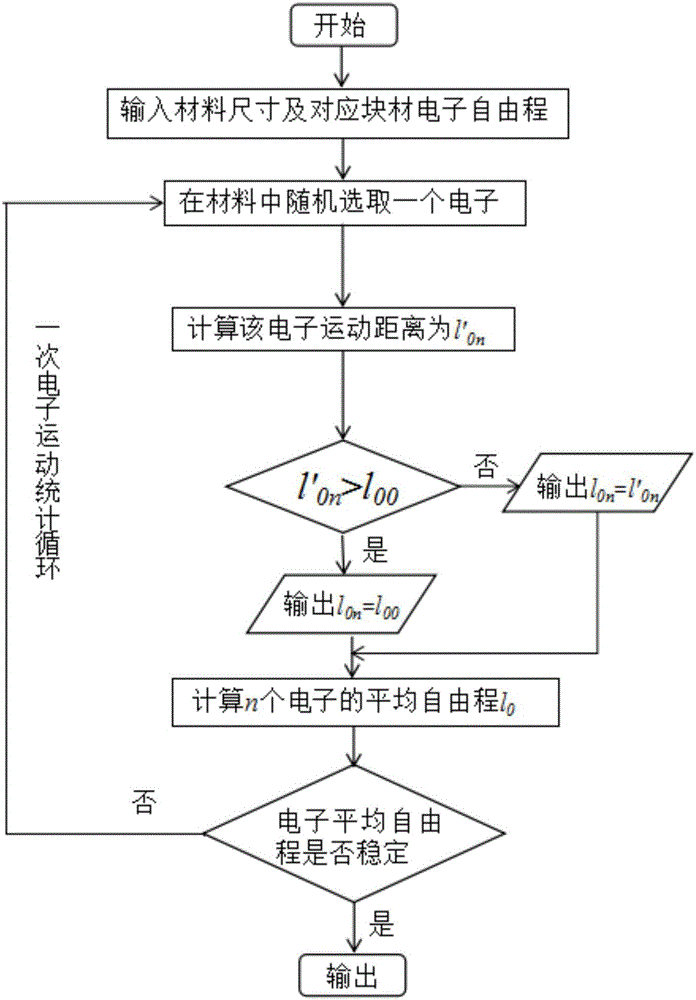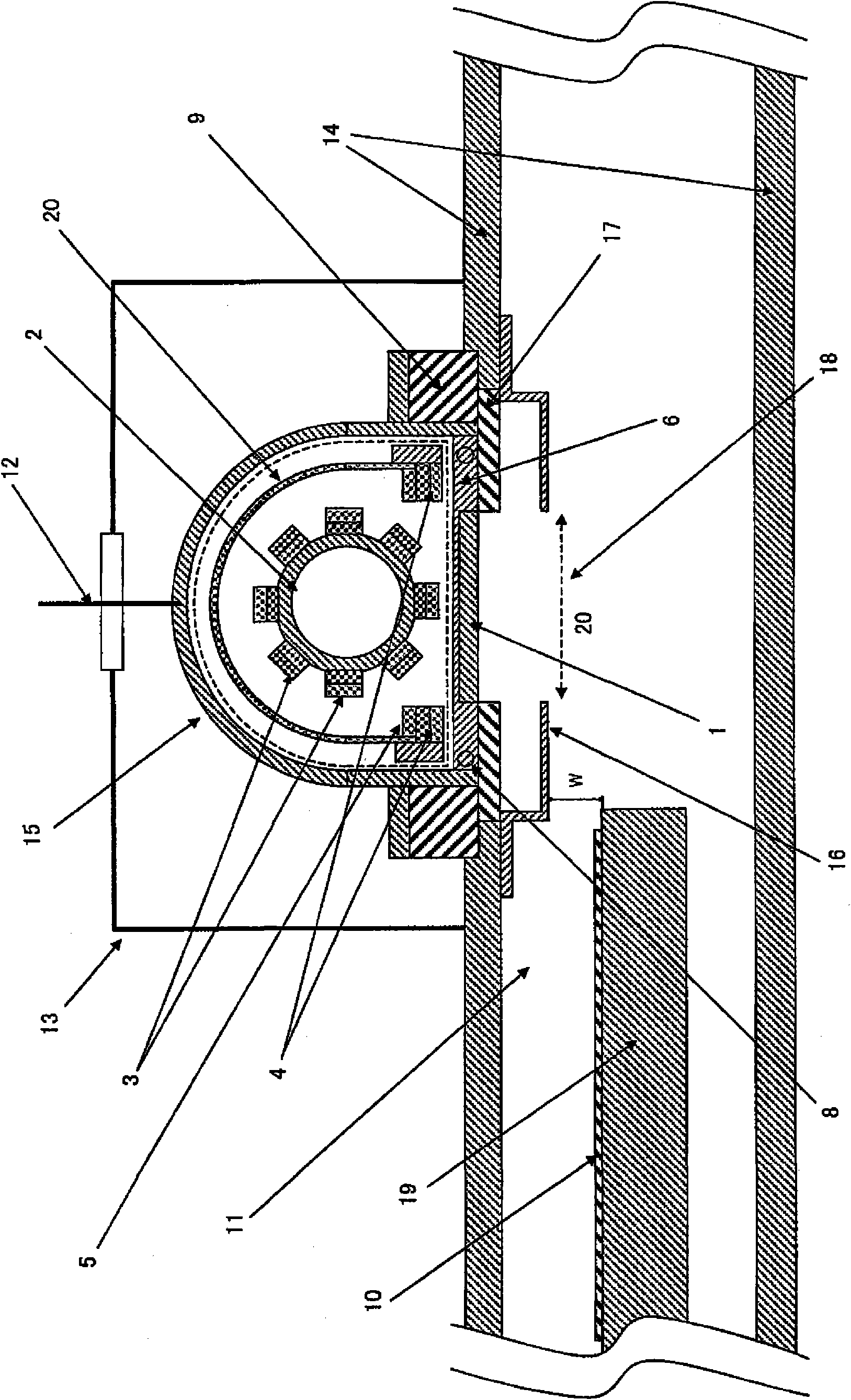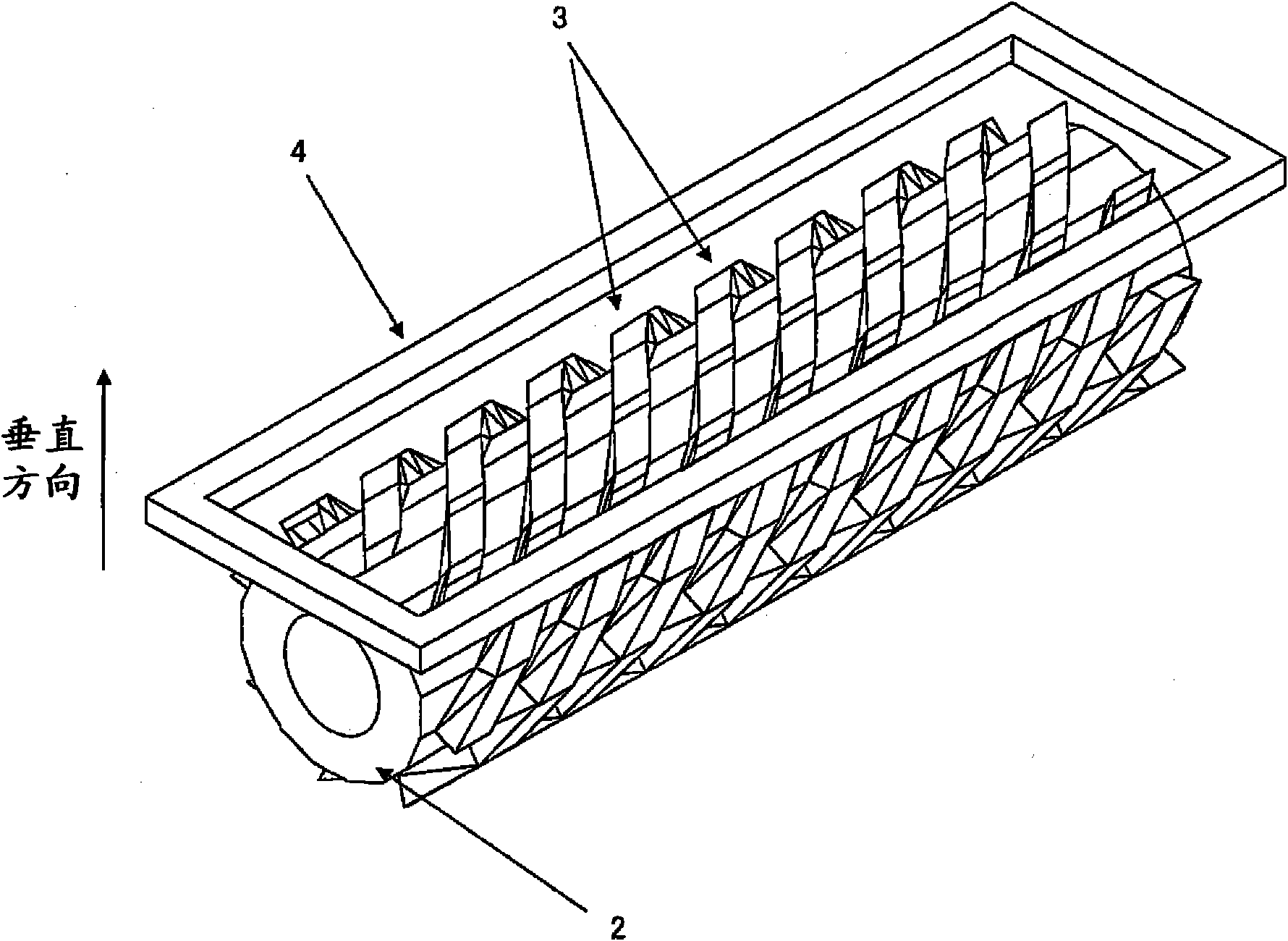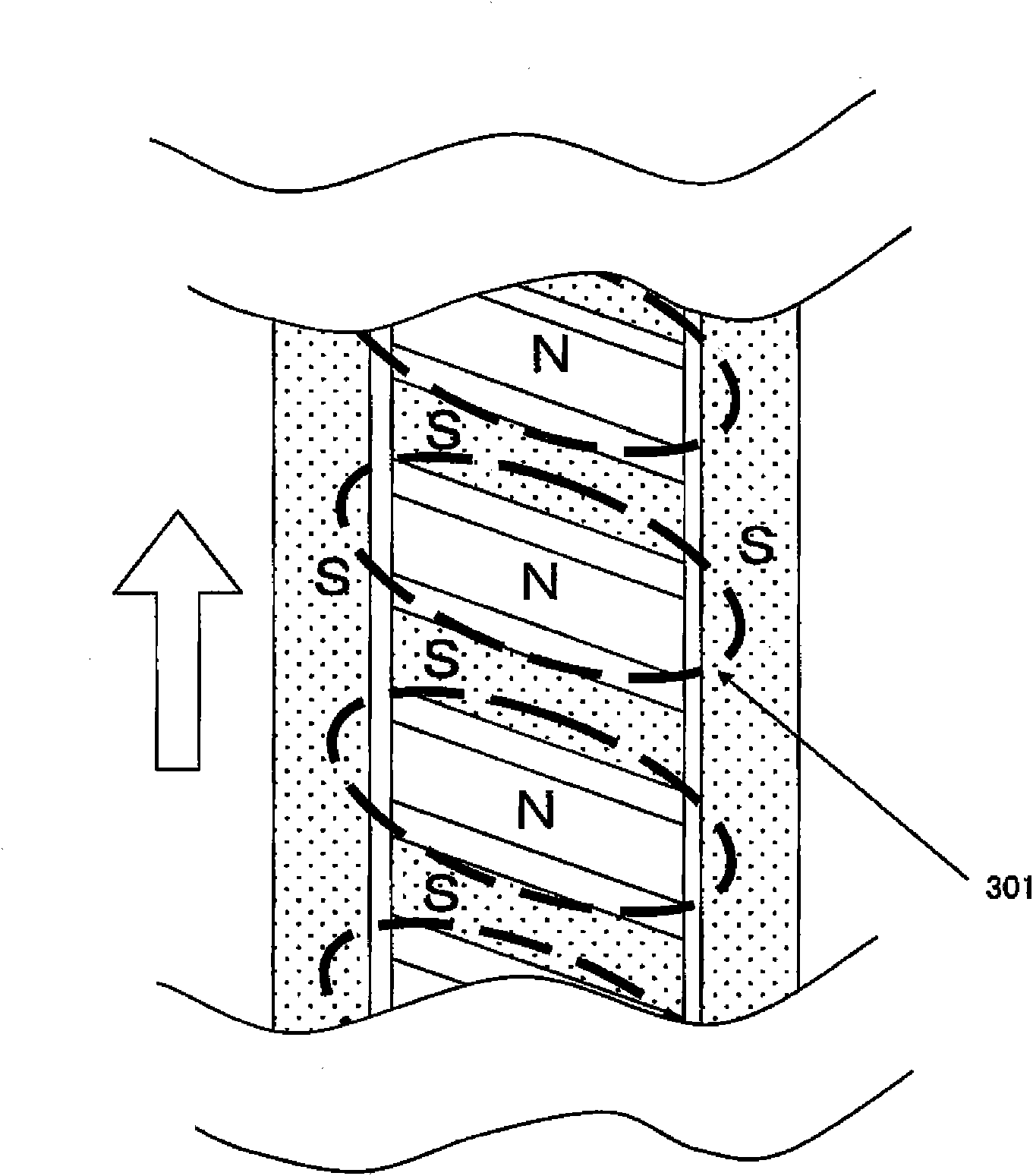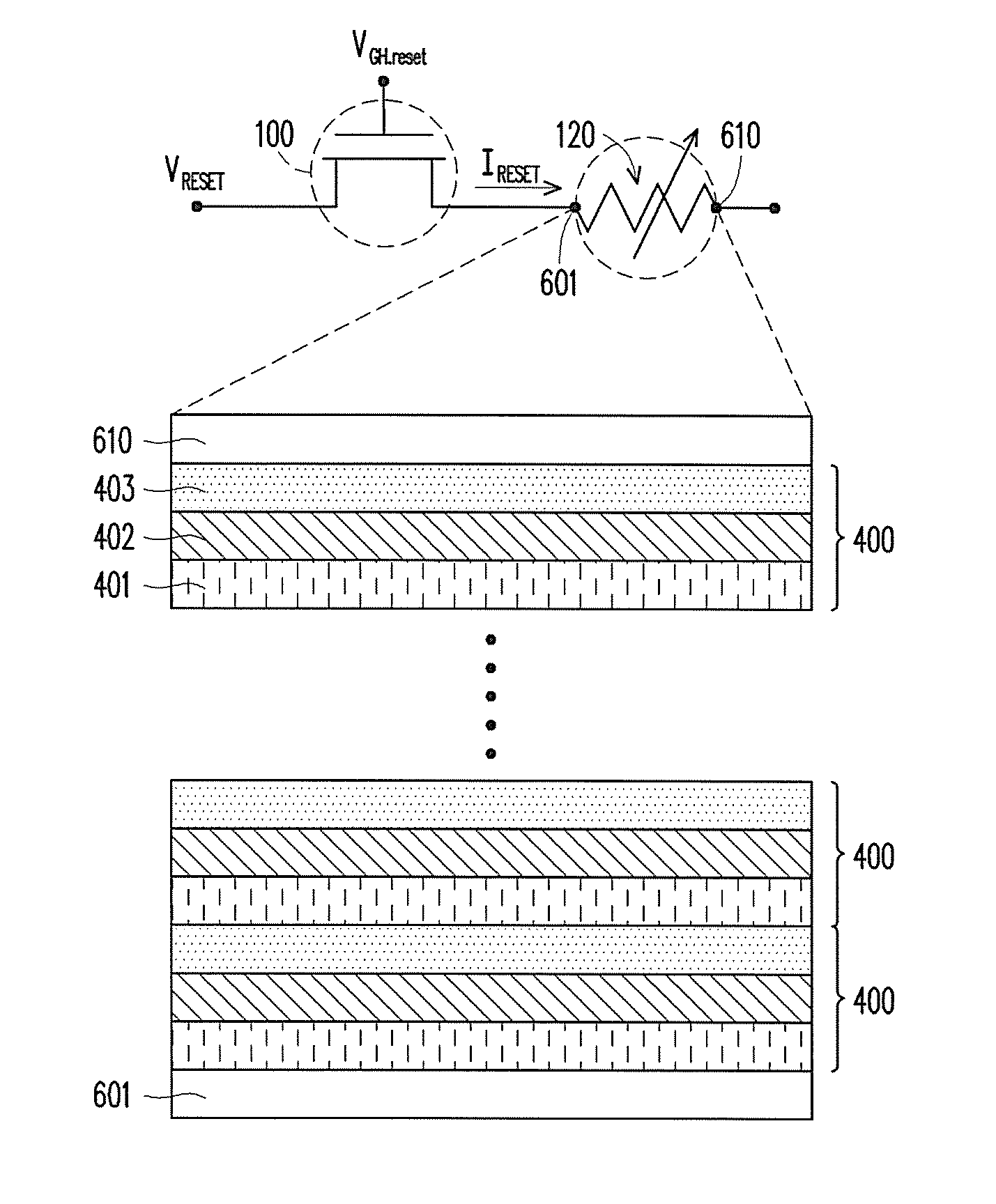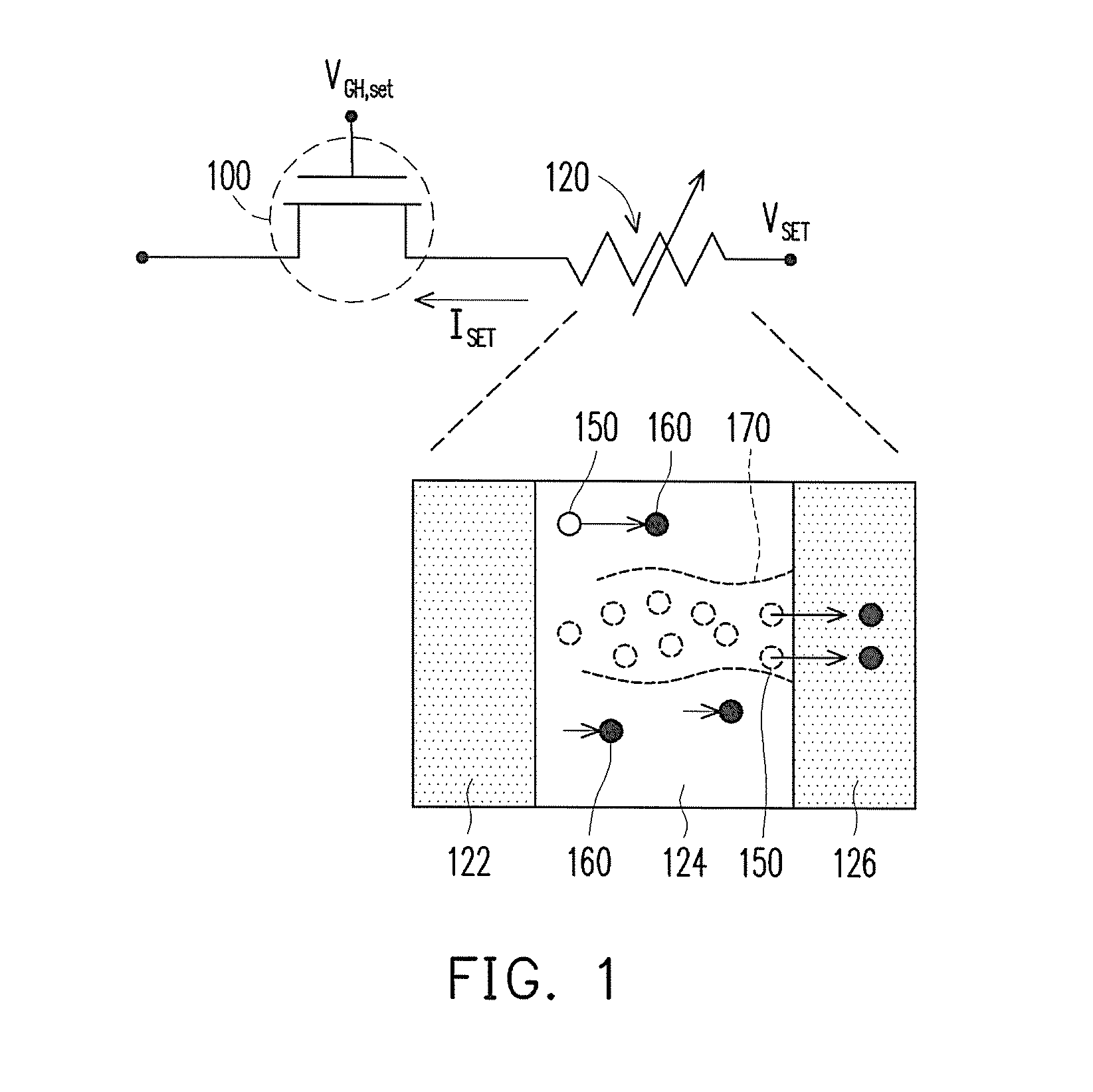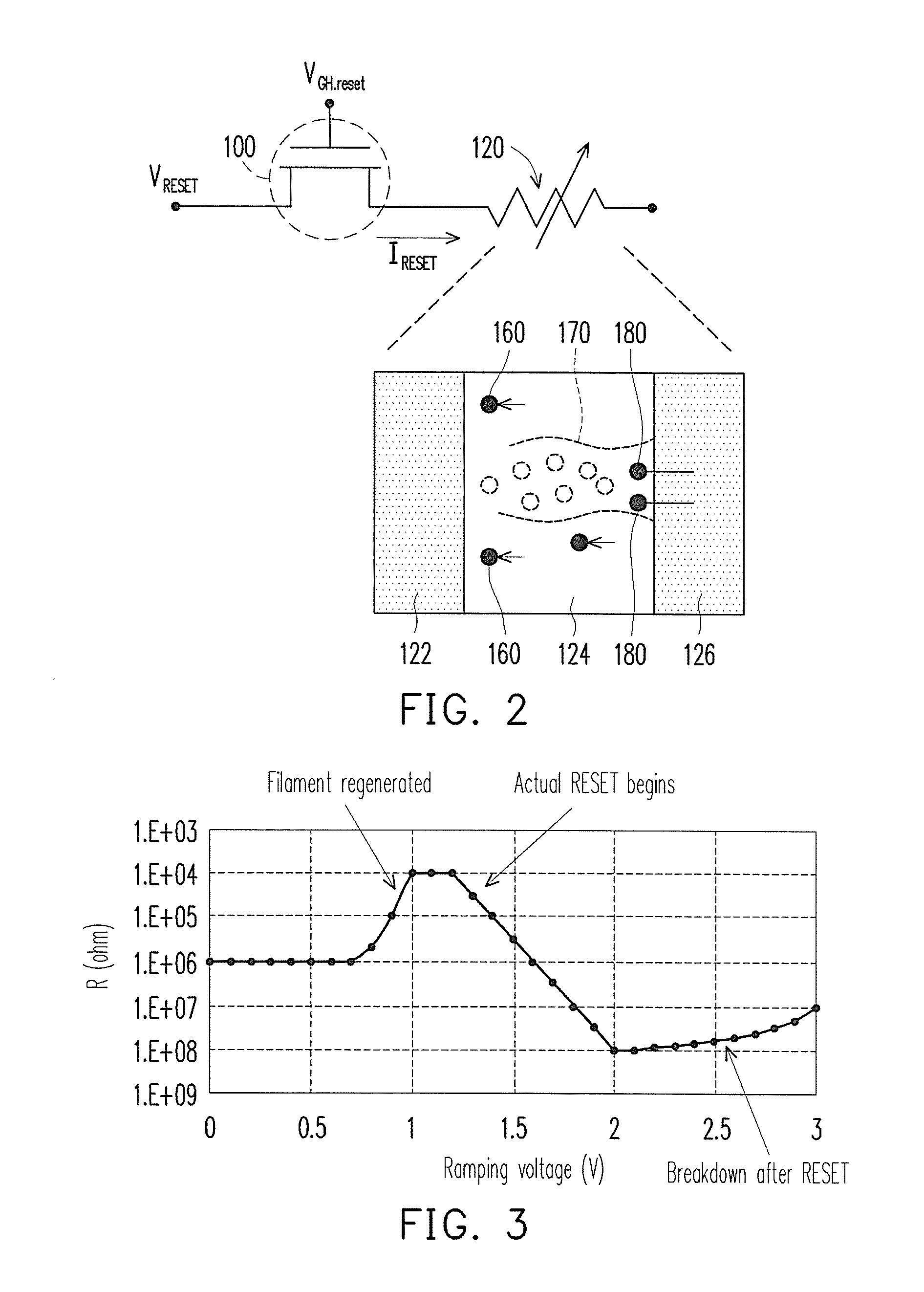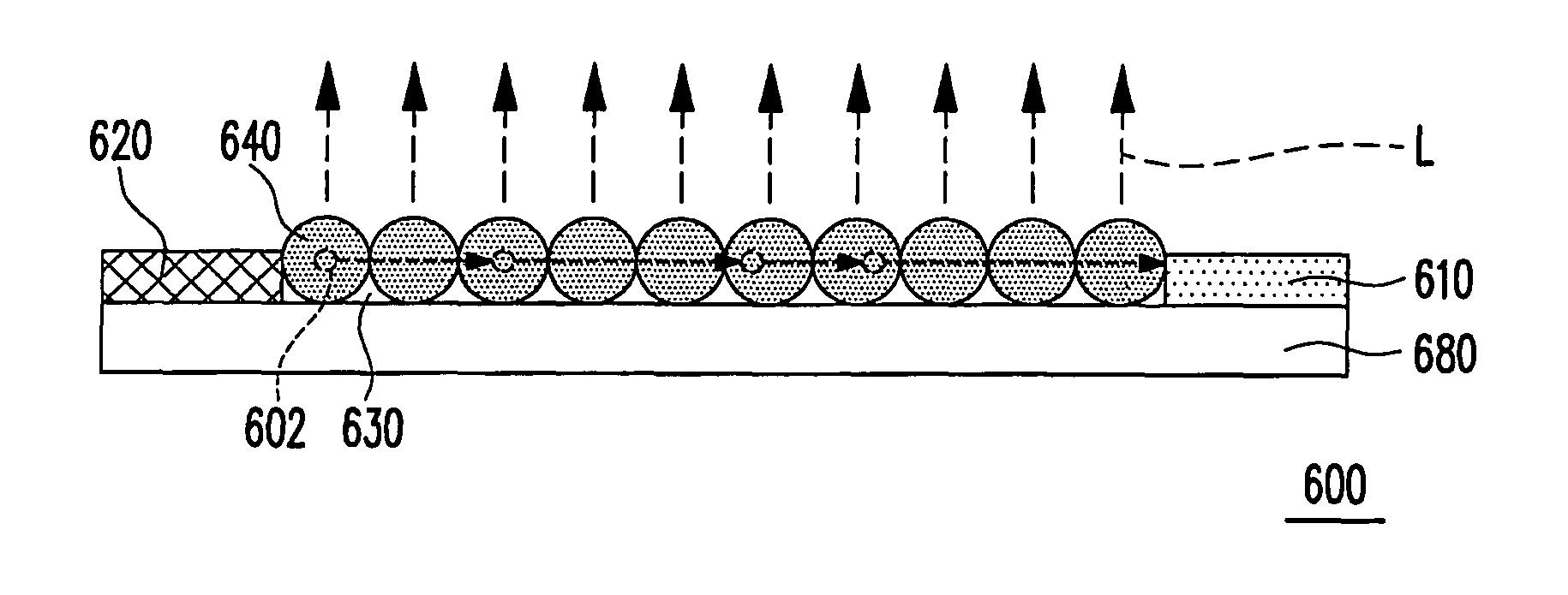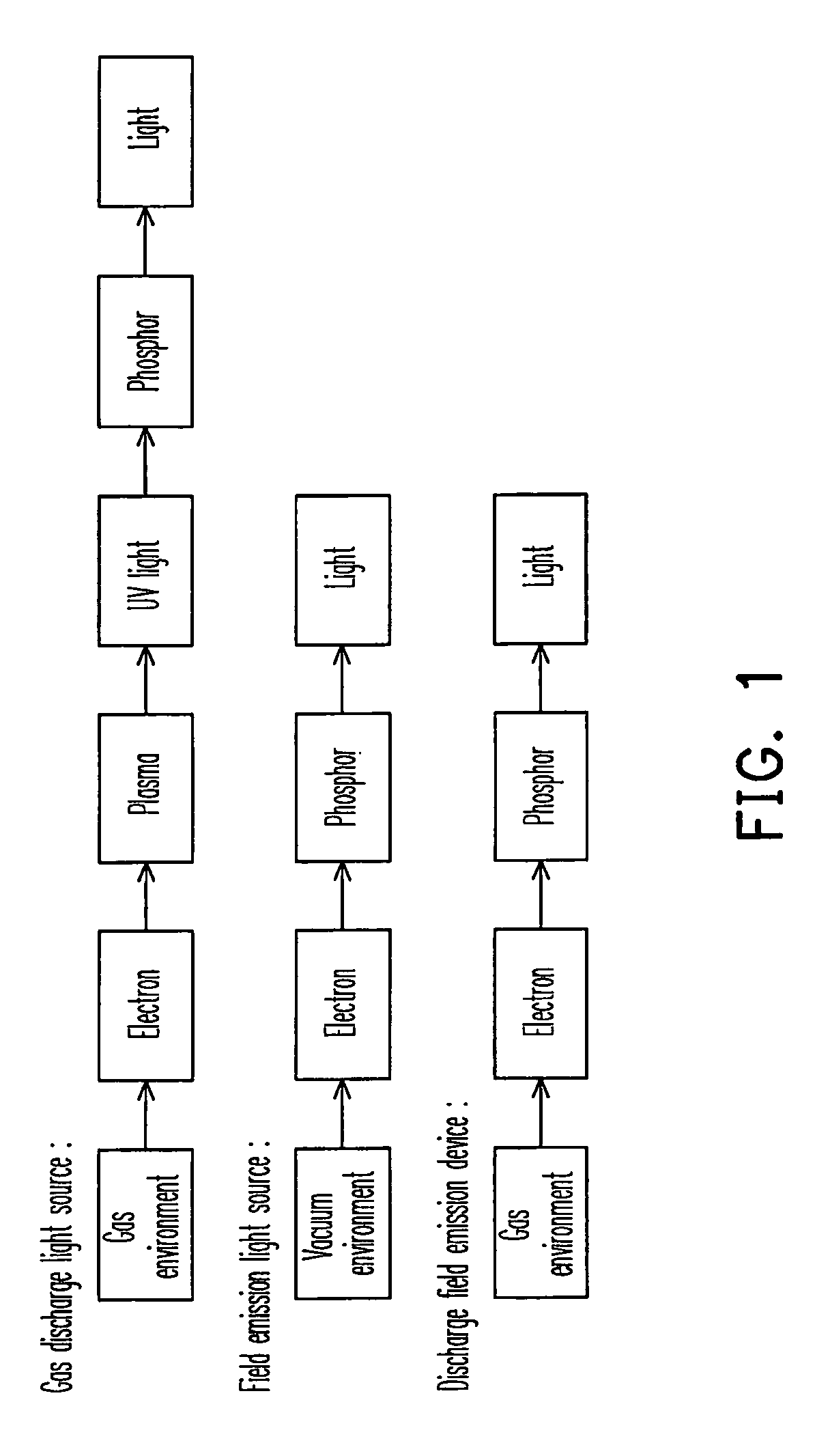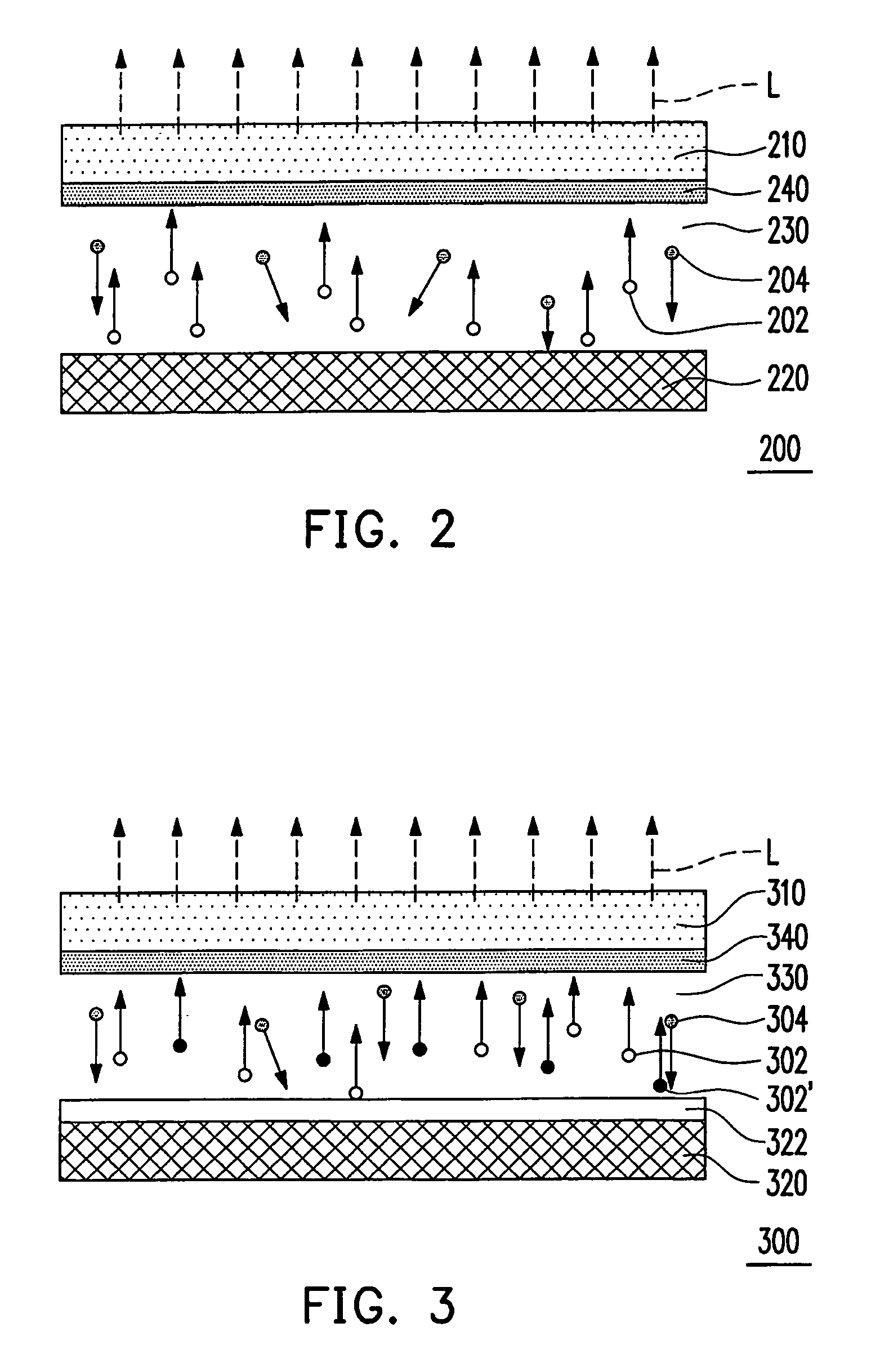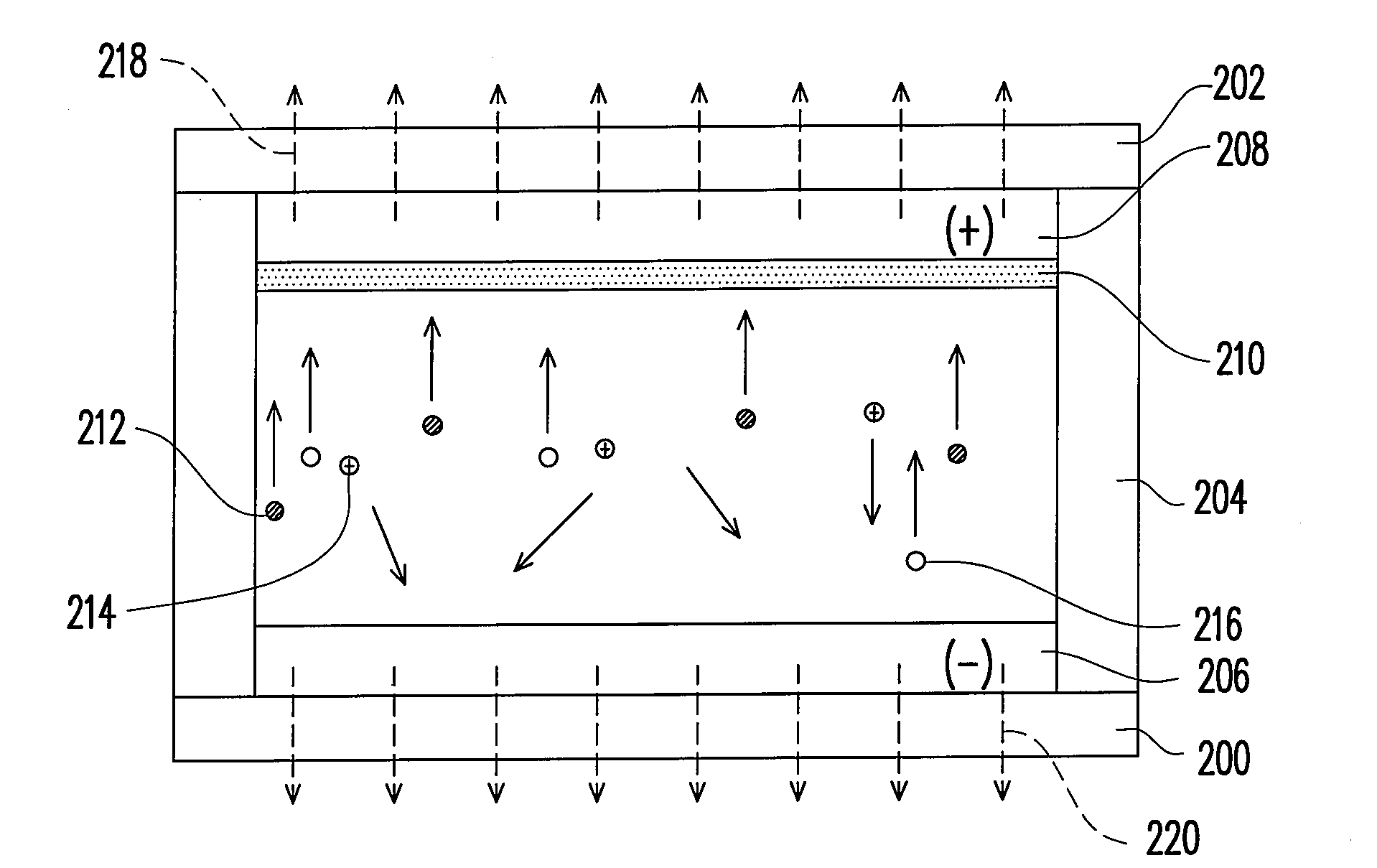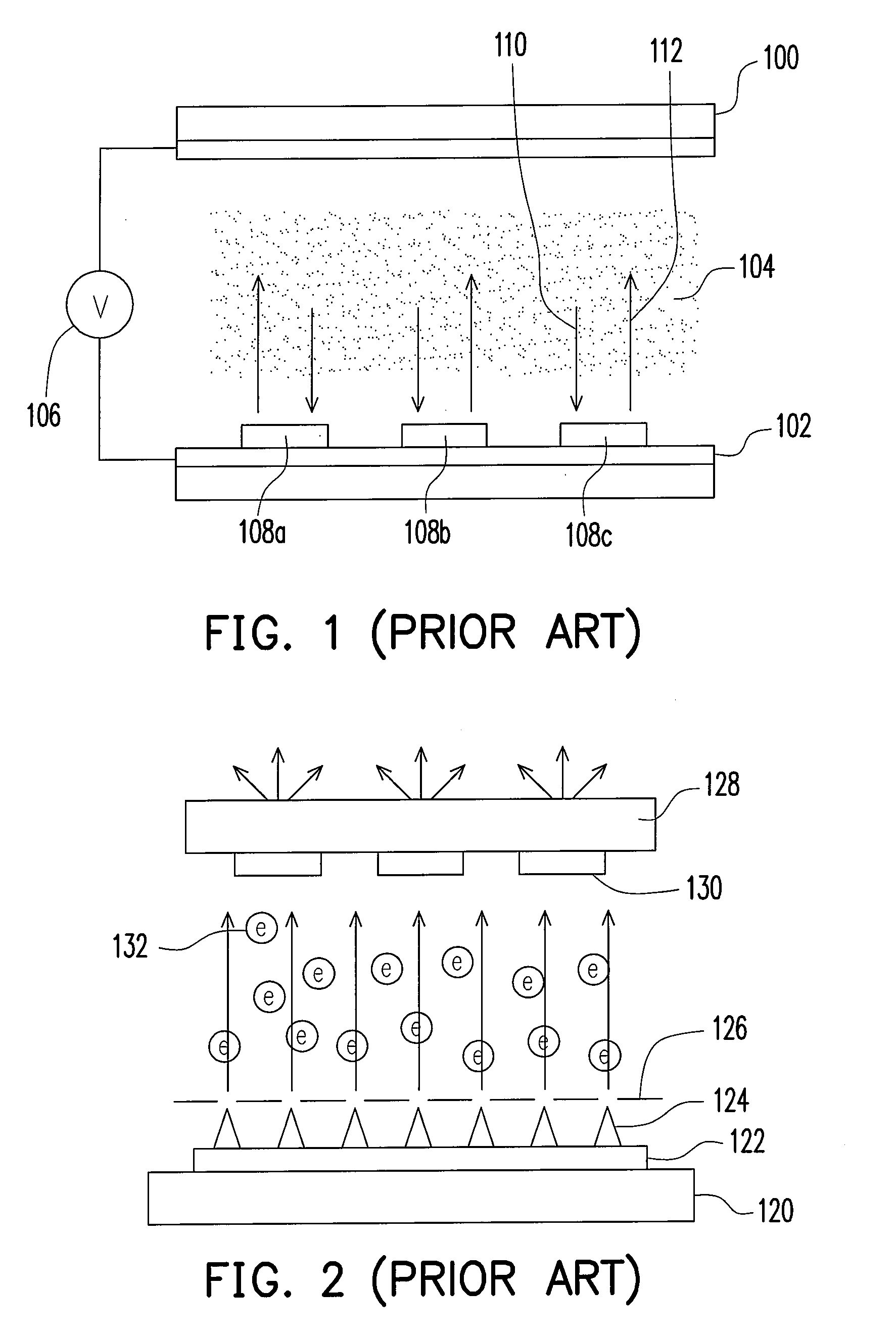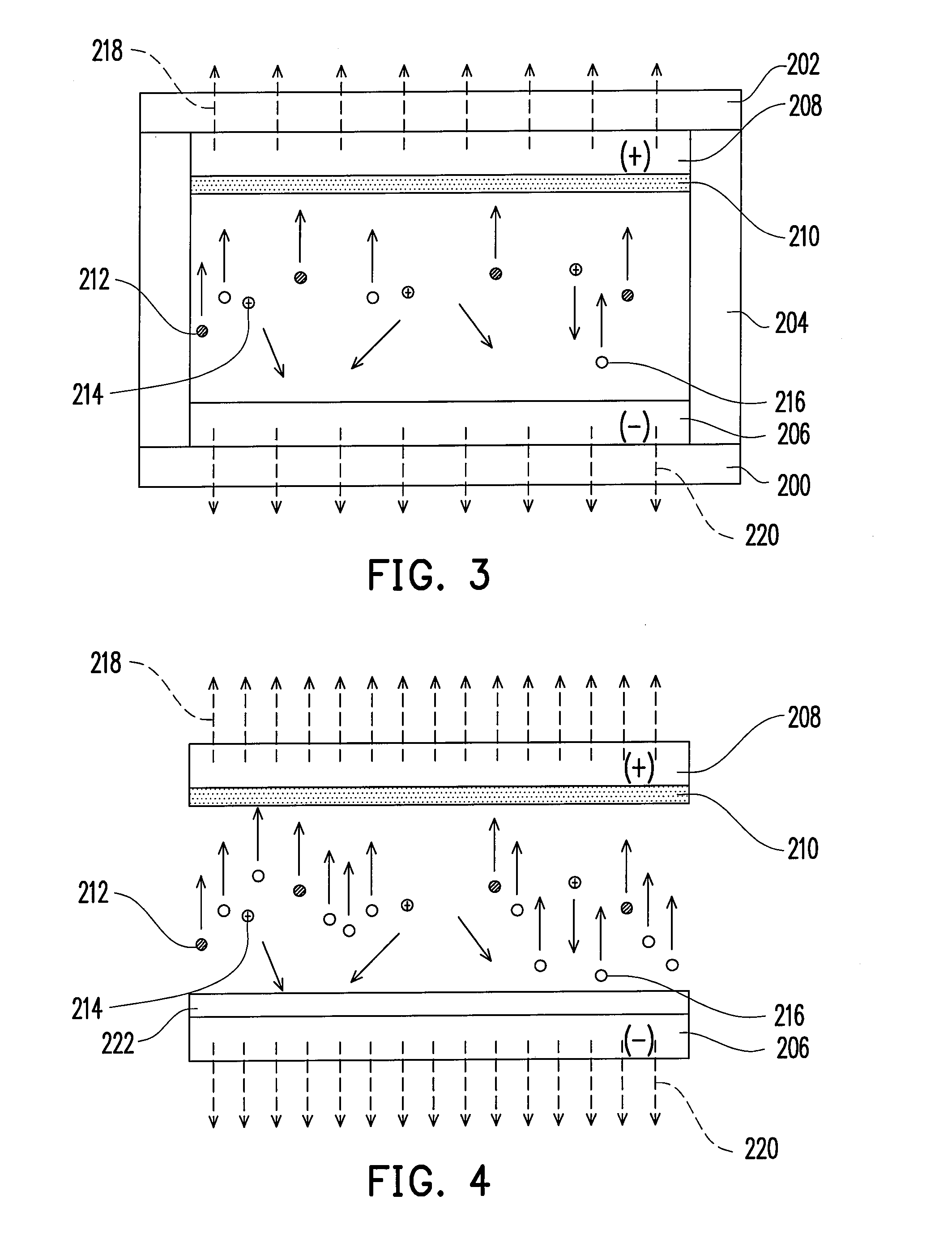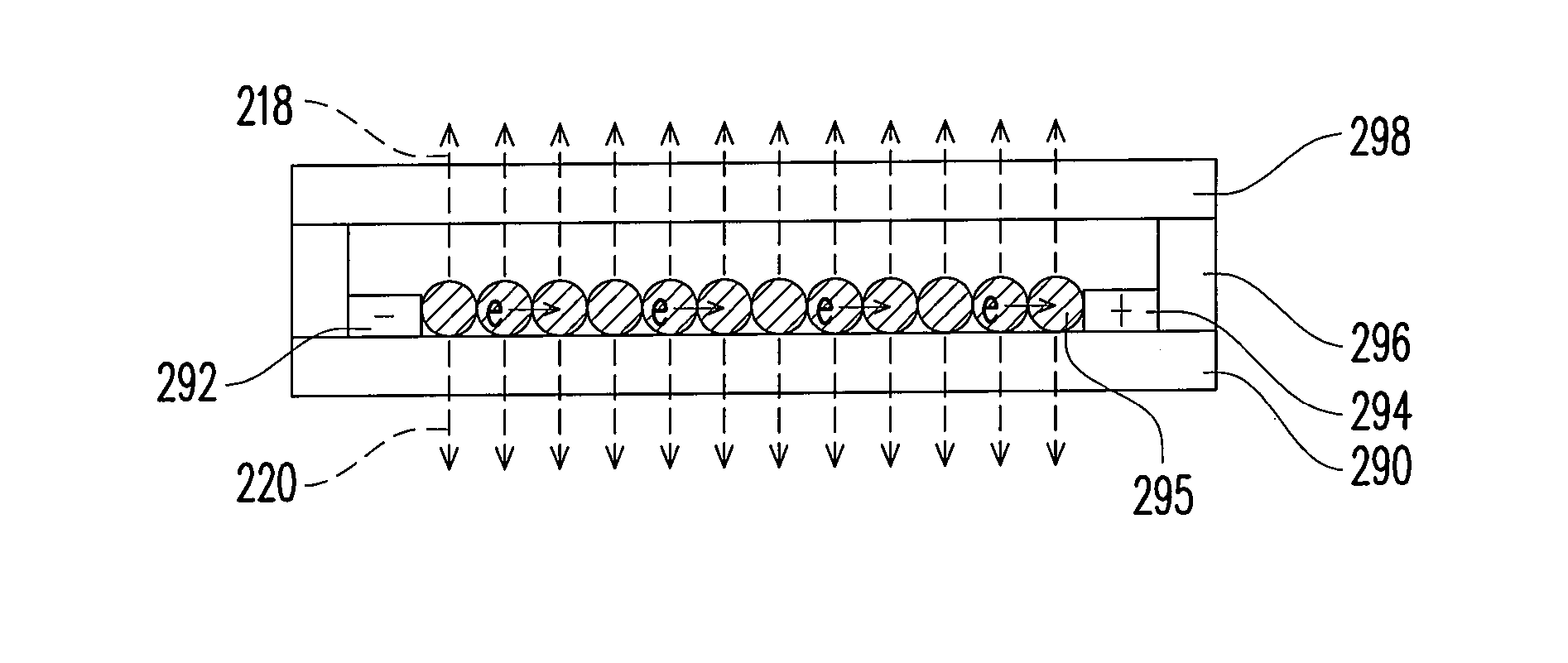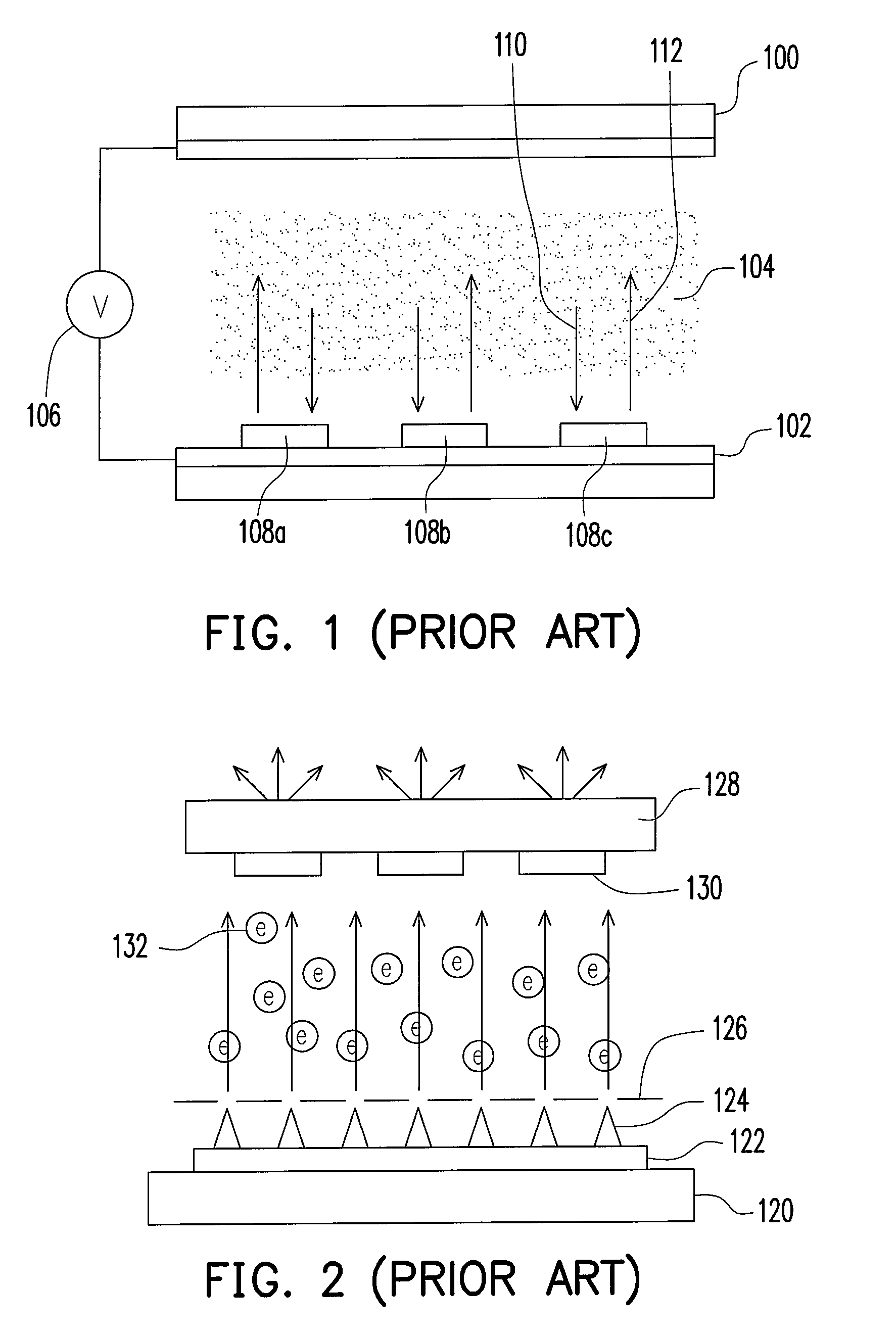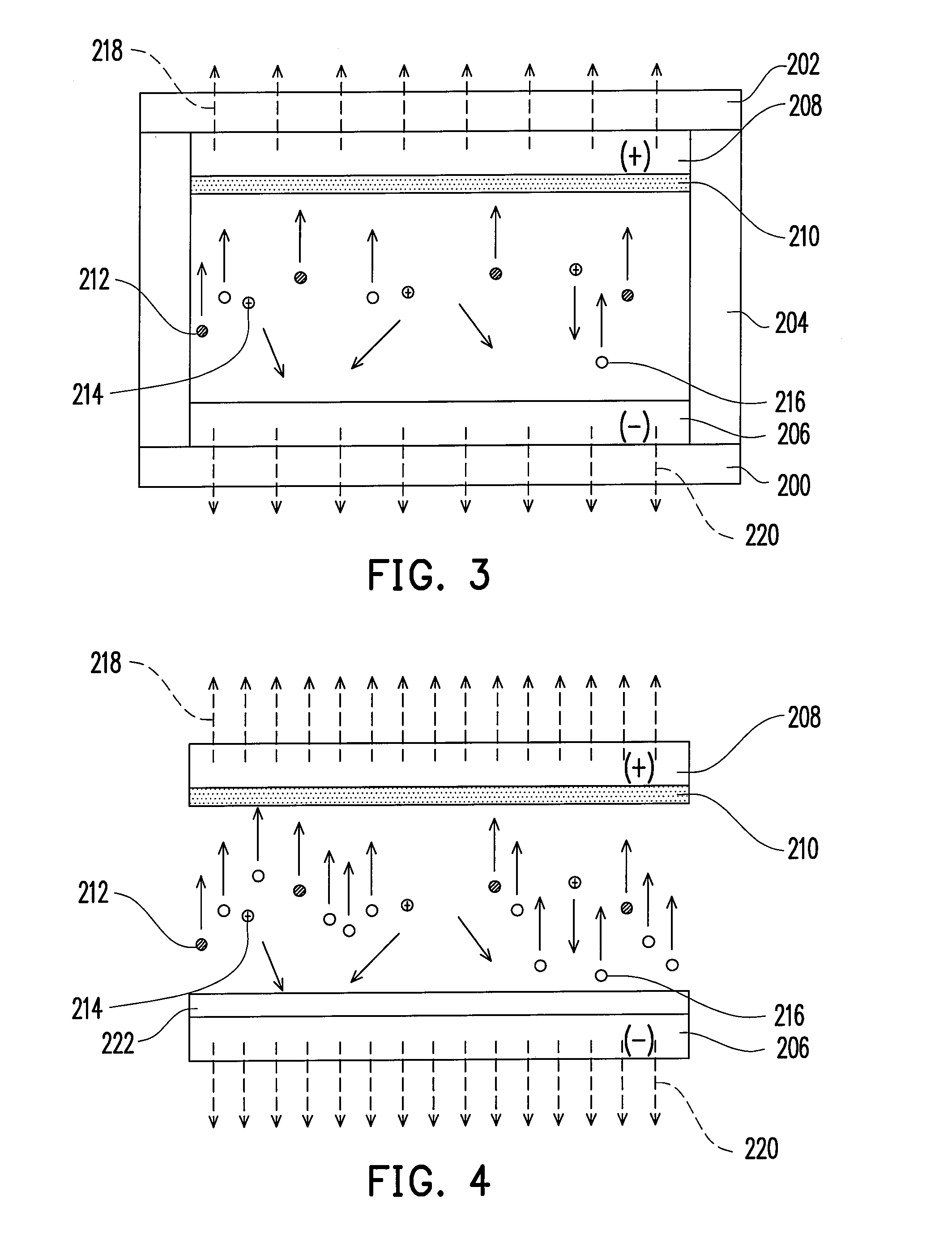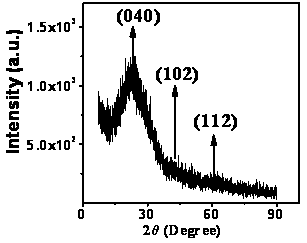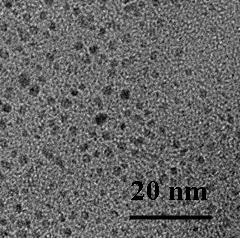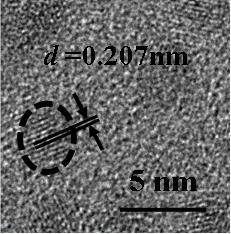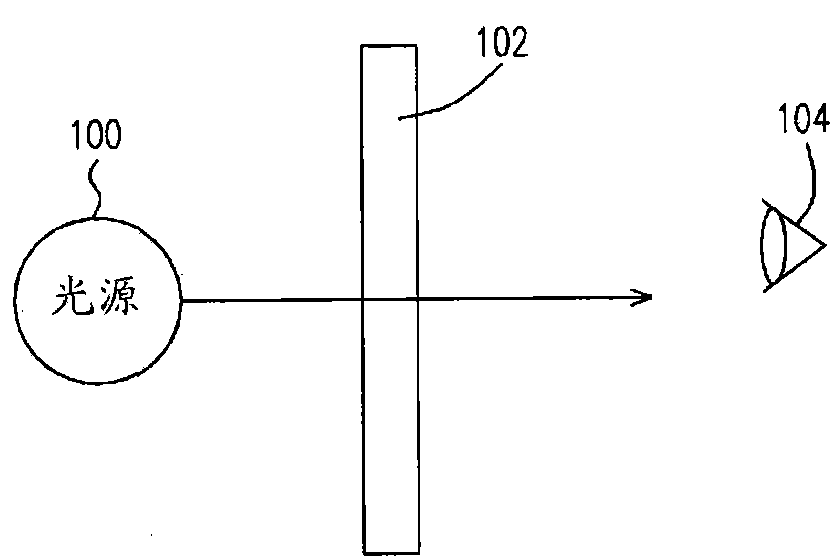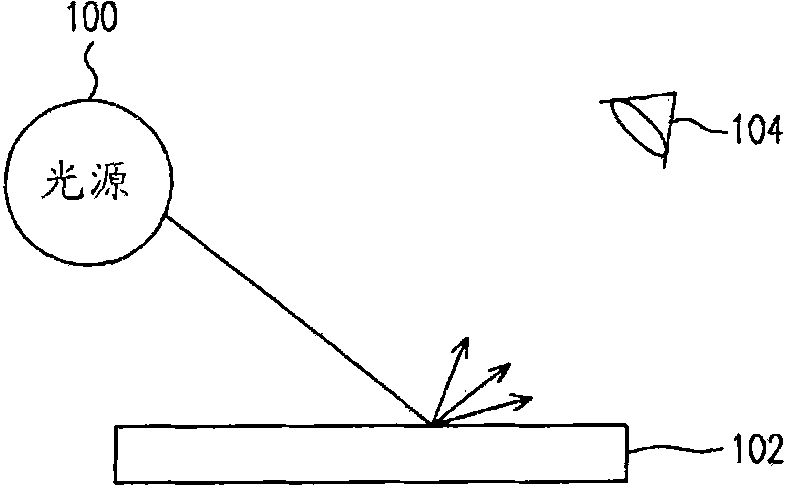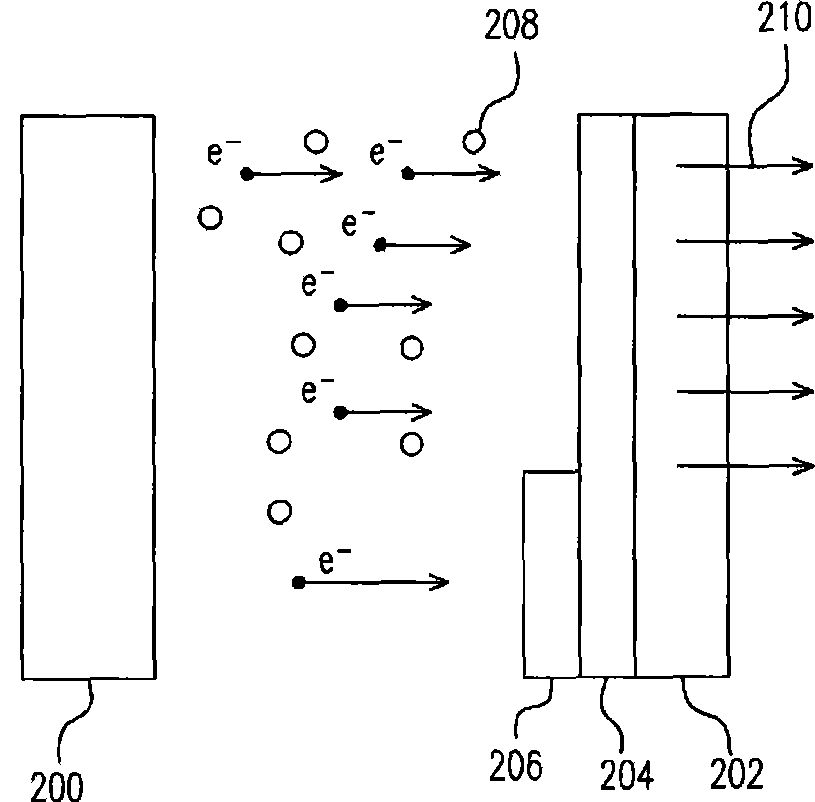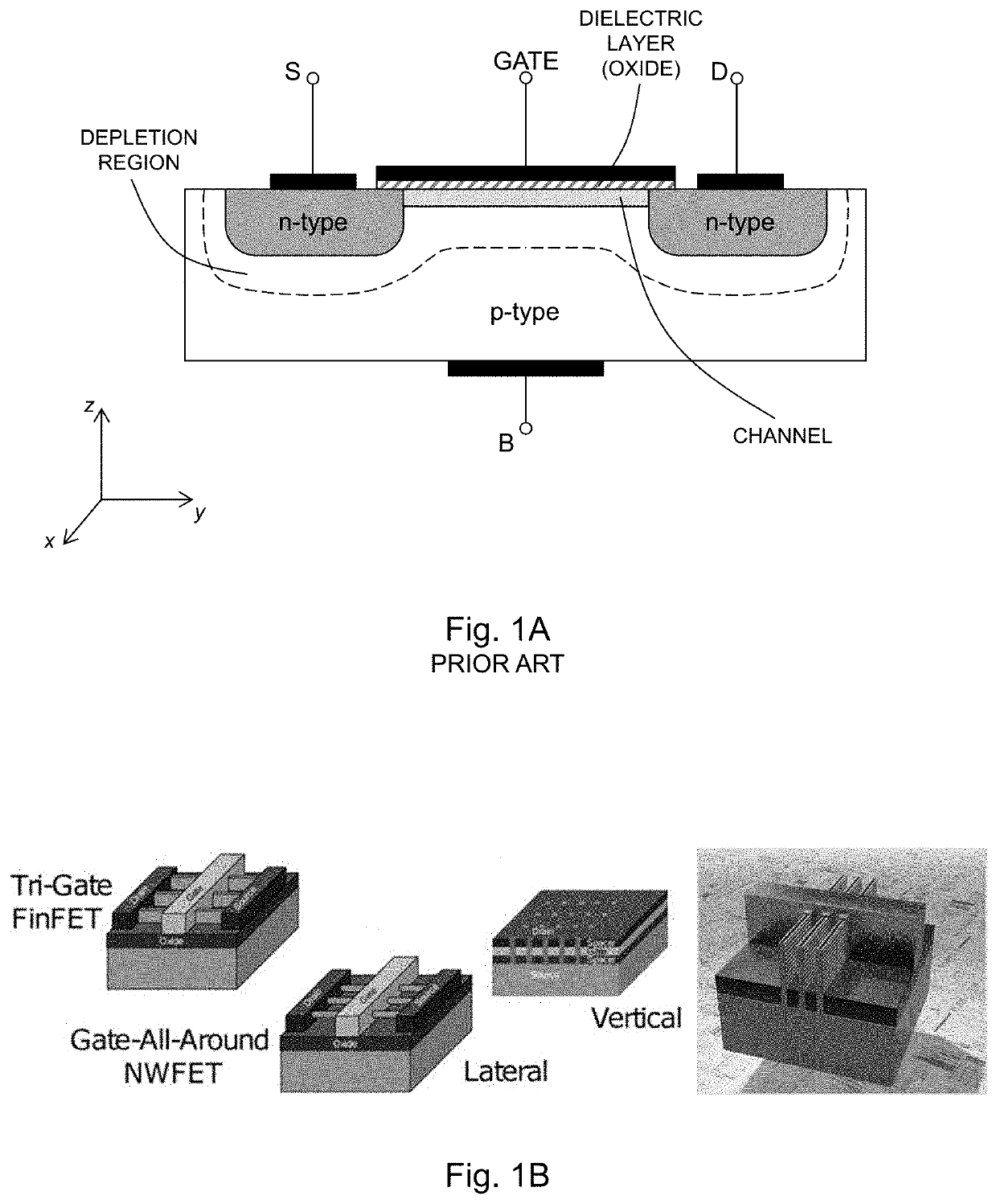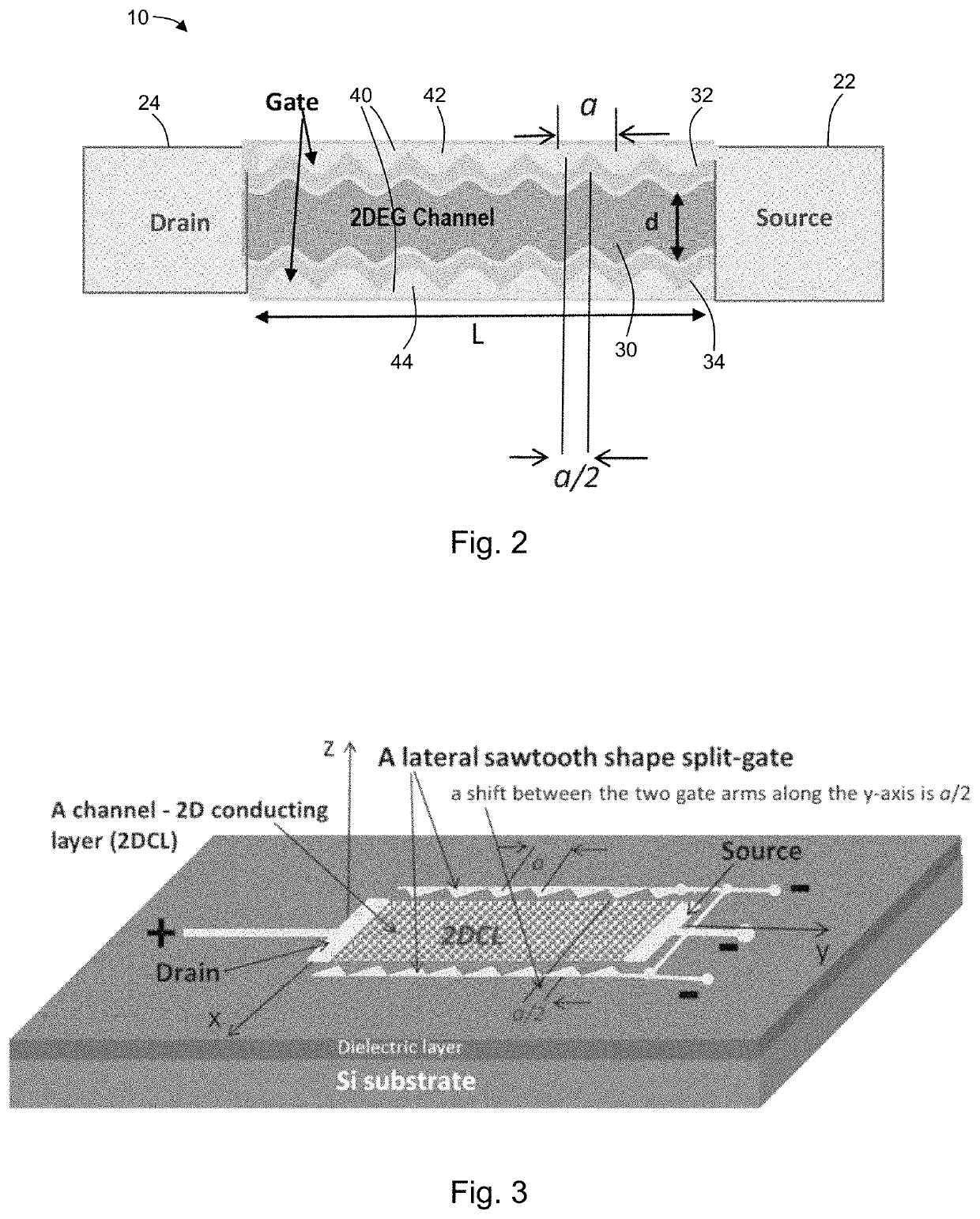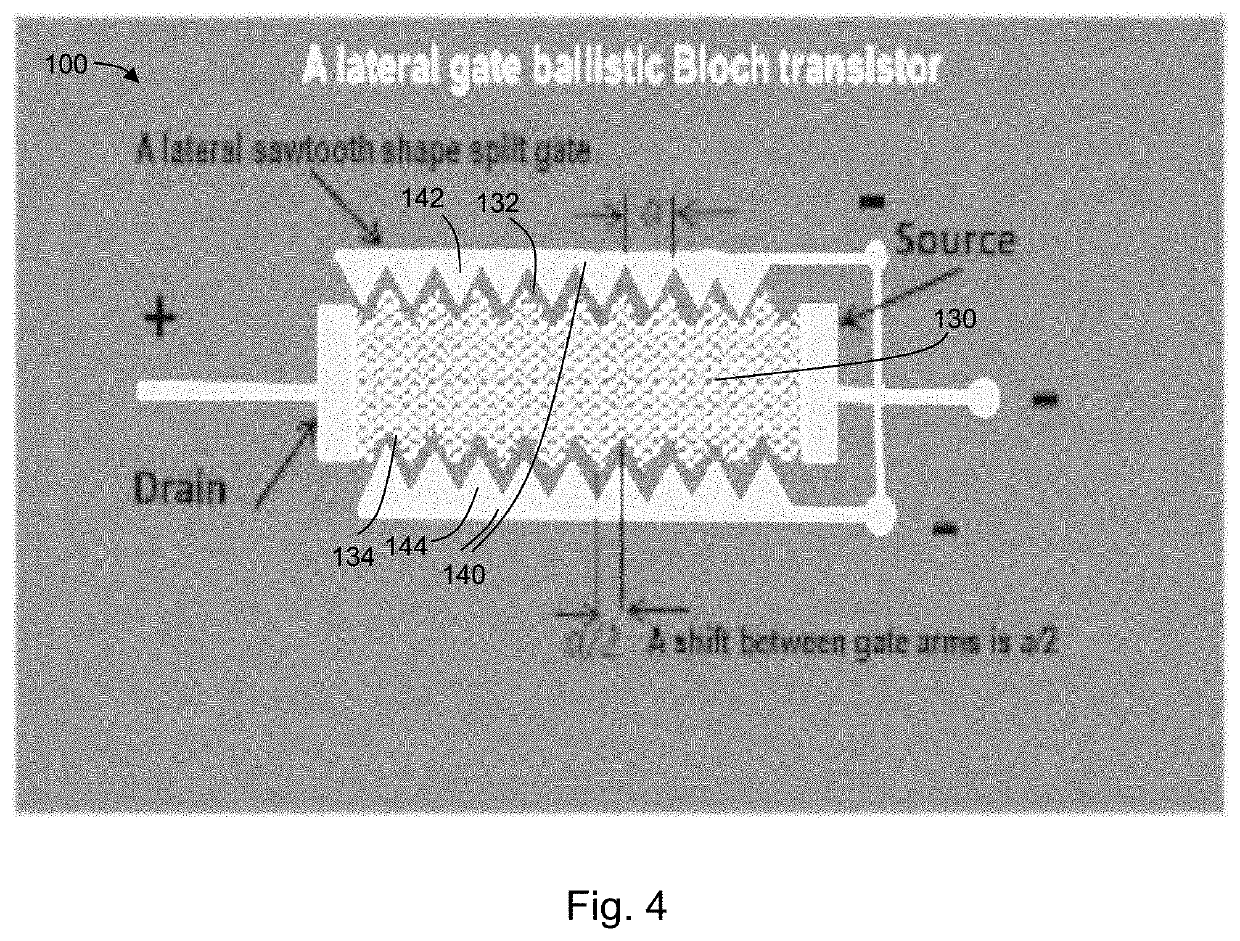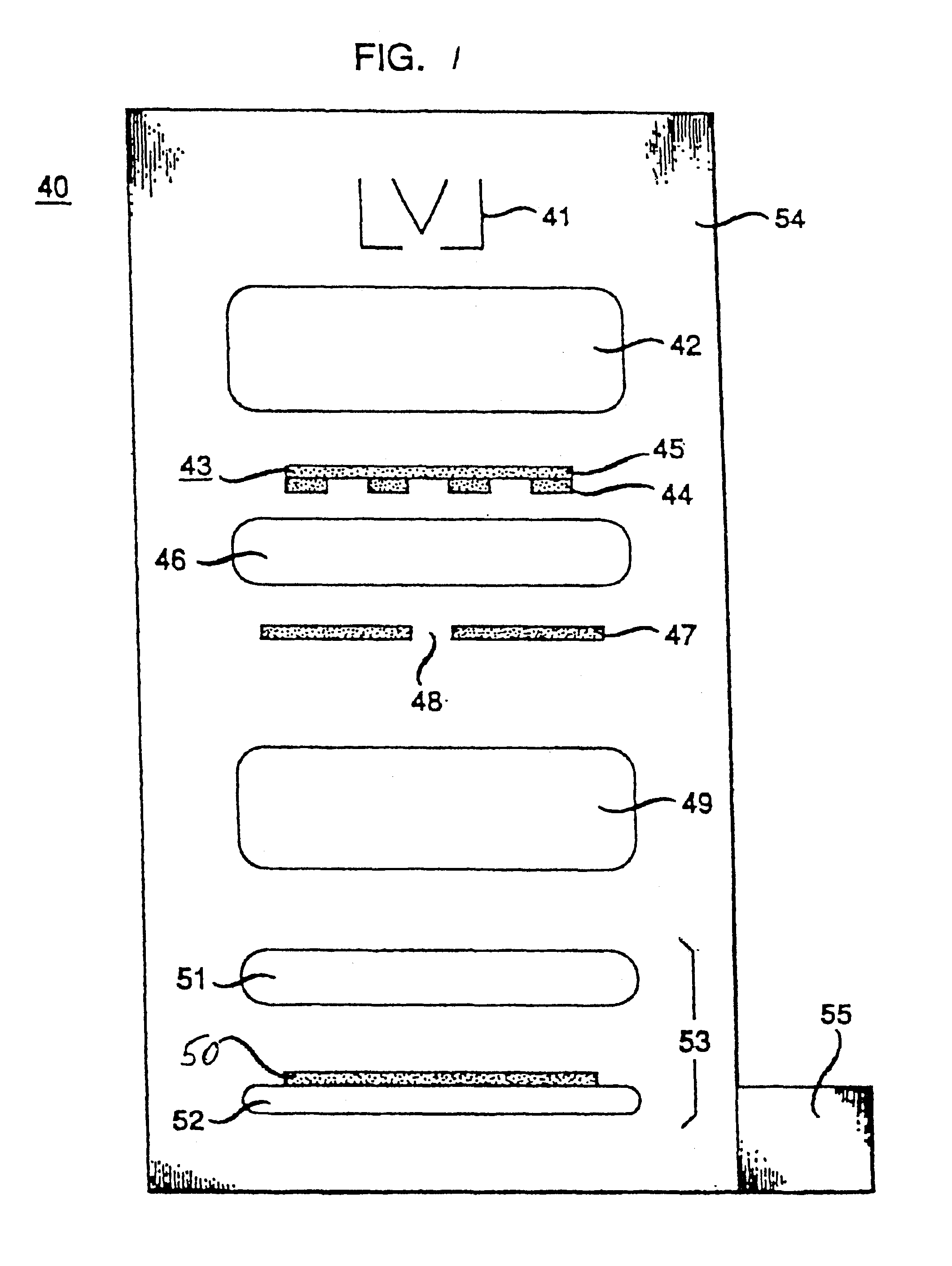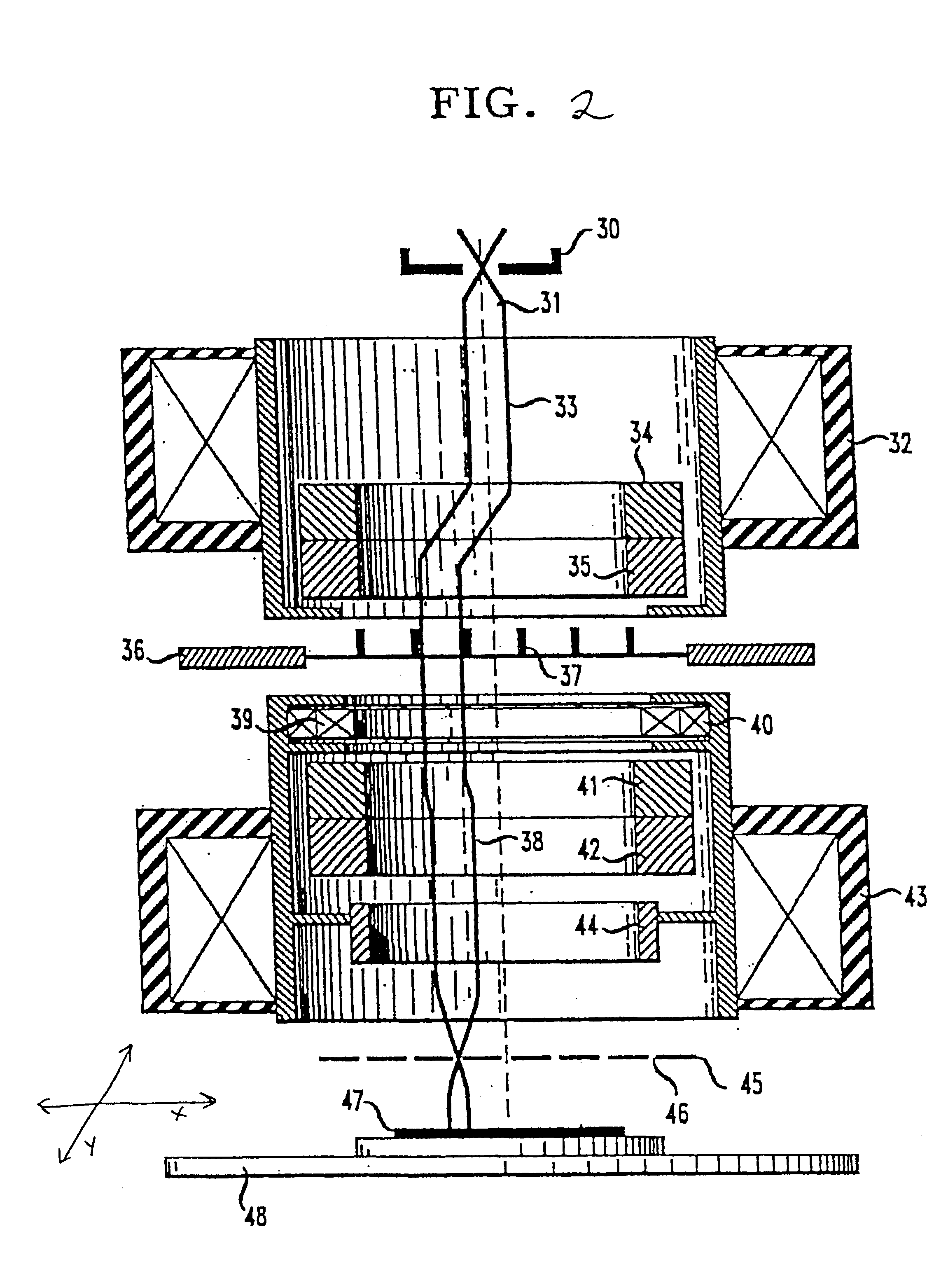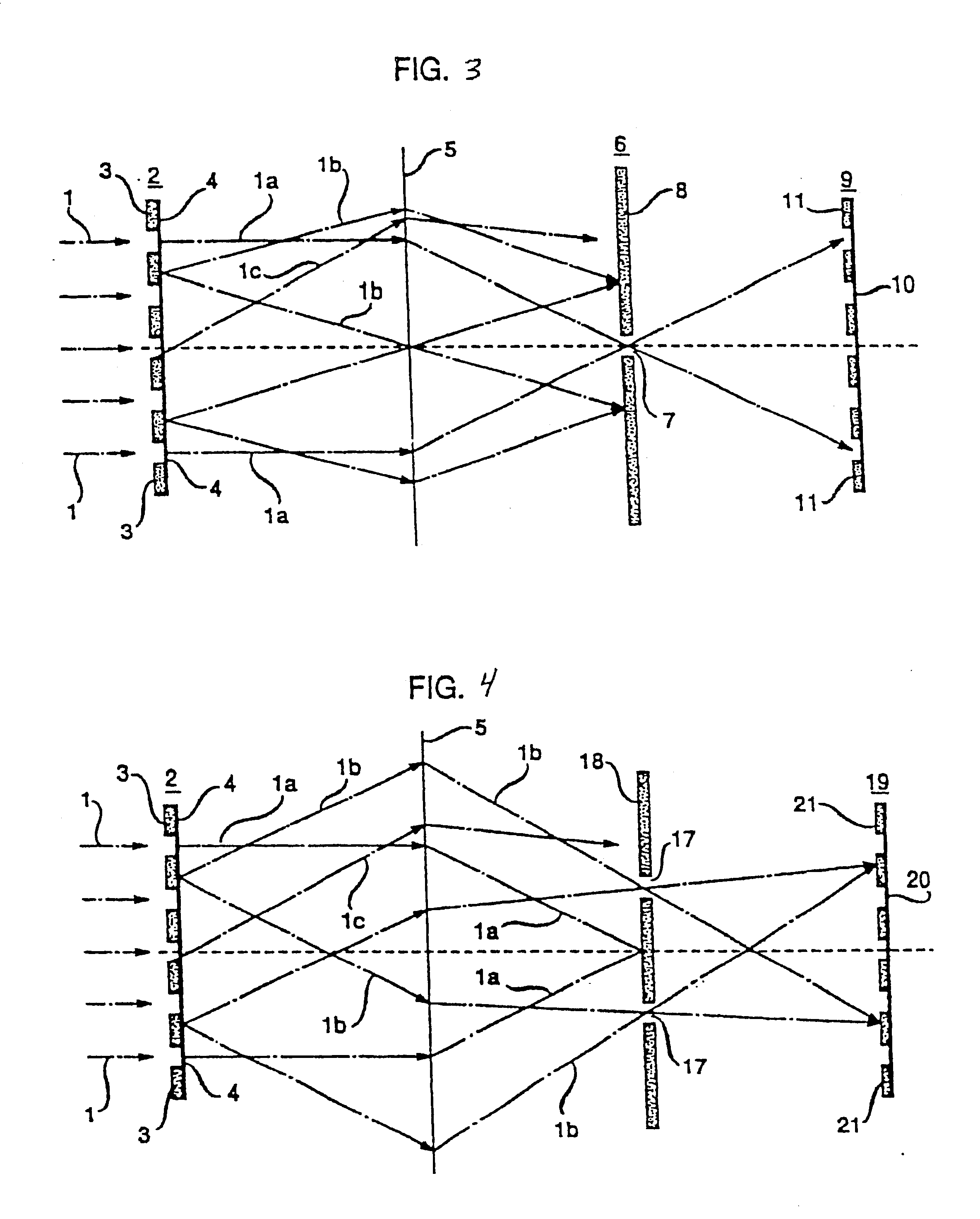Patents
Literature
31 results about "Electron mean free path" patented technology
Efficacy Topic
Property
Owner
Technical Advancement
Application Domain
Technology Topic
Technology Field Word
Patent Country/Region
Patent Type
Patent Status
Application Year
Inventor
Nanoparticle comprising nanoshell of thickness less than the bulk electron mean free path of the shell material
InactiveUS7371457B2Increase polarizabilityGood optical performancePigmenting treatmentMaterial nanotechnologyParticulatesConductive materials
The present invention is for particulate compositions and methods for producing them that can absorb or scatter electromagnetic radiation. The particles are homogeneous in size and are comprised of a nonconducting inner layer that is surrounded by an electrically conducting material. The ratio of the thickness of the nonconducting layer to the thickness of the outer conducting shell is determinative of the wavelength of maximum absorbance or scattering of the particle. Unique solution phase methods for synthesizing the particles involve linking clusters of the conducting atoms, ions, or molecules to the nonconducting inner layer by linear molecules. This step can be followed by growth of the metal onto the clusters to form a coherent conducting shell that encapsulates the core.
Owner:RICE UNIV
Method of fabrication of high temperature superconductors based on new mechanism of electron-electron interaction
InactiveUS20070108437A1Dissimilar materials junction devicesSemiconductor devicesHigh-temperature superconductivitySingle crystal
The present invention is a superconducting tunnel junction comprising two thin films characterized in that the thin films have an indented surface facing each other and are separated by an insulator layer. Typically, the depth of the indents is in the range of 5 to 10 nm, the width of the indents is in the range of 50 to 200 nm, the thickness of the insulator layer is in the range of 1 to 3 nm, and the thickness of the films is less than electron mean free path of a material comprising said films, and is typically in the range of 50 to 100 nm. Preferably the films are single crystal films or amorphous films.
Owner:TAVKHELIDZE AVTO
Transistor Based on Resonant Tunneling Effect of Double Barrier Tunneling Junctions
InactiveUS20080246023A1Reduce leakage currentHigh collector currentTransistorNanoinformaticsMagnetizationDouble barrier
The present invention relates to a transistor based on resonant tunneling effect of double barrier tunneling junctions comprising: a substrate, an emitter, a base, a collector and a first and a second tunneling barrier layers; wherein the first tunneling barrier layer is located between the emitter and the base, and the second tunneling barrier layer is located between the base and the collector; furthermore, the junction areas of the tunneling junctions which are formed between the emitter and the base and between the base and collector respectively are 1 μm2˜10000 μm2; the thickness of the base is comparable to the electron mean free path of material in the layer; the magnetization orientation is unbounded in one and only one pole of said emitter, base and collector. Because the double-barrier structure is used, it overcomes the Schottky potential between the base and the collector. Wherein the base current is a modulating signal, the collector signal is modulated to be similar to the base current's modulating mode by changing the magnetization orientation of the base or the collector, i.e., the resonant tunneling effect occurs. An amplified signal can be obtained under the suitable conditions.
Owner:INST OF PHYSICS - CHINESE ACAD OF SCI
Electron beam lithography focusing through spherical aberration introduction
InactiveUS6440620B1Electric discharge tubesRadiation applicationsElectron-beam lithographyElectron mean free path
An apparatus and method of focusing including a source for producing an electron beam, a mask and a projection column, through which the electron beam passes, and a wafer on which the electron beam is to be focused. The wafer is located in a plane where spherical aberrations of the projection column reduce the negative defocusing effect caused by chromatic aberrations in the projection column. The apparatus and method are applicable to general electron patterning tools, electron patterning tools where a thickness of the mask is smaller than an electron mean free path of the electron patterning tool, and the SCALPEL(TM) electron patterning tool.
Owner:ELITH
Electron beam treatment apparatus
InactiveUS20050092935A1Thermometer detailsBeam/ray focussing/reflecting arrangementsVoltage sourceElectron mean free path
One embodiment of the present invention is an electron beam treatment apparatus that includes: (a) a chamber; (b) a cathode having a surface of relatively large area that is exposed to an inside of the chamber; (c) an anode having holes therein that is disposed inside the chamber and spaced apart from the cathode by a working distance; (d) a wafer holder disposed inside the chamber facing the anode; (e) a source of negative voltage whose output is applied to the cathode to provide a cathode voltage; (f) a source of voltage whose output is applied to the anode; (g) a gas inlet adapted to admit gas into the chamber at an introduction rate; and (h) a pump adapted to exhaust gas from the chamber at an exhaust rate, the introduction rate and the exhaust rate providing a gas pressure in the chamber; wherein values of cathode voltage, gas pressure, and the working distance are such that there is no arcing between the cathode and anode and the working distance is greater than an electron mean free path.
Owner:APPLIED MATERIALS INC
Rare earth doped niobium material for radio frequency superconducting cavity and preparation method thereof
InactiveCN103397236AReduce the mean free pathHigh Quench Magnetic FieldElectric discharge heatingVacuum evaporation coatingNiobiumRare earth
The invention relates to a rare earth doped niobium material for a radio frequency superconducting cavity, belonging to the technical field of superconducting accelerators. The rare earth doped niobium material is a high-purity niobium material doped with a scandium or yttrium element, and the atomic ratio content range of the doped scandium or yttrium is 0.01%-0.5%. The preparation method comprises a smelting doping way or an ion injection way. In the rare earth doped niobium material prepared by the smelting doping way, impurity atoms can be uniformly distributed in the niobium material; and in the rare earth doped niobium material prepared by the ion injection way, the impurity atoms can be only distributed in a 500nm range of the surface layer of the niobium material. The niobium material disclosed by the invention can reduce the electron mean free path of the material and improve. According to the invention, the electron mean free path of the niobium material disclosed by the invention can be reduced and a lower critical magnetic field and an upper critical magnetic field can be improved. The radio frequency superconducting cavity prepared by the material has a higher quenching magnetic field and can work under a higher magnetic field and provide a higher acceleration electric field. A smelting doping method disclosed by the invention is relatively simple, and the preparation speed is high. By adopting an ion injection method, the doping content is easy to control, and the using quantity of the scandium or the yttrium is also saved.
Owner:赵夔
Display pixel structure and display apparatus
InactiveUS20080157652A1Easily induce electronAvoid problemsGas filling substance selectionDischarge tube luminescnet screensFluorescenceConductive materials
A pixel structure of display apparatus includes a first substrate and a second substrate. Several cathode structure layers are disposed on the first substrate. The second substrate is a light-transmissive material. Several anode structure layers are disposed on the second substrate, and are light-transmissive conductive materials. The first substrate faces to the second substrate, so that the cathode structure layers are respectively aligned with the anode structure layers. A separation structure is disposed between the first substrate and the second substrate, for respective partitioning the anode structure layers and the cathode structure layers to form several spaces. Several fluorescent layers are respectively disposed between the anode structure layers and the cathode structure layers. A low-pressure gas is respectively filled into the spaces. The low-pressure gas has an electron mean free path, allowing at least sufficient amount of electrons to directly impinge the fluorescent layer under an operation voltage.
Owner:IND TECH RES INST
Electron beam lithography
InactiveUS20030022077A1Electric discharge tubesRadiation applicationsElectron-beam lithographyElectron mean free path
An apparatus and method of focusing including a source for producing an electron beam, a mask and a projection column, through which the electron beam passes, and a wafer on which the electron beam is to be focused. The wafer is located in a plane where spherical aberrations of the projection column reduce the negative defocusing effect caused by chromatic aberrations in the projection column. The apparatus and method are applicable to general electron patterning tools, electron patterning tools where a thickness of the mask is smaller than an electron mean free path of the electron patterning tool, and the SCALPEL(TM) electron patterning tool.
Owner:AVAGO TECH INT SALES PTE LTD
Transistor based on bibarrier tunnel junction resonance tunneling effect
ActiveCN1753187AReduce leakage currentLarge collector currentTransistorDiodeSchottky barrierSignal on
The invention relates to a transistor based on the resonance tunneling effect of double-barrier tunnel junction, comprising: substrate, emitter, base, collector, and first and second tunnel barrier layers, where the first one is arranged between the emitter and base and the second one is between the base and collector; and the areas of tunnel junctions formed between the emitter and base and between the base and collector are 1 sq um-10,000 sq um; thickness of the base is comparable with free stroke of electrons of its material; only one of the emitter, base and collector has a free magnetization direction. Because of double barrier structure, the invention overcomes Schottky barrier generated between the base and collector, where the base current is modulation signal, and makes modulation modes of collector signal and base current similar by changing the magnetization direction of the base or collector, thus making the resonance tunneling effect, and can obtain an amplified signal on proper conditions.
Owner:INST OF PHYSICS - CHINESE ACAD OF SCI
Defect detection system of panel component
The invention discloses a defect detection system of a component, which comprises a component to be detected, a platform carrying the component to be detected, a power supply unit and a light source device, wherein the light source device is controlled by the power supply unit to supply detection light to the component to be detected for defect detection; the light source device comprises a cathode structure, an anode structure, a fluorescent layer and a low-pressure gas layer; the fluorescent layer is positioned between the cathode structure and the anode structure; and the low-pressure gas layer is filled between the cathode structure and the anode structure, has the function of inducing the cathode structure to uniformly emit electrons and is provided with an electron mean free path where at least enough number of electrons are allowed to directly collide with the fluorescent layer at operating voltage.
Owner:IND TECH RES INST
Electron emission light-emitting device and light emitting method thereof
ActiveUS20080143238A1Easily induce electronAvoid problemsDischarge tube luminescnet screensGas plasma lampsFluorescenceLight-emitting diode
An electron emission light-emitting device includes a cathode structure, an anode structure, a fluorescent layer, and a low-pressure gas layer. The fluorescent layer is located between the cathode structure and the anode structure. The low-pressure gas layer is filled between the cathode structure and the anode structure, having a function of inducing the cathode to emit electron uniformly. The low-pressure gas layer has an electron mean free path, allowing at least sufficient amount of electrons to directly impinge the fluorescent layer under an operation voltage.
Owner:IND TECH RES INST
Electron beam treatment apparatus
InactiveUS7049606B2Thermometer detailsBeam/ray focussing/reflecting arrangementsVoltage sourceElectron mean free path
One embodiment of the present invention is an electron beam treatment apparatus that includes: (a) a chamber; (b) a cathode having a surface of relatively large area that is exposed to an inside of the chamber; (c) an anode having holes therein that is disposed inside the chamber and spaced apart from the cathode by a working distance; (d) a wafer holder disposed inside the chamber facing the anode; (e) a source of negative voltage whole output is applied to the cathode to provide a cathode voltage; (f) a source of voltage whose output is applied to the anode; (g) a gas inlet adapted to admit gas into the chamber at an introduction rate; and (h) a pump adapted to exhaust gas from the chamber at an exhaust rate, the introduction rate and the exhaust rate providing a gas pressure in the chamber; wherein values of cathode voltage, gas pressure, and the working distance are such that there is no arcing between the cathode and anode and the working distance is greater than an electron mean free path.
Owner:APPLIED MATERIALS INC
Ballistic field-effect transistors based on bloch resonance and methods of operating a transistor
A semiconductor device includes a source, a drain, and a channel electrically connected to the source and the drain. The channel has a channel length from the drain to the source which is less than or equal to an electron mean free path of the channel material. A first gate has two arms, each extending between the drain and the source (i.e., at least a portion of the distance between the source and the drain). Each arm of the first gate is disposed proximate to a corresponding first and second edge of the channel. Each arm of the first gate has a periodic profile along an inner boundary, wherein the periodic profiles of each arm are offset from each other such that a distance between the arms is constant. A Bloch voltage applied to the first gate will reduce the effective channel with such that Bloch resonance conditions are met.
Owner:THE RES FOUND OF STATE UNIV OF NEW YORK
System for inspecting defects of panel device
InactiveUS20090244527A1Improve performanceOptically investigating flaws/contaminationOptoelectronicsFluorescent light
System for inspecting defects of panel device includes a to-be-inspected device, a platform for holding the to-be-inspected device, a power unit, and a light source apparatus. The light source apparatus is controlled by the power unit to provide an inspection light to the to-be-inspected device for inspecting whether or not having defects. The light source apparatus includes a cathode structure, an anode structure, a fluorescent layer, and a low-pressure gas layer. The fluorescent layer is located between the cathode structure and the anode structure. The low-pressure gas layer is filled between the cathode structure and the anode structure, for inducing the cathode to emit electrons uniformly. The low-pressure gas layer has an electron mean free path, allowing at least enough electrons to directly hit the fluorescent layer under an operating voltage.
Owner:IND TECH RES INST
Apparatus of light source
InactiveUS20100156265A1Easy to makeDischarge tube luminescnet screensLamp detailsFluorescenceOptoelectronics
An apparatus of light source includes a cathode structure, an anode structure, a fluorescent layer, and a low-pressure gas layer. The fluorescent layer is located between the cathode structure and the anode structure. The low-pressure gas layer is filled between the cathode structure and the anode structure, and has the function of electric conduction. The low-pressure gas layer has an electron mean free path, allowing most of electrons to directly impact the fluorescent layer under an operation voltage.
Owner:IND TECH RES INST
Nano-capacitor arrays for energy storage using native aluminum oxide layers and other ultra-thin dielectrics
InactiveUS9218906B1High energy storageReduce decreaseMultiple fixed capacitorsFixed capacitor dielectricDielectricElectron mean free path
Methods and apparatus for storing information or energy. An array of nano-capacitors is provided, where each nano-capacitor has a cathodic electrode and an anode separated by a dielectric. The thickness of the intervening solid dielectric is in the range between 0.1 nanometers and 1000 nanometers and is shorter than an electron mean free path within the dielectric. The cathodic electrode is at least 100 times larger than the thickness of the intervening dielectric in every direction transverse to the thickness of the intervening dielectric. An excess of electrons is stored on the cathodic electrode. The dielectric may be a metal oxide, particularly a native oxide of the cathode material.
Owner:THE BOARD OF TRUSTEES OF THE UNIV OF ILLINOIS
System for inspecting defects of panel device
InactiveUS8570506B2Improve performanceMaterial analysis by optical meansOptoelectronicsFluorescent light
System for inspecting defects of panel device includes a to-be-inspected device, a platform for holding the to-be-inspected device, a power unit, and a light source apparatus. The light source apparatus is controlled by the power unit to provide an inspection light to the to-be-inspected device for inspecting whether or not having defects. The light source apparatus includes a cathode structure, an anode structure, a fluorescent layer, and a low-pressure gas layer. The fluorescent layer is located between the cathode structure and the anode structure. The low-pressure gas layer is filled between the cathode structure and the anode structure, for inducing the cathode to emit electrons uniformly. The low-pressure gas layer has an electron mean free path, allowing at least enough electrons to directly hit the fluorescent layer under an operating voltage.
Owner:IND TECH RES INST
Apparatus of light source
InactiveUS20080157646A1Easy to makeDischarge tube luminescnet screensLamp detailsFluorescenceOptoelectronics
An apparatus of light source includes a cathode structure, an anode structure, a fluorescent layer, and a low-pressure gas layer. The fluorescent layer is located between the cathode structure and the anode structure. The low-pressure gas layer is filled between the cathode structure and the anode structure, and has the function of electric conduction. The low-pressure gas layer has an electron mean free path, allowing most of electrons to directly impact the fluorescent layer under an operation voltage.
Owner:IND TECH RES INST
Display pixel structure and display device
InactiveCN100593835CEasy to manufactureImprove luminous efficiencyGas filling substance selectionGas plasma lampsDisplay deviceConductive materials
The invention discloses a display pixel structure and display apparatus. The pixel structure of display apparatus includes a first substrate and a second substrate. Several cathode structure layers are disposed on the first substrate. The second substrate is a light-transmissive material. Several anode structure layers are disposed on the second substrate, and are light-transmissive conductive materials. The first substrate faces to the second substrate, so that the cathode structure layers are respectively aligned with the anode structure layers. A separation structure is disposed between thefirst substrate and the second substrate, for respective partitioning the anode structure layers and the cathode structure layers to form several spaces. Several fluorescent layers are respectively disposed between the anode structure layers and the cathode structure layers. A low-pressure gas is respectively filled into the spaces. The low-pressure gas has an electron mean free path, allowing atleast sufficient amount of electrons to directly impinge the fluorescent layer under an operation voltage.
Owner:IND TECH RES INST
Display pixel structure and display apparatus
InactiveUS7923915B2Improve luminous efficiencyEasy to makeGas filling substance selectionDischarge tube luminescnet screensOptoelectronicsConductive materials
A pixel structure of display apparatus includes a first substrate and a second substrate. Several cathode structure layers are disposed on the first substrate. The second substrate is a light-transmissive material. Several anode structure layers are disposed on the second substrate, and are light-transmissive conductive materials. The first substrate faces to the second substrate, so that the cathode structure layers are respectively aligned with the anode structure layers. A separation structure is disposed between the first substrate and the second substrate, for respective partitioning the anode structure layers and the cathode structure layers to form several spaces. Several fluorescent layers are respectively disposed between the anode structure layers and the cathode structure layers. A low-pressure gas is respectively filled into the spaces. The low-pressure gas has an electron mean free path, allowing at least sufficient amount of electrons to directly impinge the fluorescent layer under an operation voltage.
Owner:IND TECH RES INST
Measuring and calculating method for electronic thermal conductivity of metallic nano-mesoporous material
InactiveCN106290456AFacilitate the study of heat transfer characteristicsMaterial thermal conductivityMesoporous materialElectron mean free path
The invention discloses a measuring and calculating method for the electronic thermal conductivity of a metallic nano-mesoporous material. The method comprises the steps that the size and shape of the metallic nano-mesoporous material to be detected and the electron mean free path l[0B] of an existing block material corresponding to the metallic block material are determined; 2, the electron free path l[00] of the metallic block material is determined; 3, an electron is randomly selected from the metallic nano-mesoporous material; 4, the free path of the current selected metallic nano-mesoporous material electron is determined; 5, the mean free path l[0] of all the electrons is calculated when the current selected electron completes motion; 6, the electron mean free path l is output; 7, the electronic thermal conductivity k of the metallic nano-mesoporous material is calculated. According to the method, the electronic thermal conductivity of the metallic nano-mesoporous material can be measured and calculated, the electronic thermal conductivity of the nano-mesoporous material can be conveniently obtained when the electronic thermal conductivity cannot be directly measured, and subsequent research on the thermal transmission characteristics of the metallic nano-mesoporous material is promoted.
Owner:CHINA UNIV OF MINING & TECH
Magnetron sputtering apparatus
InactiveCN101636521BHigh speedExtend your lifeElectric discharge tubesVacuum evaporation coatingSputteringTarget surface
Owner:TOHOKU UNIV +1
Resistive random access memory cell and resistive random access memory module
A resistive random access memory (RRAM) cell including a first electrode, a second electrode, and a plurality of repeated sets of layers is provided. Each of the sets of layers includes a resistance-changing layer, a barrier layer, and an ionic exchange layer between the resistance-changing layer and the barrier layer, wherein a thickness of each of the resistance-changing layer, the barrier layer and the ionic exchange layer exceeds a Fermi wavelength, and the thickness each of the resistance-changing layer and ionic exchange layer are less than an electron mean free path. Further, a RRAM module including the aforesaid RRAM cell and a switch is also provided.
Owner:TAIWAN SEMICON MFG CO LTD
Electron emission light-emitting device and light emitting method thereof
ActiveUS8026657B2Improve luminous efficiencyEasy to makeDischarge tube luminescnet screensGas plasma lampsFluorescenceLight-emitting diode
An electron emission light-emitting device includes a cathode structure, an anode structure, a fluorescent layer, and a low-pressure gas layer. The fluorescent layer is located between the cathode structure and the anode structure. The low-pressure gas layer is filled between the cathode structure and the anode structure, having a function of inducing the cathode to emit electron uniformly. The low-pressure gas layer has an electron mean free path, allowing at least sufficient amount of electrons to directly impinge the fluorescent layer under an operation voltage.
Owner:IND TECH RES INST
Surface light source apparatus with dual-side emitting light
ActiveUS20090167144A1Increase the number ofDischarge tube luminescnet screensLamp detailsStructure and functionOptoelectronics
A surface light source apparatus with dual-side emitting light includes a transparent cathode structure, a transparent anode structure, a fluorescent layer and a low-pressure gas layer. The transparent cathode structure and the transparent anode structure are opposite to each other and respectively a surface structure. The fluorescent layer is located between the transparent cathode structure and the transparent anode structure. The low-pressure gas layer fills a space between the transparent cathode structure and the transparent anode structure and functions to induce the cathode for evenly emitting electrons. In addition, the electron mean free path of the low-pressure gas layer allows at least sufficient electrons to directly impact the fluorescent layer under an operation voltage.
Owner:IND TECH RES INST
Surface light source apparatus with dual-side emitting light
ActiveUS8049400B2Increase the number ofDischarge tube luminescnet screensLamp detailsFluorescenceStructure and function
A surface light source apparatus with dual-side emitting light includes a transparent cathode structure, a transparent anode structure, a fluorescent layer and a low-pressure gas layer. The transparent cathode structure and the transparent anode structure are opposite to each other and respectively a surface structure. The fluorescent layer is located between the transparent cathode structure and the transparent anode structure. The low-pressure gas layer fills a space between the transparent cathode structure and the transparent anode structure and functions to induce the cathode for evenly emitting electrons. In addition, the electron mean free path of the low-pressure gas layer allows at least sufficient electrons to directly impact the fluorescent layer under an operation voltage.
Owner:IND TECH RES INST
Preparing method of tantalum disulfide nanocrystal with good dispersity and high fluorescence intensity
InactiveCN110117029AImprove performanceStrong fluorescenceTantalum compoundsLuminescent compositionsDispersityPhotoluminescence
The invention relates to a preparing method of a tantalum disulfide nanocrystal with good dispersity and high fluorescence intensity. The tantalum disulfide nanocrystal can be widely applied to the field of electronic devices, energy storage, catalytic hydrogen production and the like since the nanocrystal has a specific surface effect, a small-size effect, an interfacial effect, a macroscopic quantum effect and other features. In recent years, the TaS2 nanocrystal serves as a novel transition metal chalcogenide nano-material, when the feature size of TaS2 is equal to or smaller than the de Broglie wavelength or electron mean free path of electrons in three dimensions, movement of the electrons in the material is subjected to three-dimensional limitation, then the TaS2 nanocrystal can be formed, and many electron traps exist on the surface of the nanocrystal, wherein the electron traps play a key role in photoluminescence features of a semiconductor; therefore, endowing the nanocrystalwith a stronger photoelectric property than a bulk material becomes a research hotspot; the tantalum disulfide nanocrystal shows features such as high fluorescence and dispersity, and is hopeful to have a very important value and development prospect when applied to the aspect of field effect transistors, sensors and the like.
Owner:YUNNAN NORMAL UNIV +2
Defect detection system of panel component
The invention discloses a defect detection system of a component, which comprises a component to be detected, a platform carrying the component to be detected, a power supply unit and a light source device, wherein the light source device is controlled by the power supply unit to supply detection light to the component to be detected for defect detection; the light source device comprises a cathode structure, an anode structure, a fluorescent layer and a low-pressure gas layer; the fluorescent layer is positioned between the cathode structure and the anode structure; and the low-pressure gas layer is filled between the cathode structure and the anode structure, has the function of inducing the cathode structure to uniformly emit electrons, wherein the air pressure of the low-pressure gas layer is at the range of 0.1-10-3 torr, and the low-pressure gas layer is provided with an electron mean free path where at least enough number of electrons are allowed to directly collide with the fluorescent layer at operating voltage.
Owner:IND TECH RES INST
Ballistic field-effect transistors based on Bloch resonance and methods of operating a transistor
A semiconductor device includes a source, a drain, and a channel electrically connected to the source and the drain. The channel has a channel length from the drain to the source which is less than or equal to an electron mean free path of the channel material. A first gate has two arms, each extending between the drain and the source (i.e., at least a portion of the distance between the source and the drain). Each arm of the first gate is disposed proximate to a corresponding first and second edge of the channel. Each arm of the first gate has a periodic profile along an inner boundary, wherein the periodic profiles of each arm are offset from each other such that a distance between the arms is constant. A Bloch voltage applied to the first gate will reduce the effective channel with such that Bloch resonance conditions are met.
Owner:THE RES FOUND OF STATE UNIV OF NEW YORK
Electron beam lithography apparatus focused through spherical aberration introduction
InactiveUS6620565B2Electric discharge tubesRadiation applicationsElectron-beam lithographyElectron mean free path
An apparatus and method of focusing including a source for producing an electron beam, a mask and a projection column, through which the electron beam passes, and a wafer on which the electron beam is to be focused. The wafer is located in a plane where spherical aberrations of the projection column reduce the negative defocusing effect caused by chromatic aberrations in the projection column. The apparatus and method are applicable to general electron patterning tools, electron patterning tools where a thickness of the mask is smaller than an electron mean free path of the electron patterning tool, and the SCALPEL(TM) electron patterning tool.
Owner:AVAGO TECH INT SALES PTE LTD
Features
- R&D
- Intellectual Property
- Life Sciences
- Materials
- Tech Scout
Why Patsnap Eureka
- Unparalleled Data Quality
- Higher Quality Content
- 60% Fewer Hallucinations
Social media
Patsnap Eureka Blog
Learn More Browse by: Latest US Patents, China's latest patents, Technical Efficacy Thesaurus, Application Domain, Technology Topic, Popular Technical Reports.
© 2025 PatSnap. All rights reserved.Legal|Privacy policy|Modern Slavery Act Transparency Statement|Sitemap|About US| Contact US: help@patsnap.com
